
Climate Advocacy
Indigenous Peoples’ Organisation-Australia is actively engaged in providing support to Indigenous Peoples in addressing the challenges posed by climate change through collaborations and engagement including hosting the Pacific Regional Gathering, the Indigenous Decision Making Workshop and Community Meetings on Climate Mitigation, Adaptation and Capacity Building.
Indigenous Decision Making Workshop
Indigenous Peoples’ Organisation-Australia hosted the Indigenous Decision Making Workshop in Sydney, Australia from the 14 to 16 May 2024 engaging with Aboriginal, Torres Strait Islander and Pacific community representatives on a range of strategies on climate mitigation, adaptation and capacity building.
The three-day workshop brought together academic experts from universities, the CSIRO, WWF and other environmental organisations to present on a range of case studies including marine environment management, drought resilience, holistic community place-based water and food security for differing geographical regions.
The workshop was funded by the Department of Climate Change, Energy, Environment and Water (DCCEEW) and included multiple roundtable Talanoas to facilitate discussion on local community needs and aspirations. First Nations representatives identified initiatives and IPOA is facilitating site visits with communities with climate adaptation and mitigation experts in 2024 to 2025.
Indigenous Decision Making Workshop Slideshow
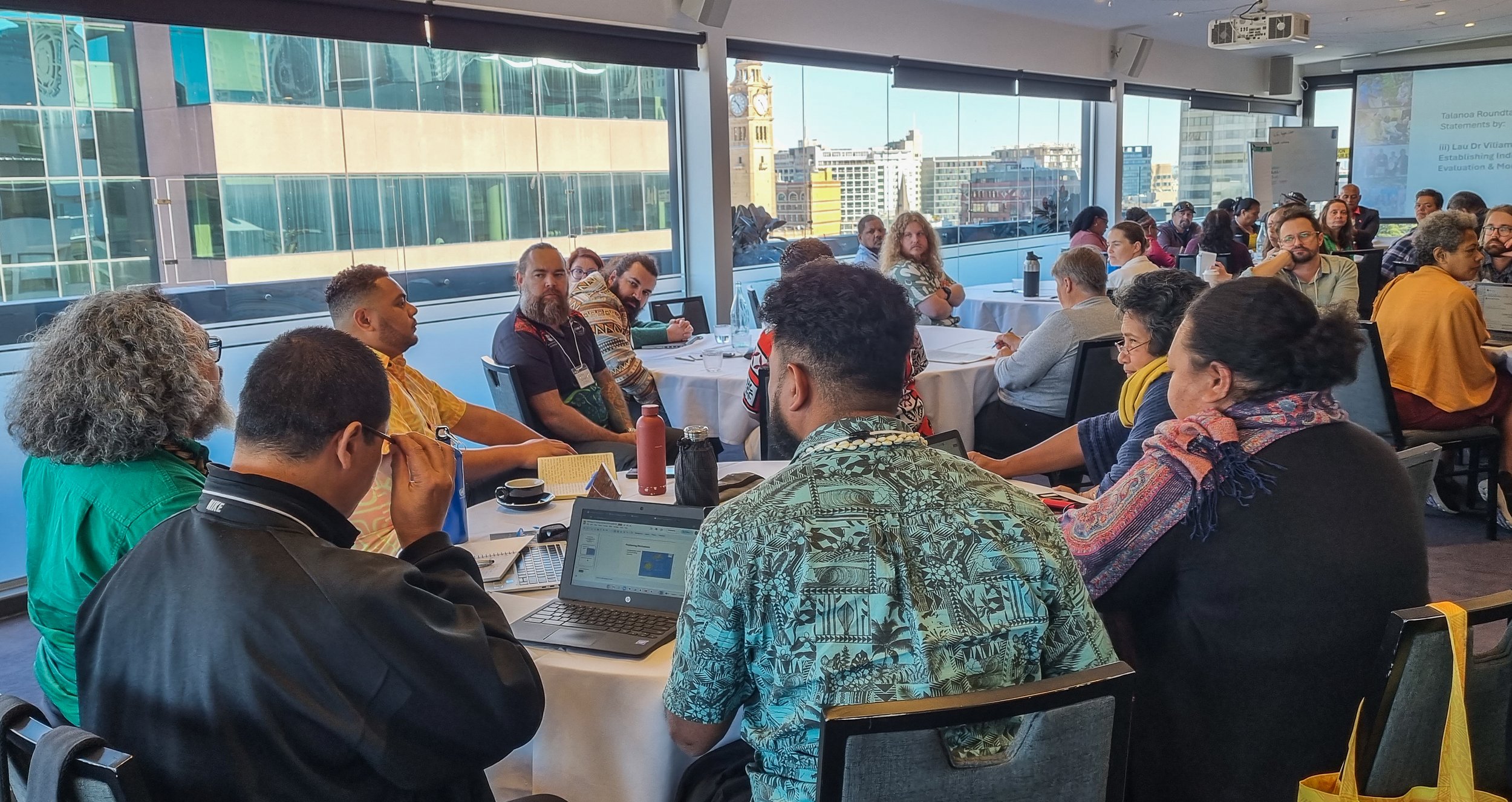

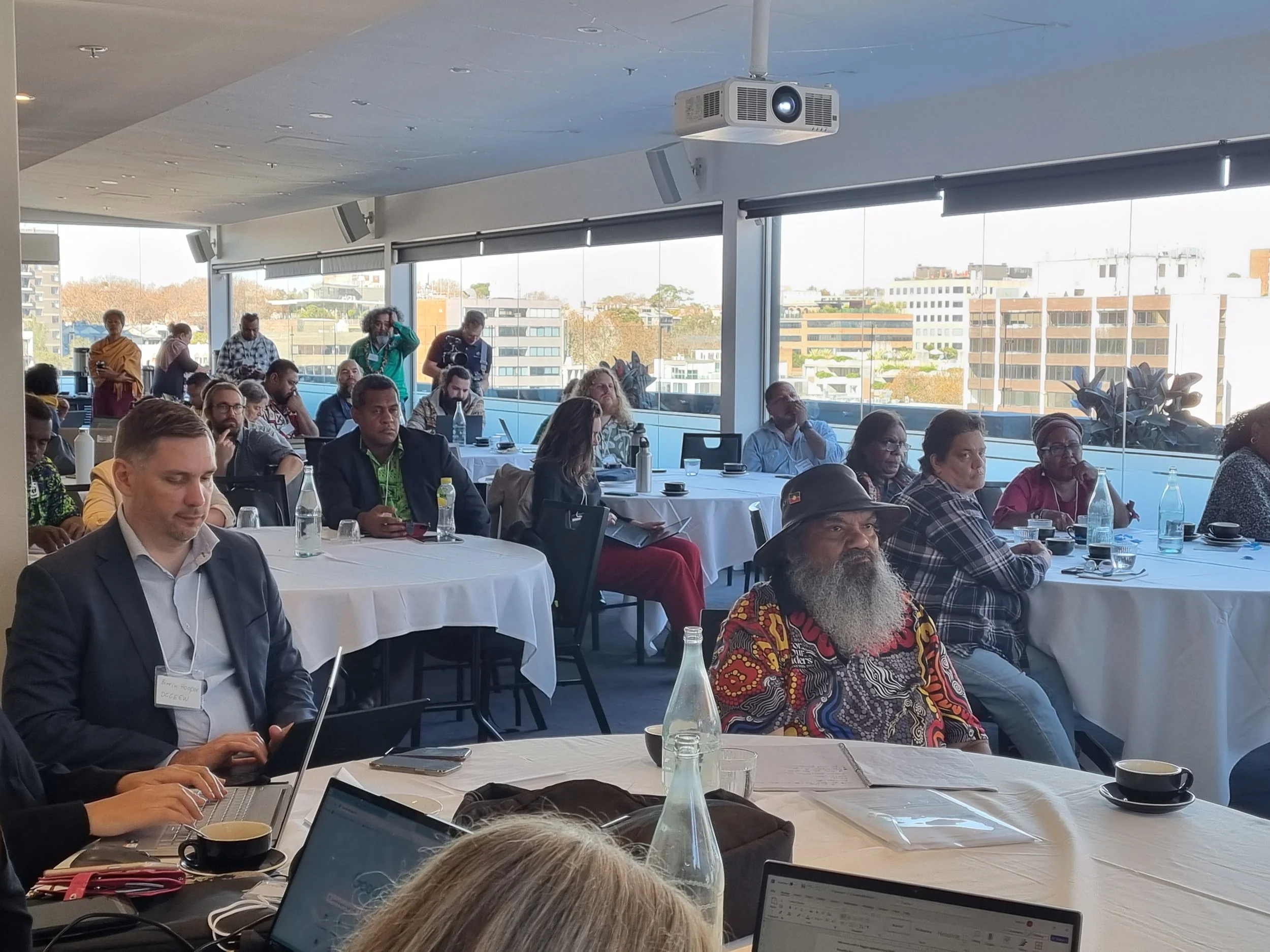

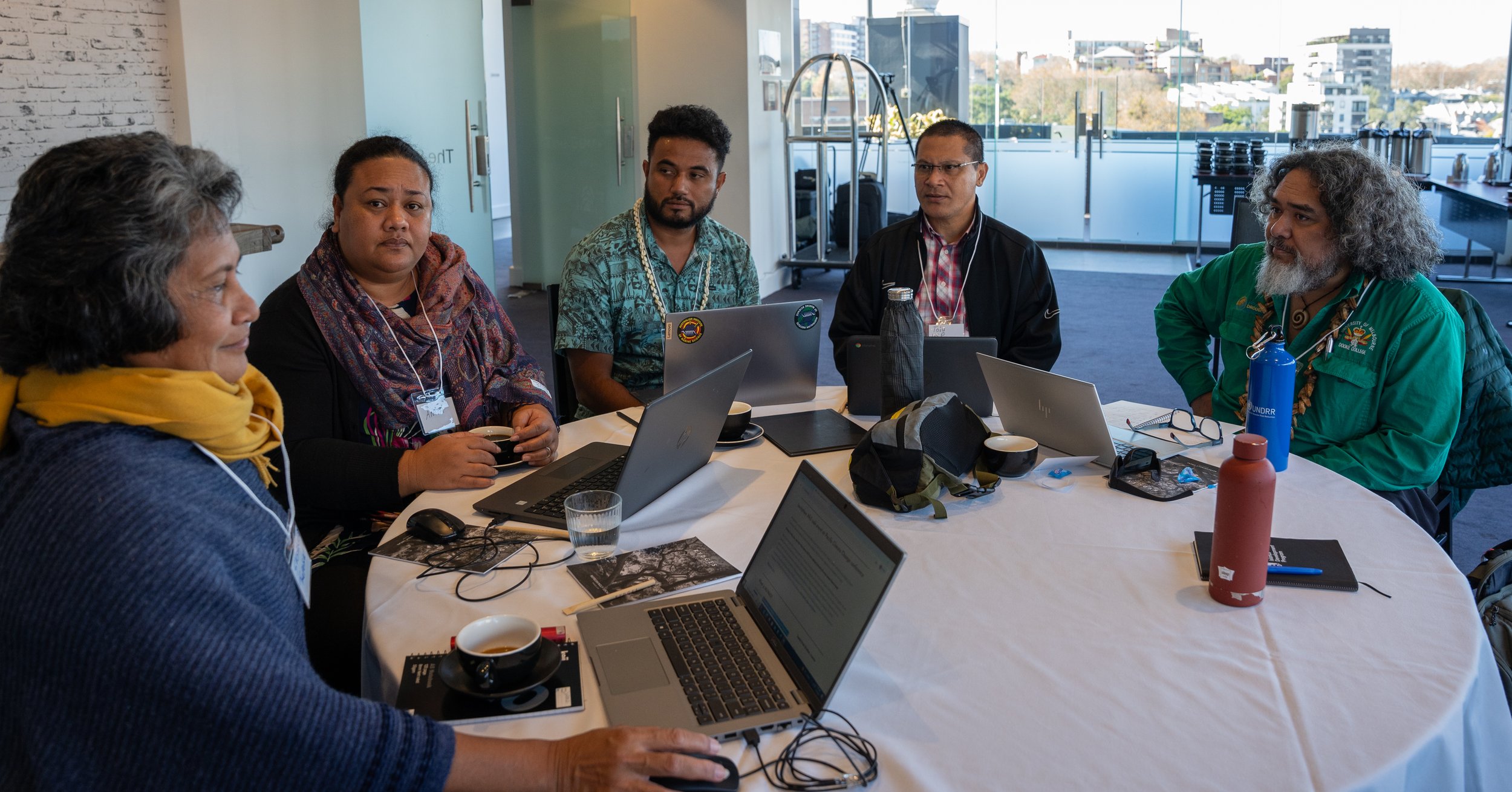









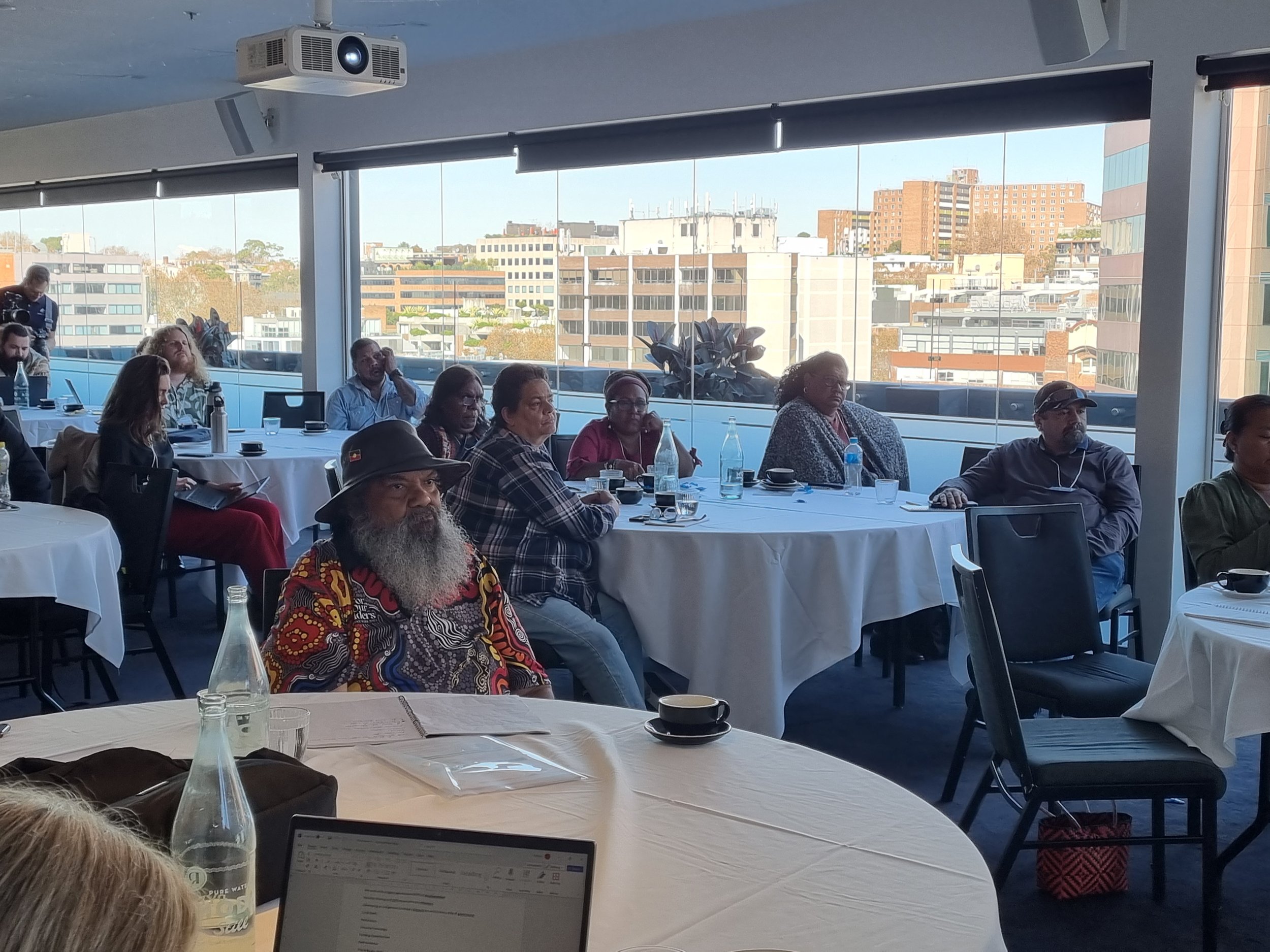



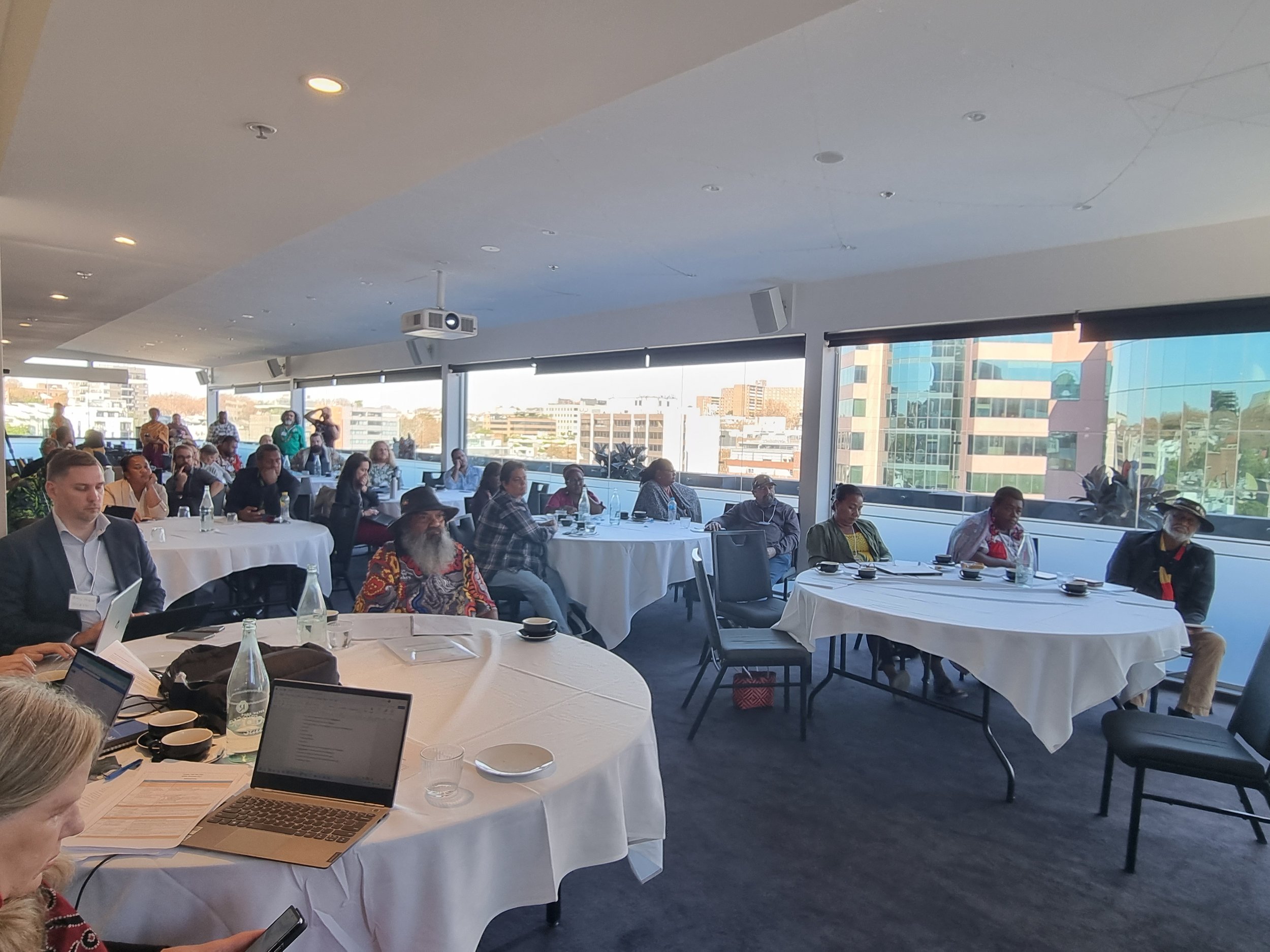














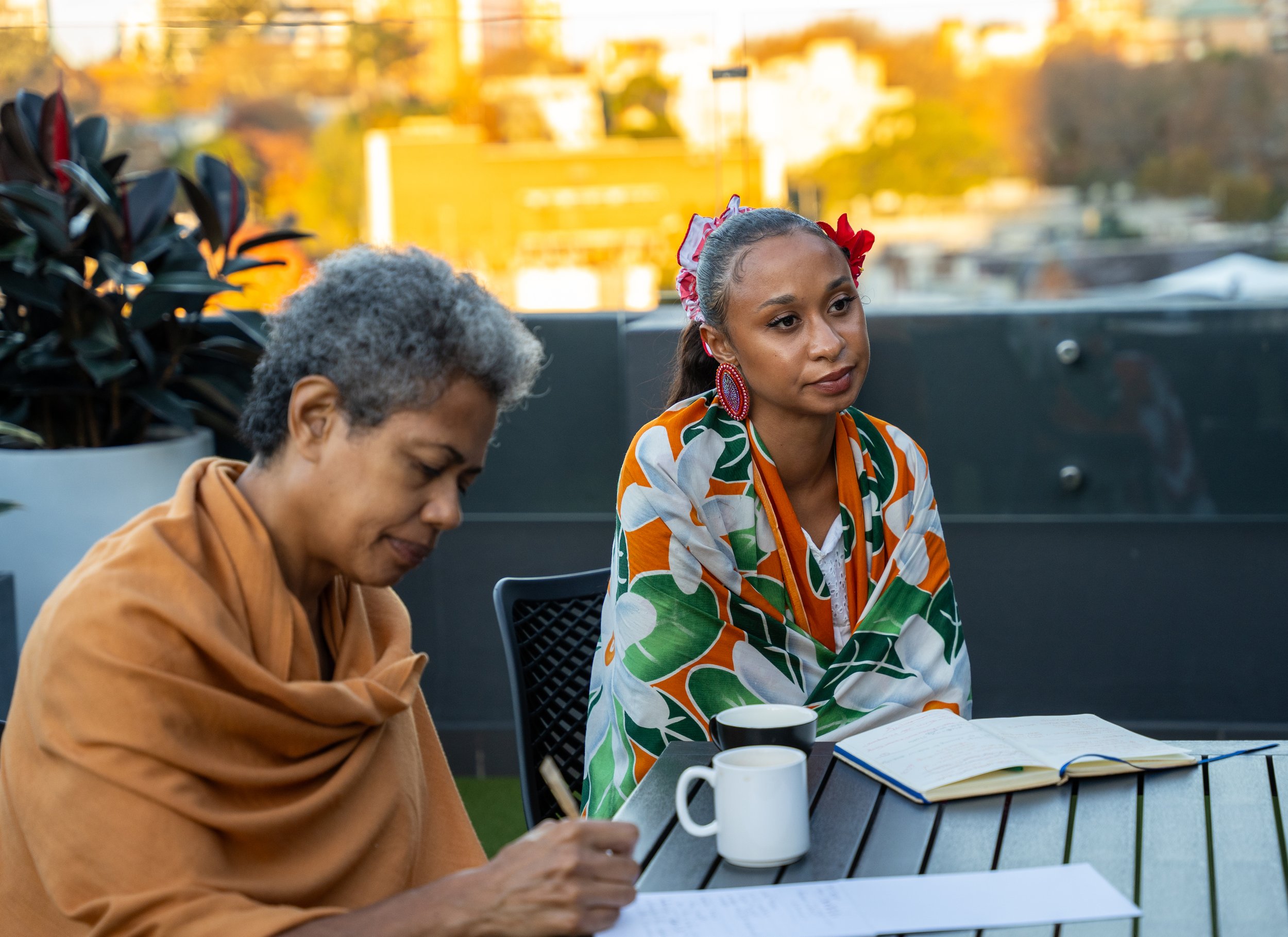





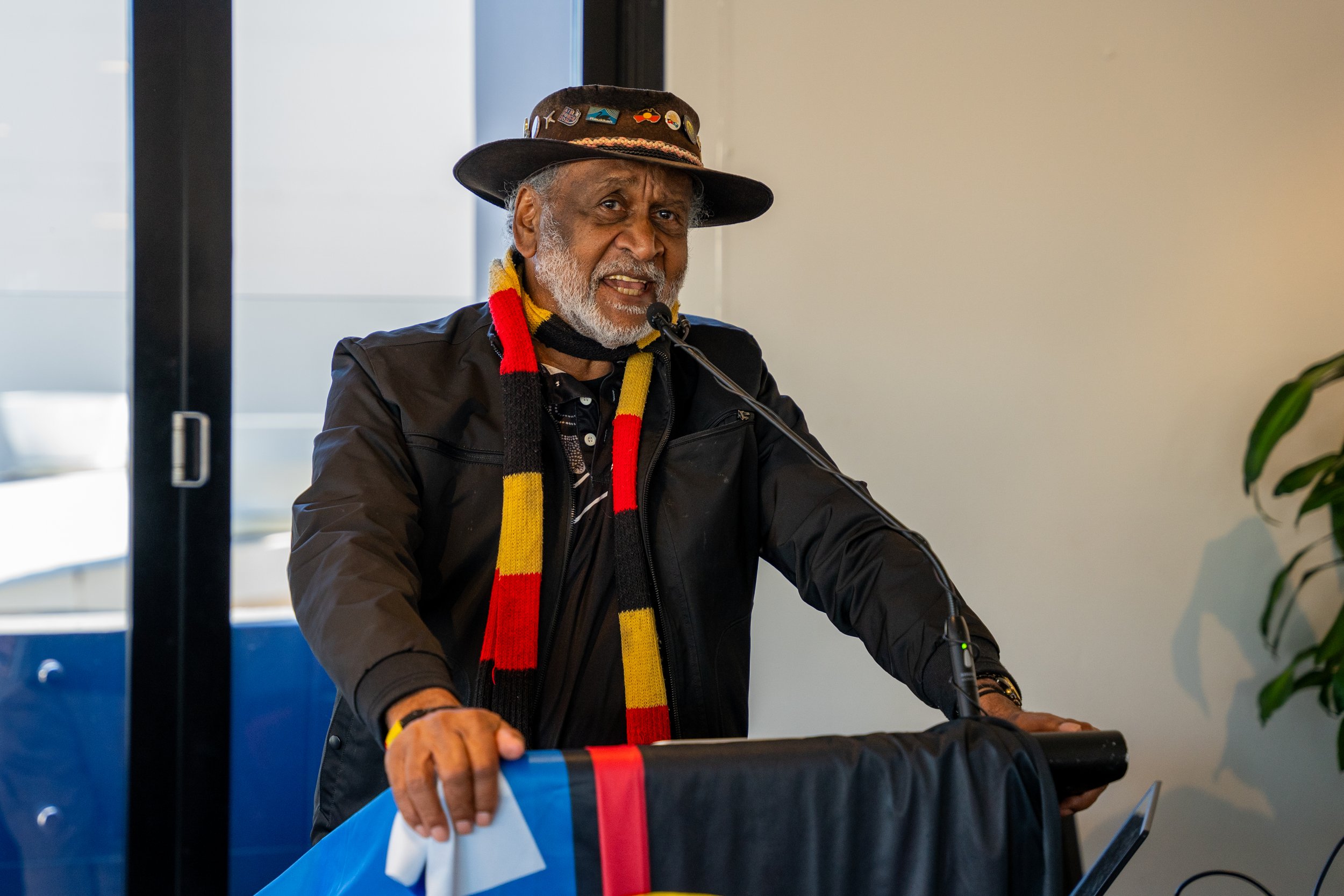


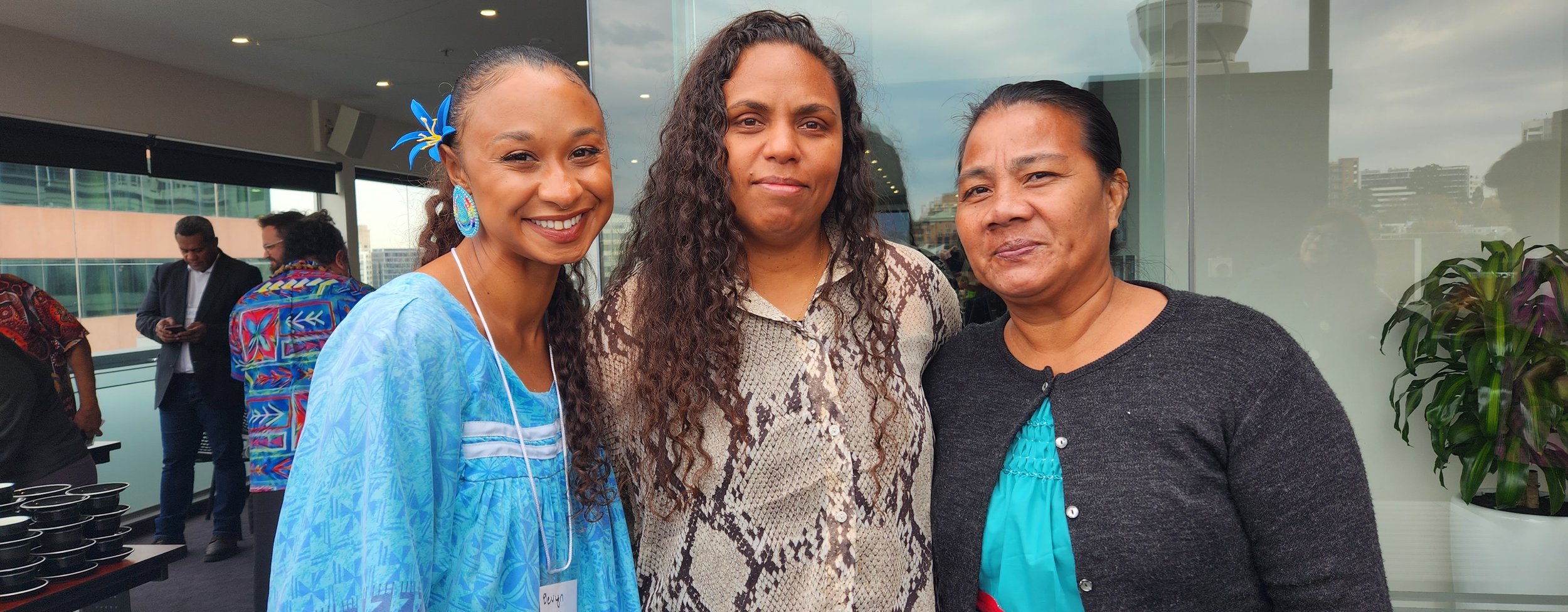



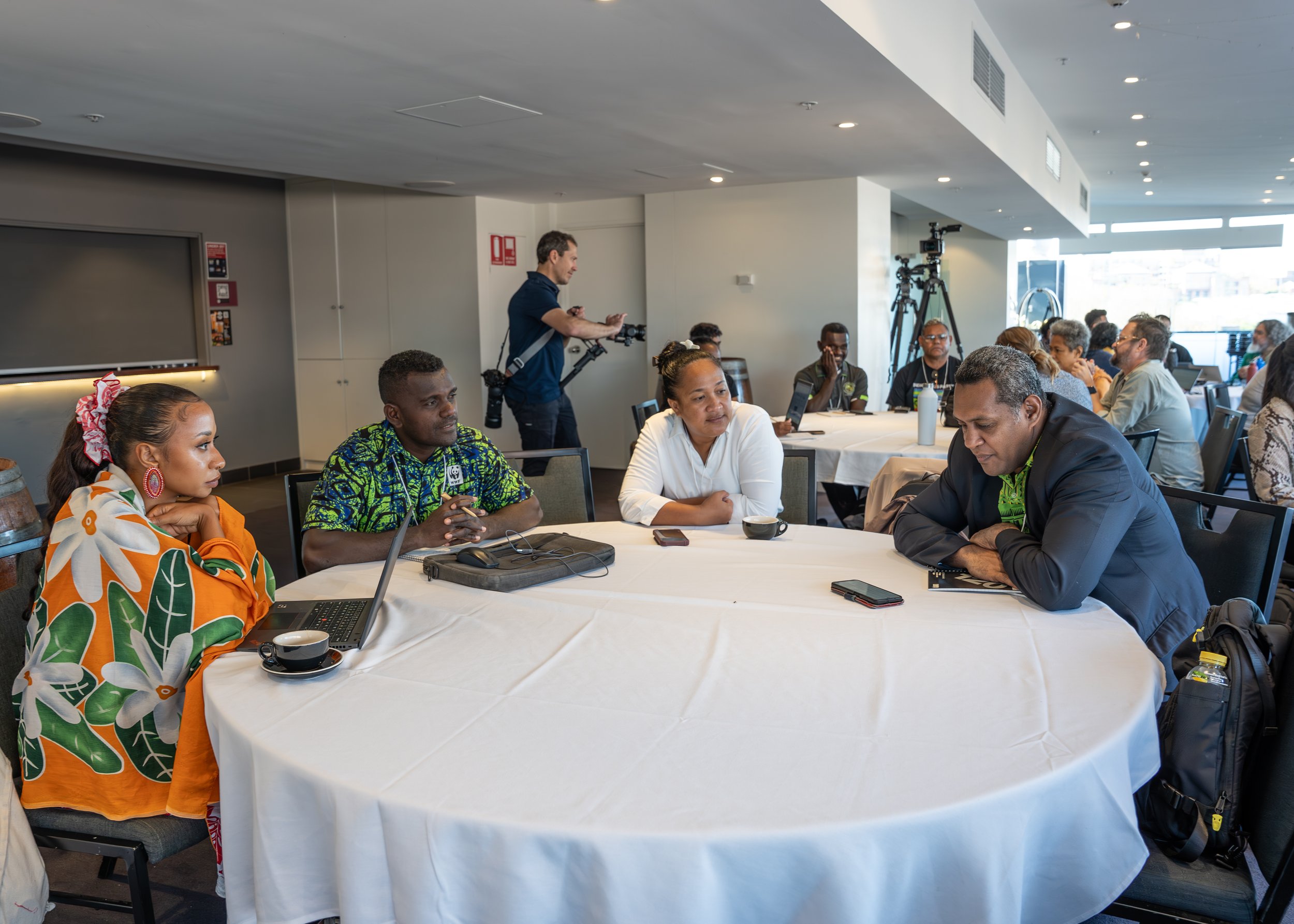








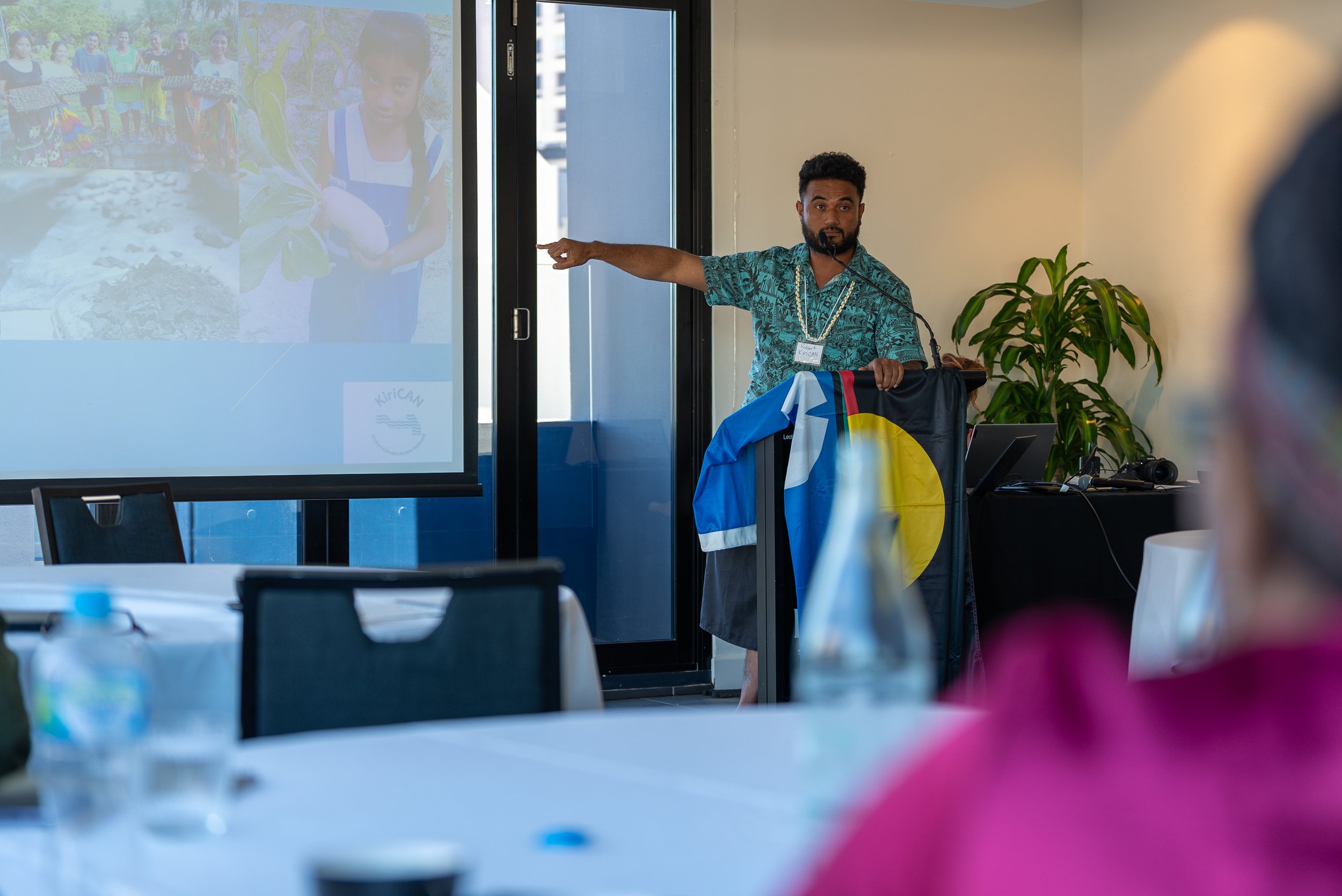

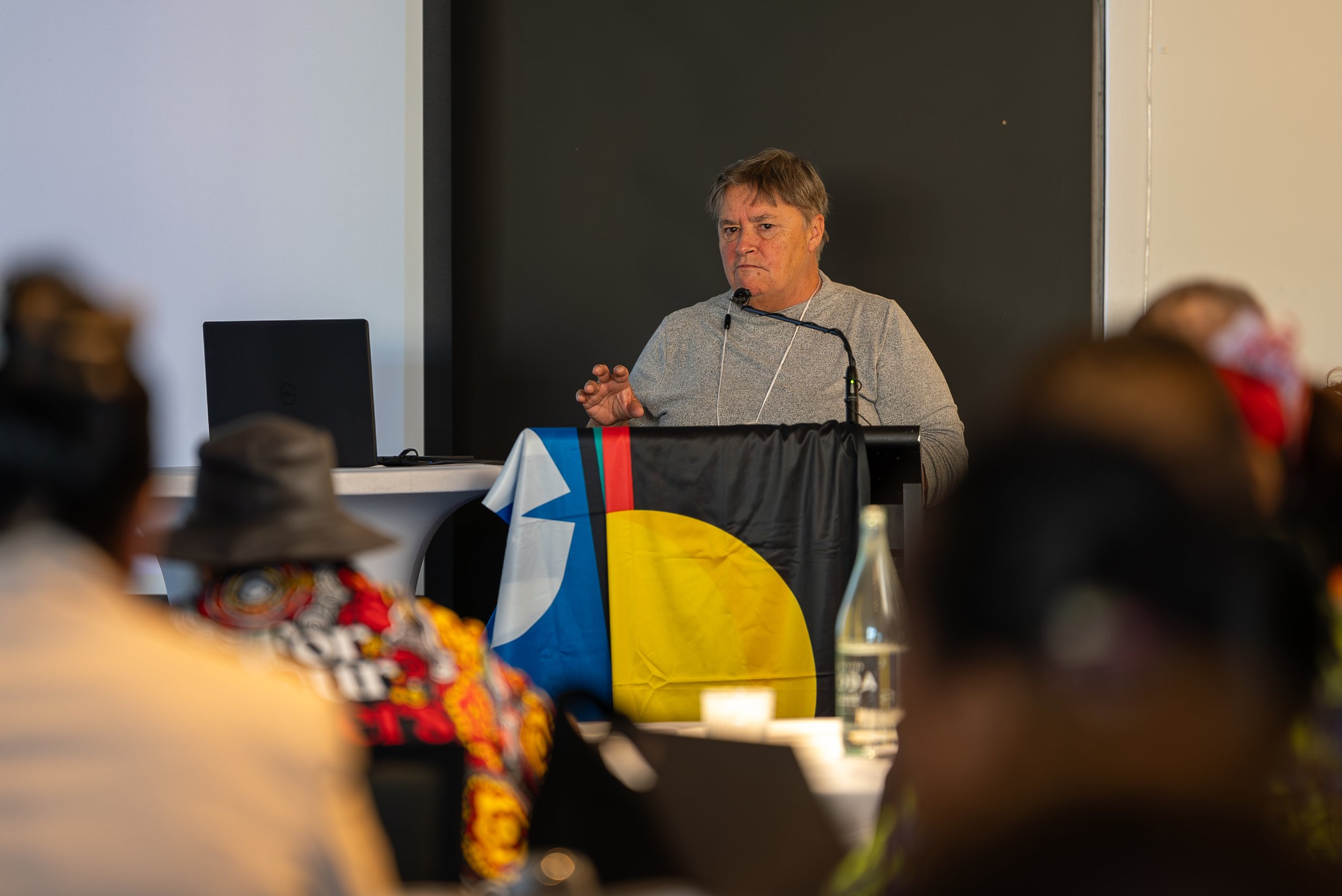
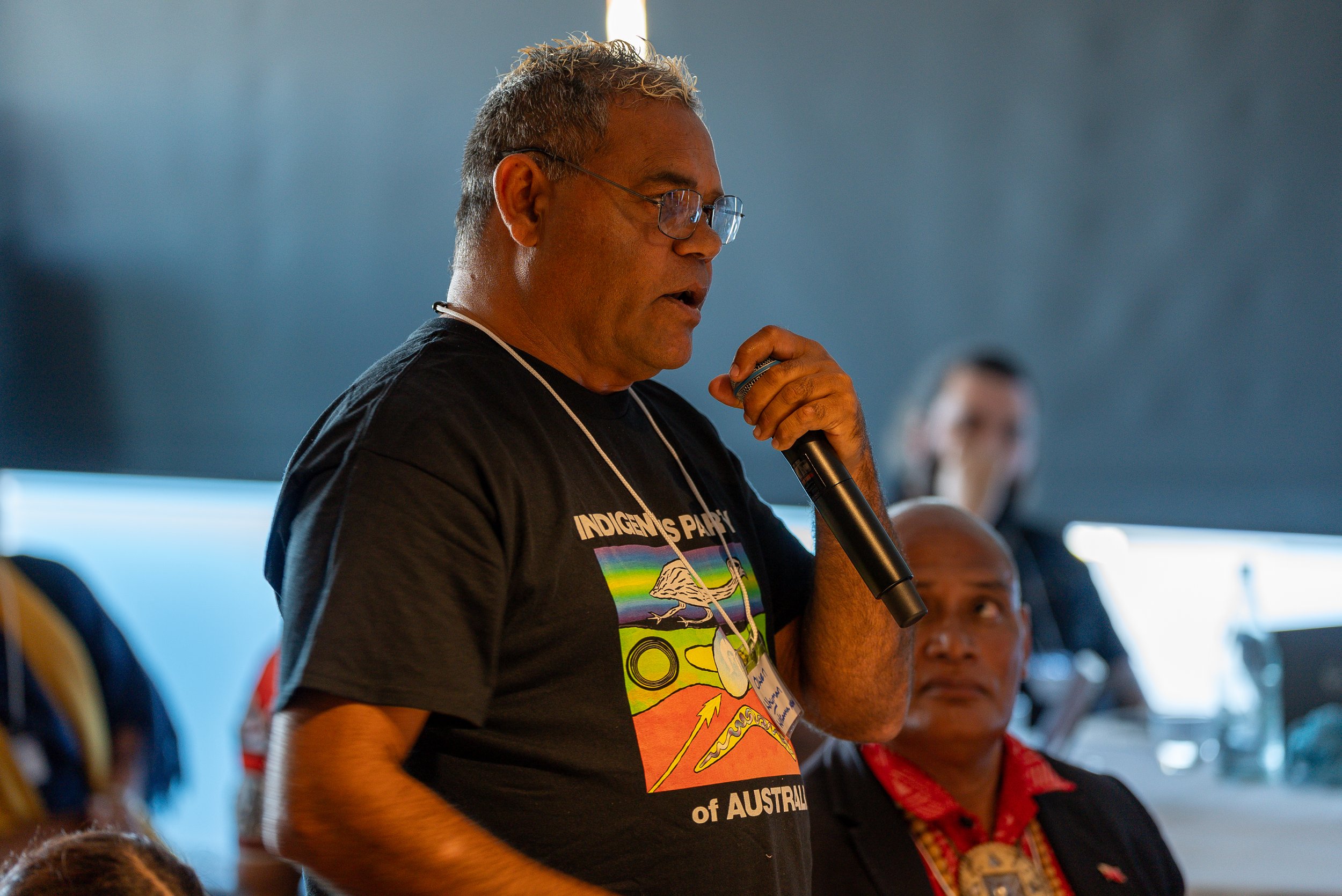


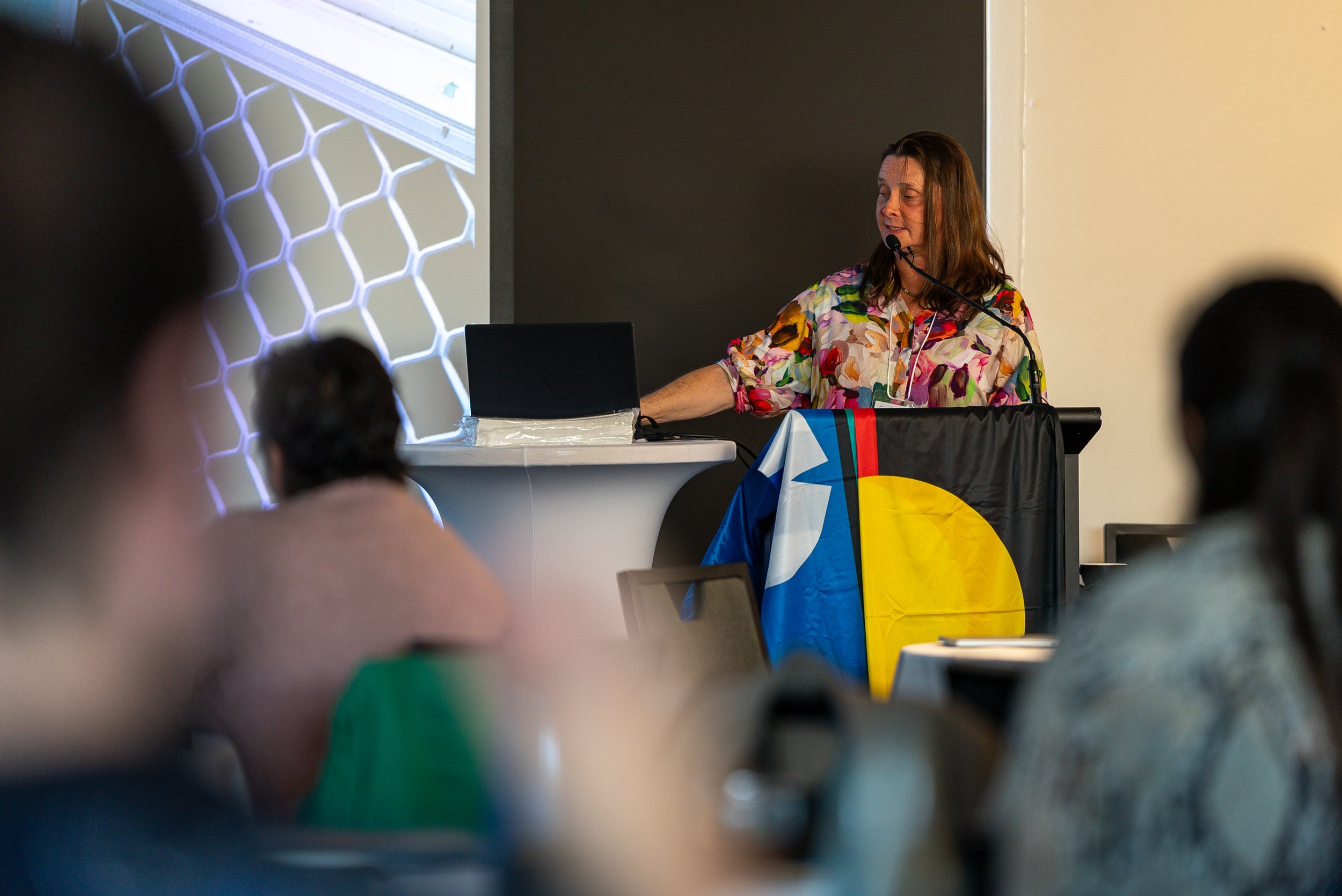

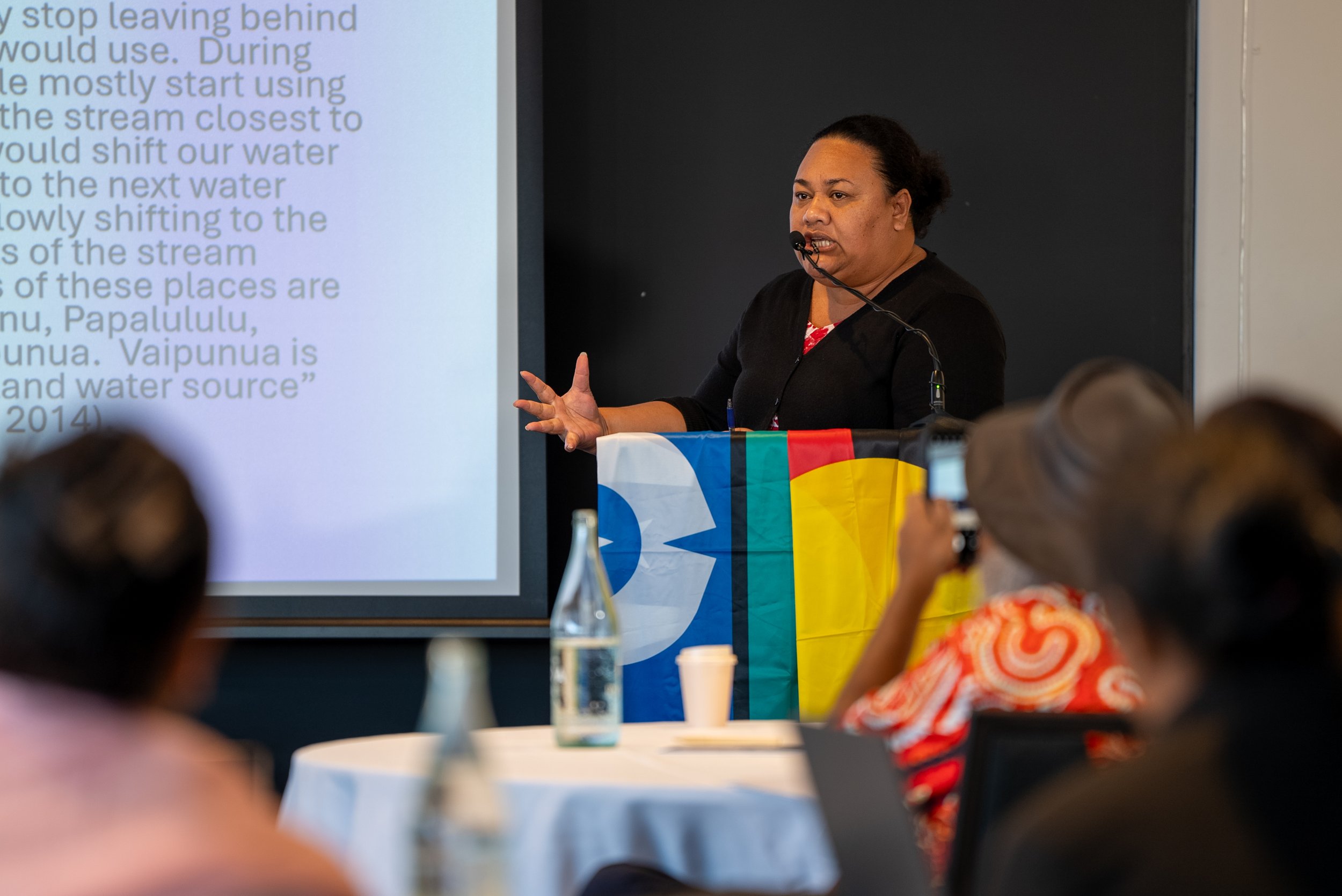


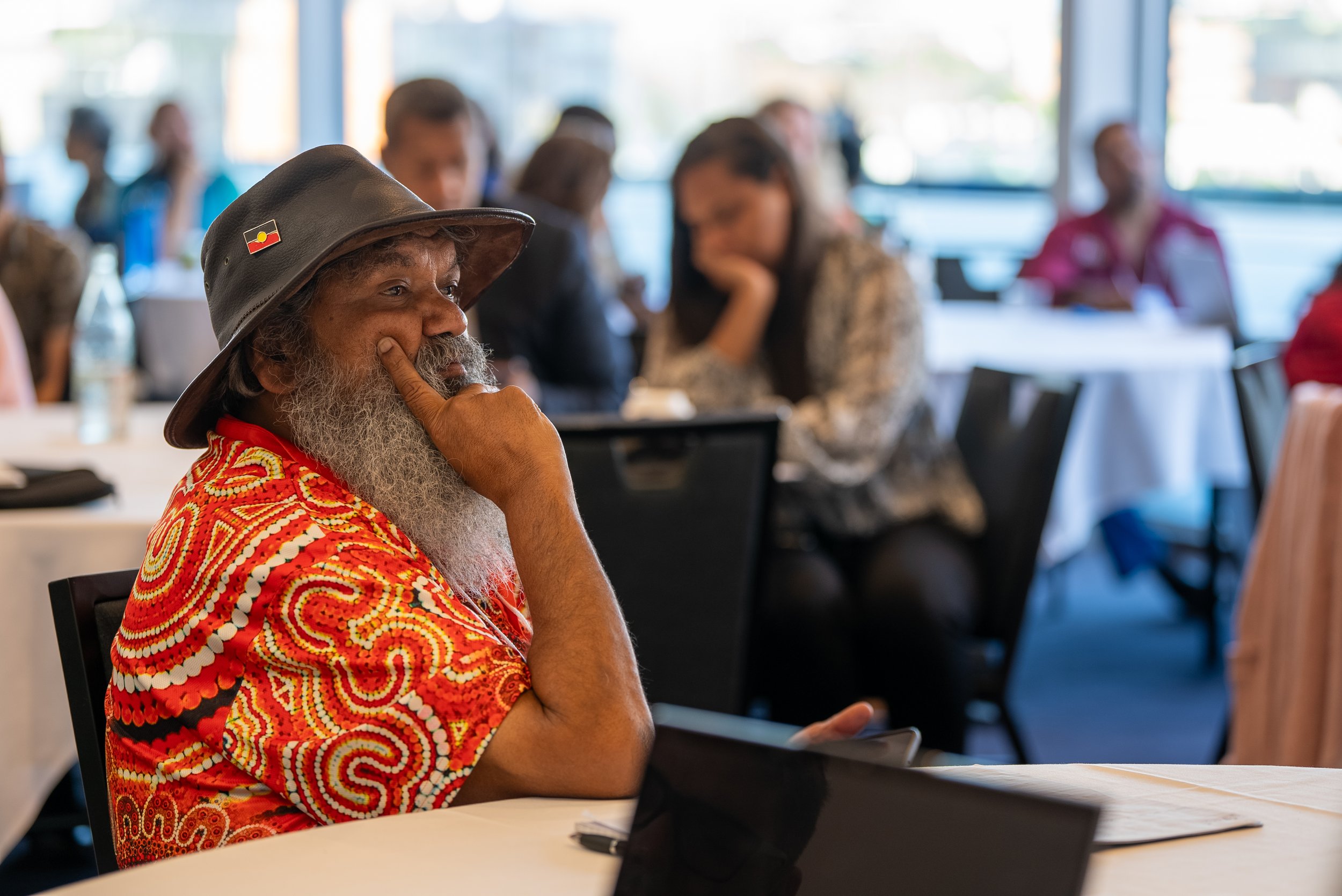





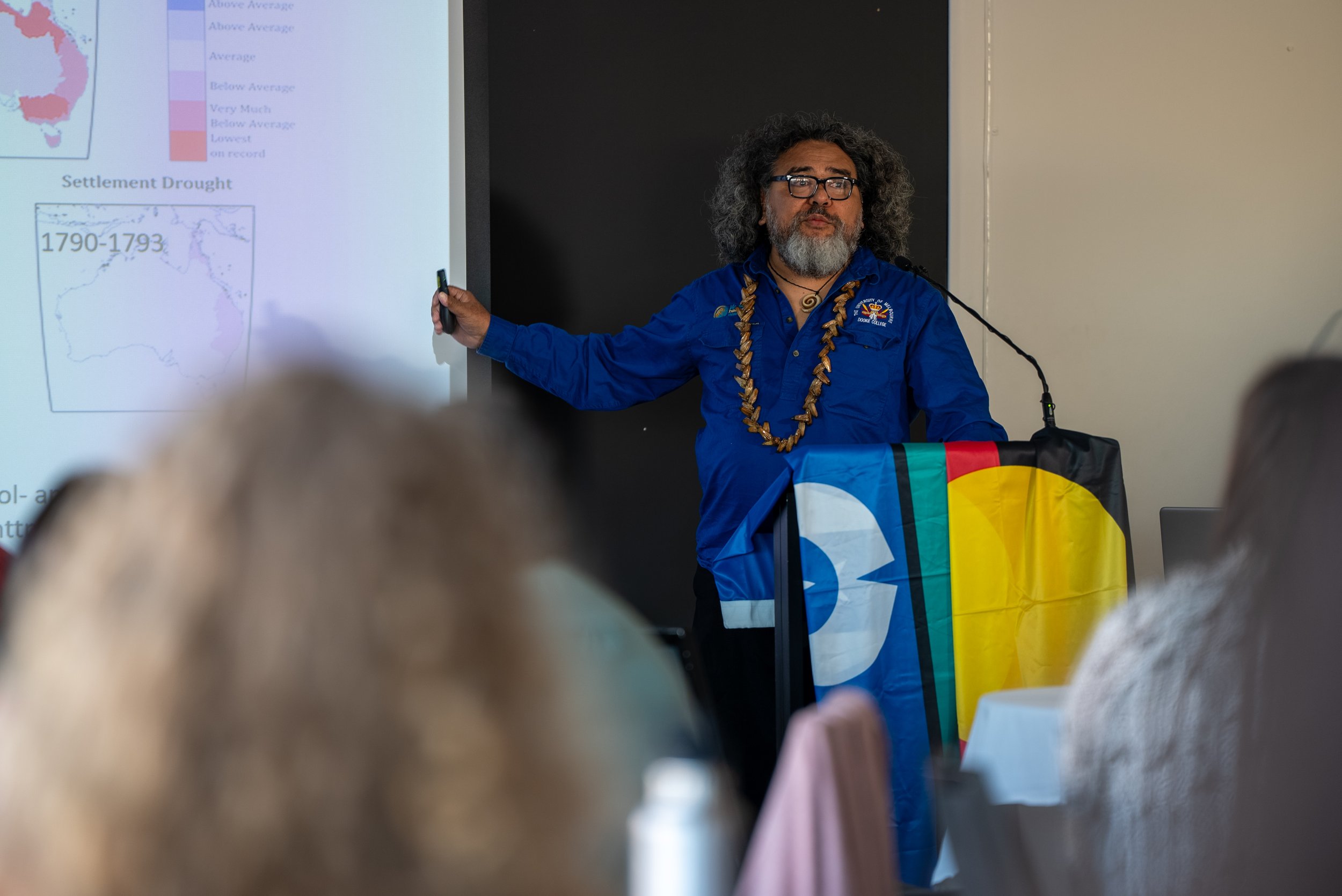


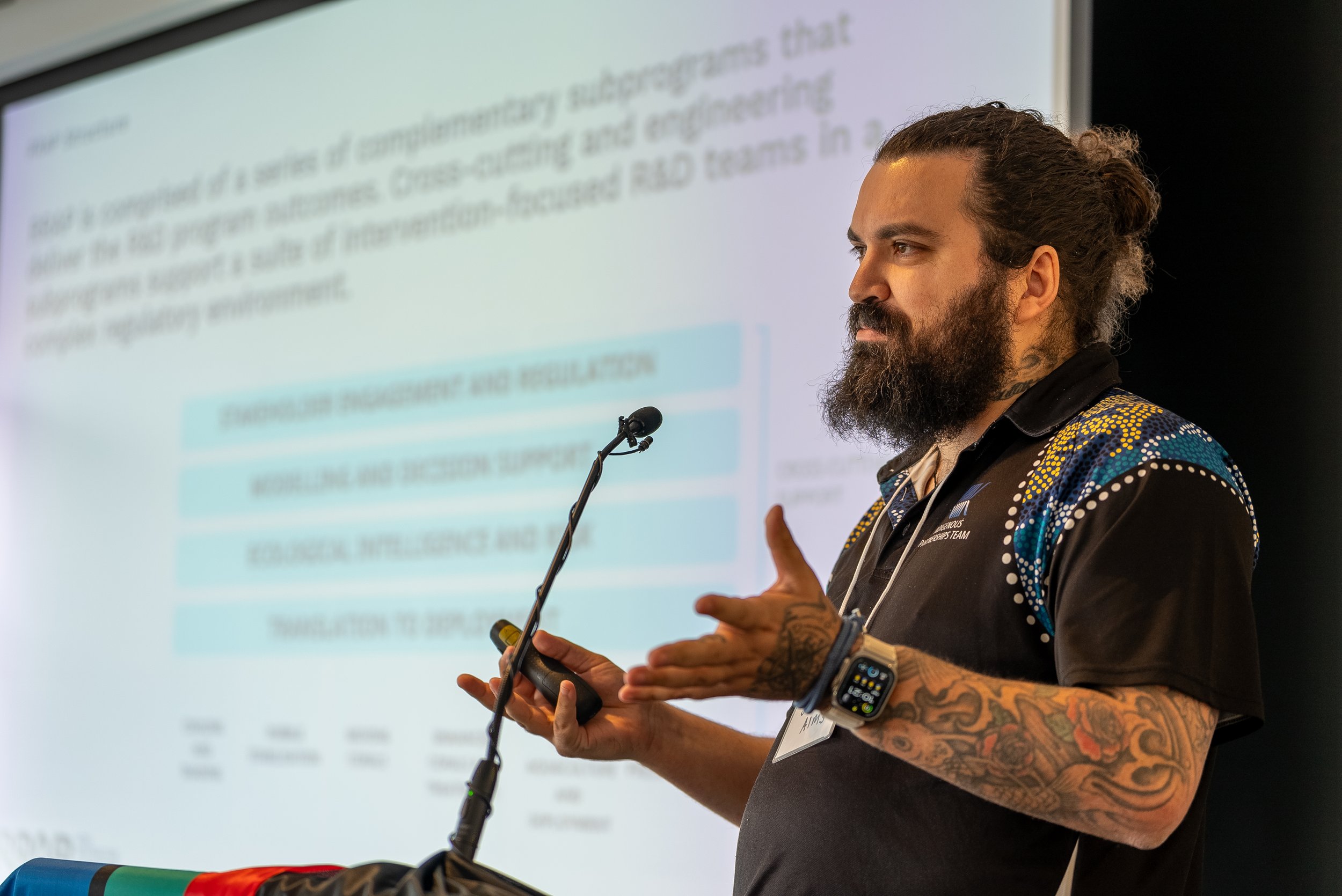




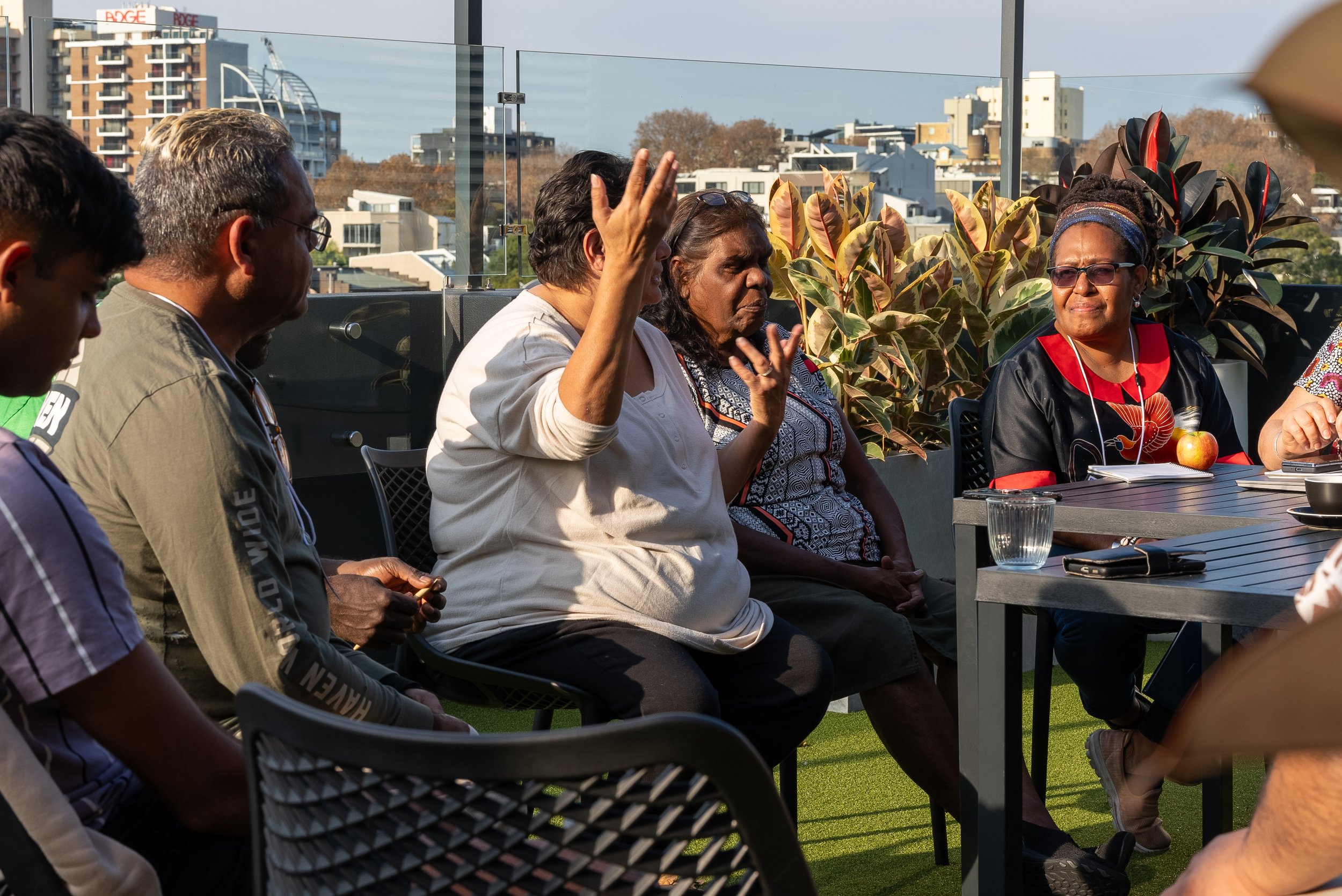
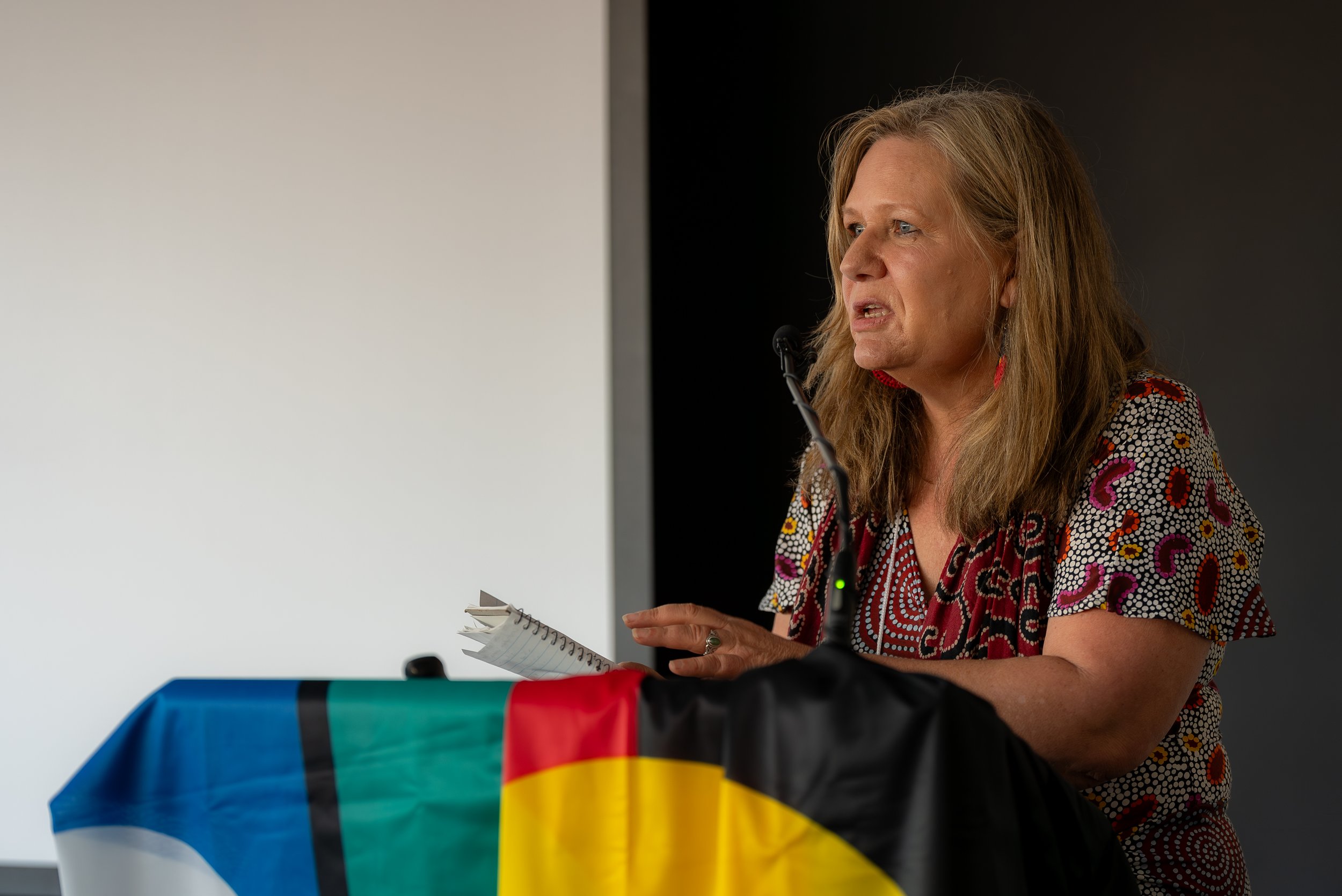






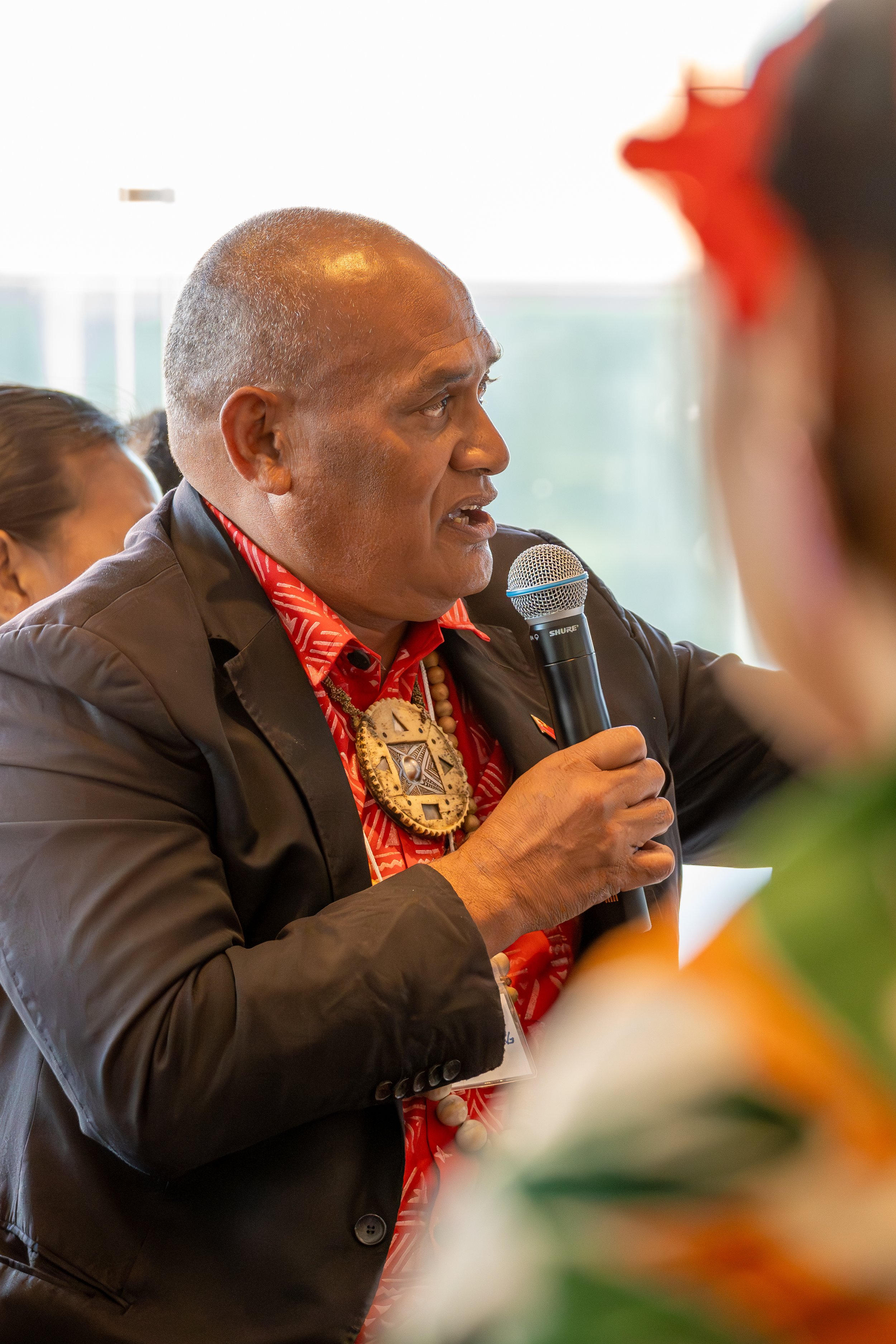



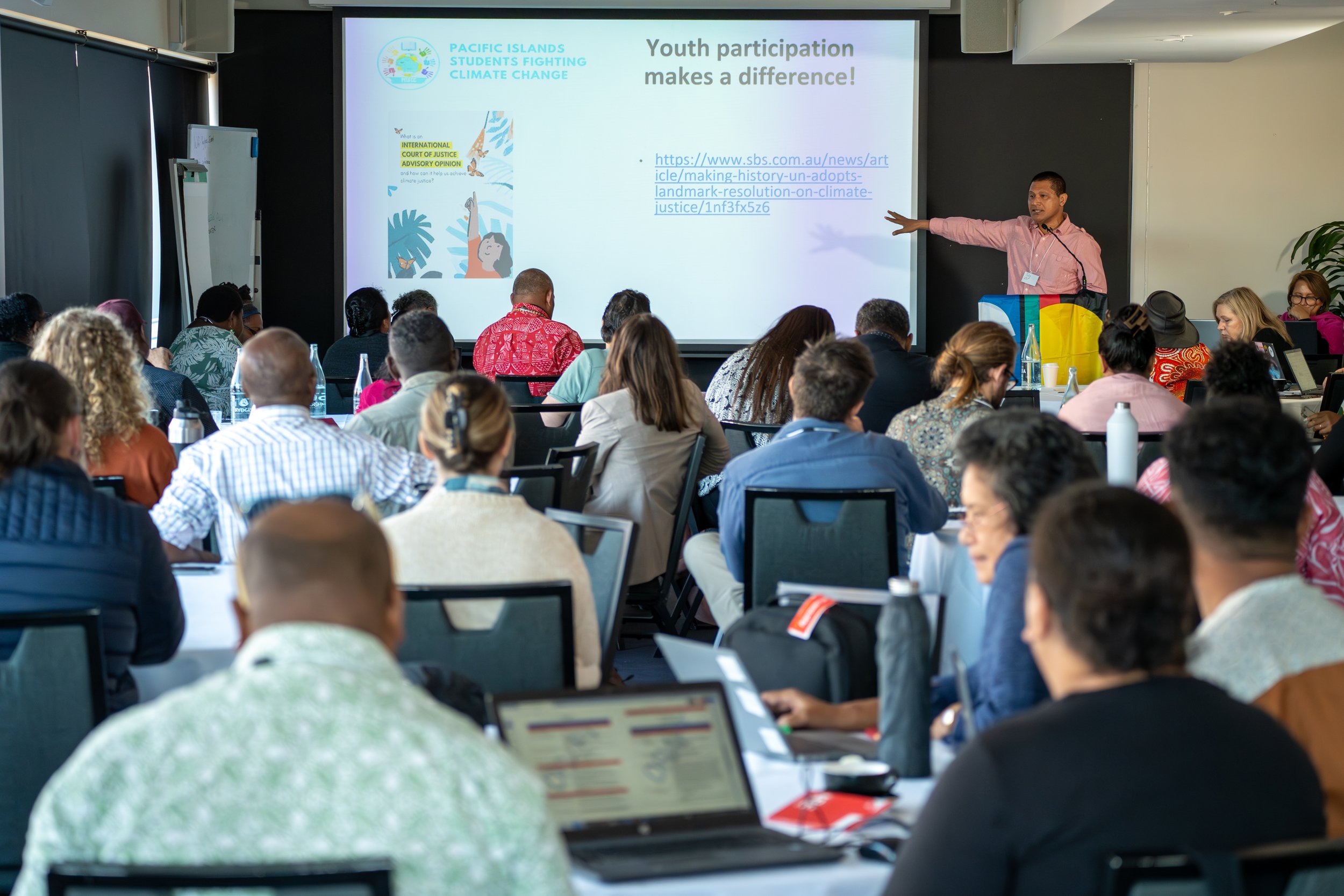






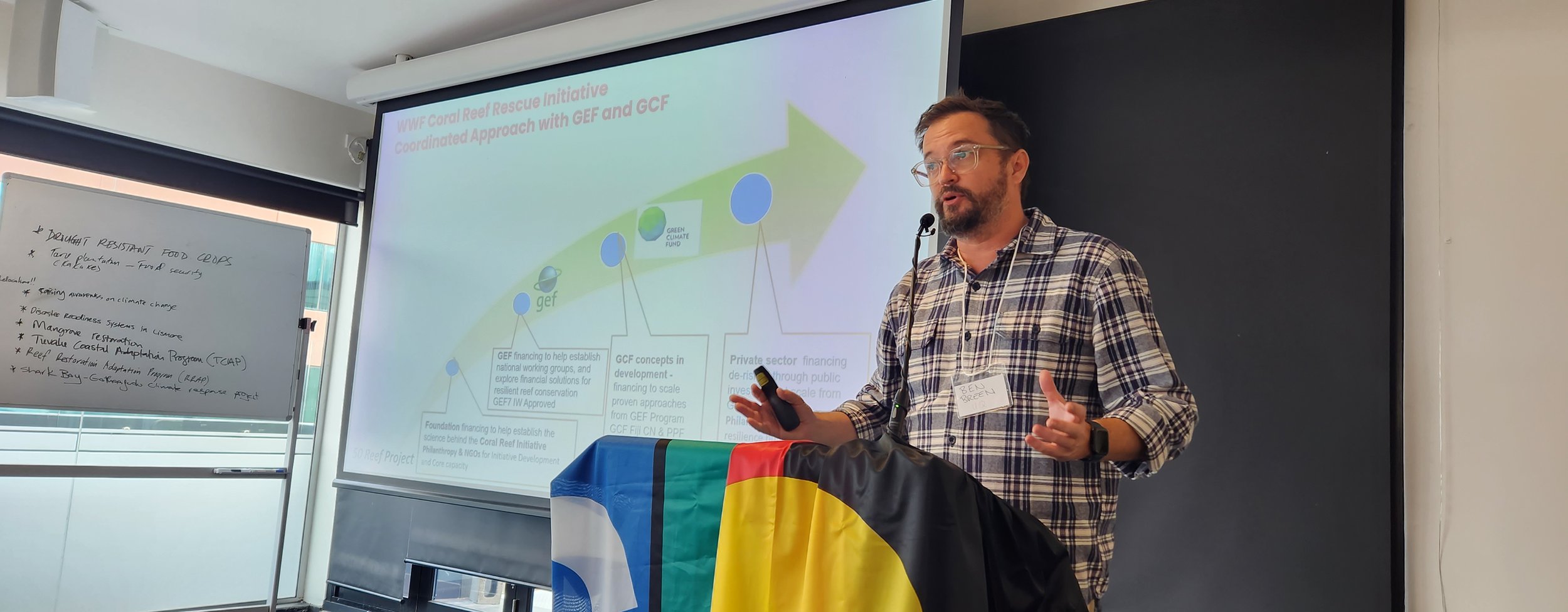


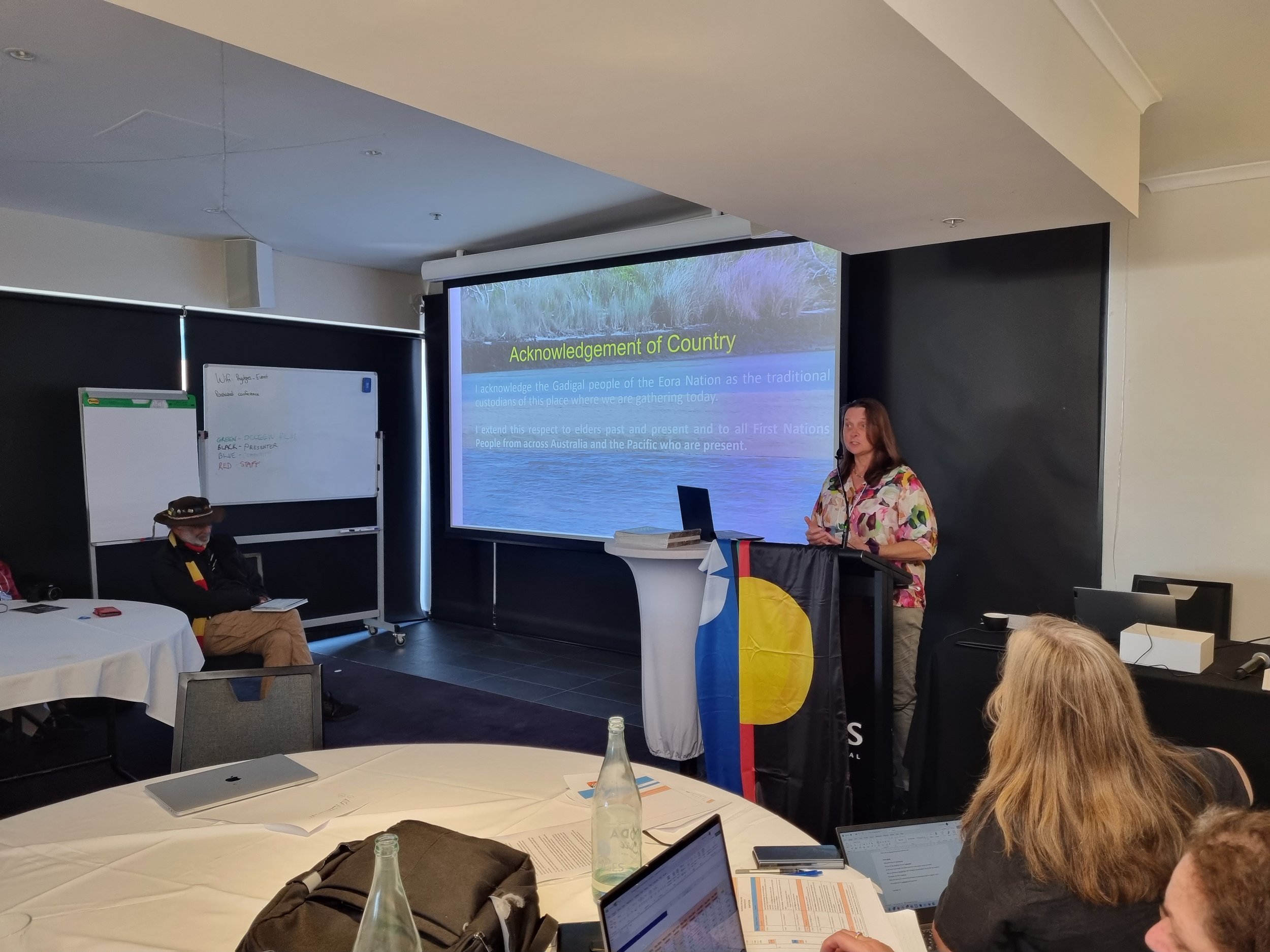


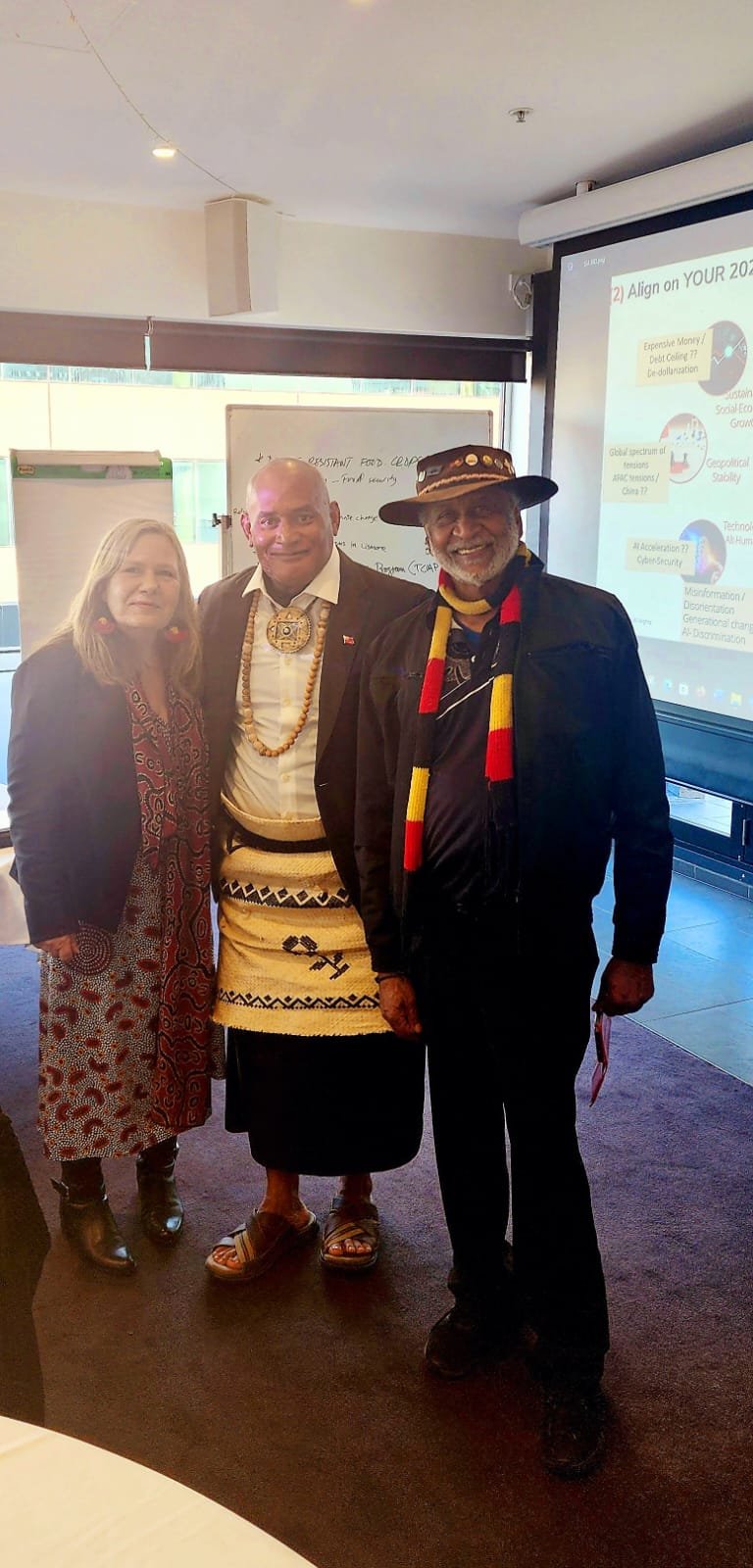


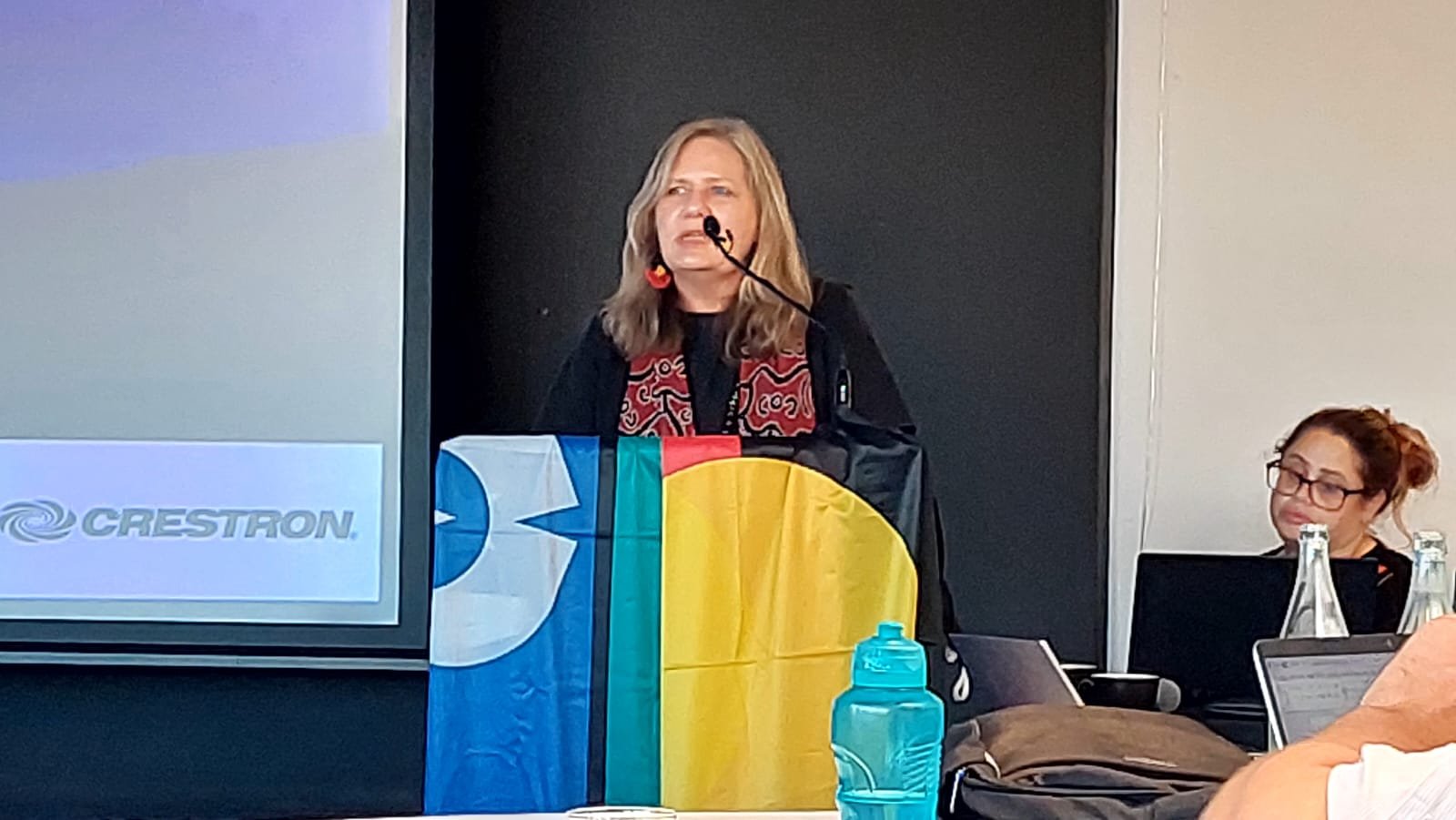


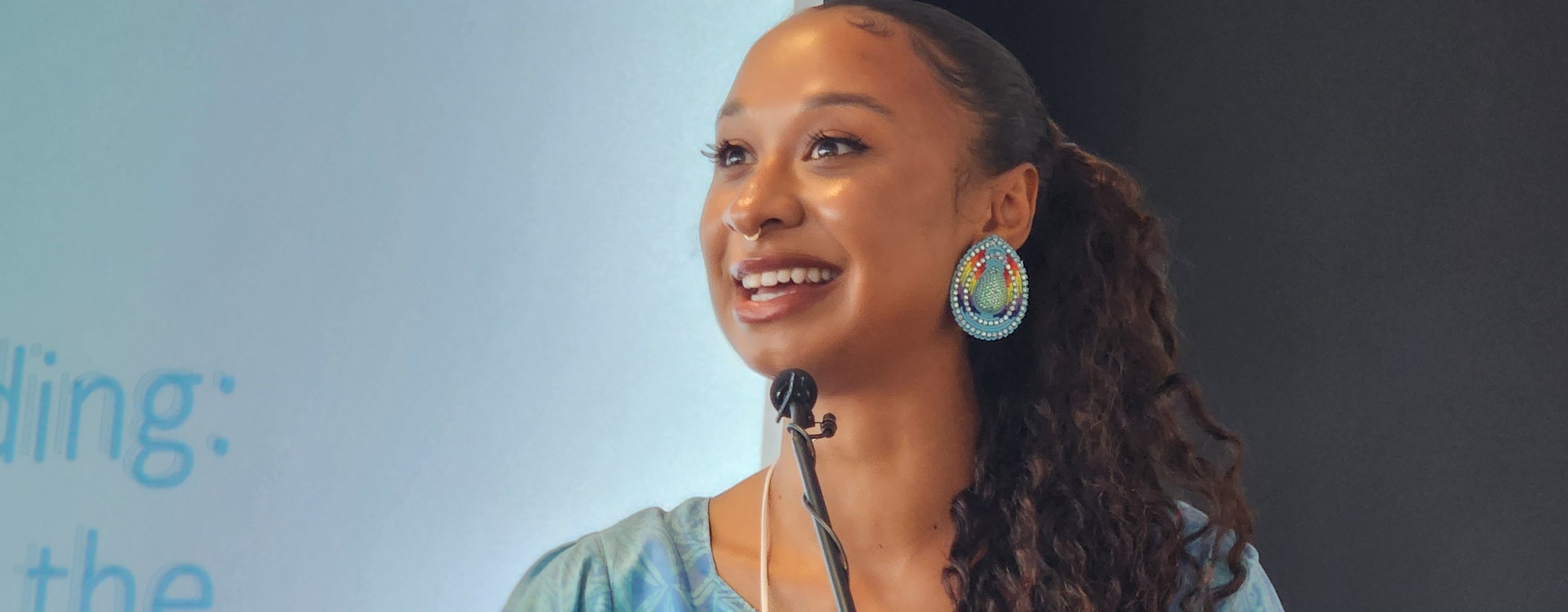

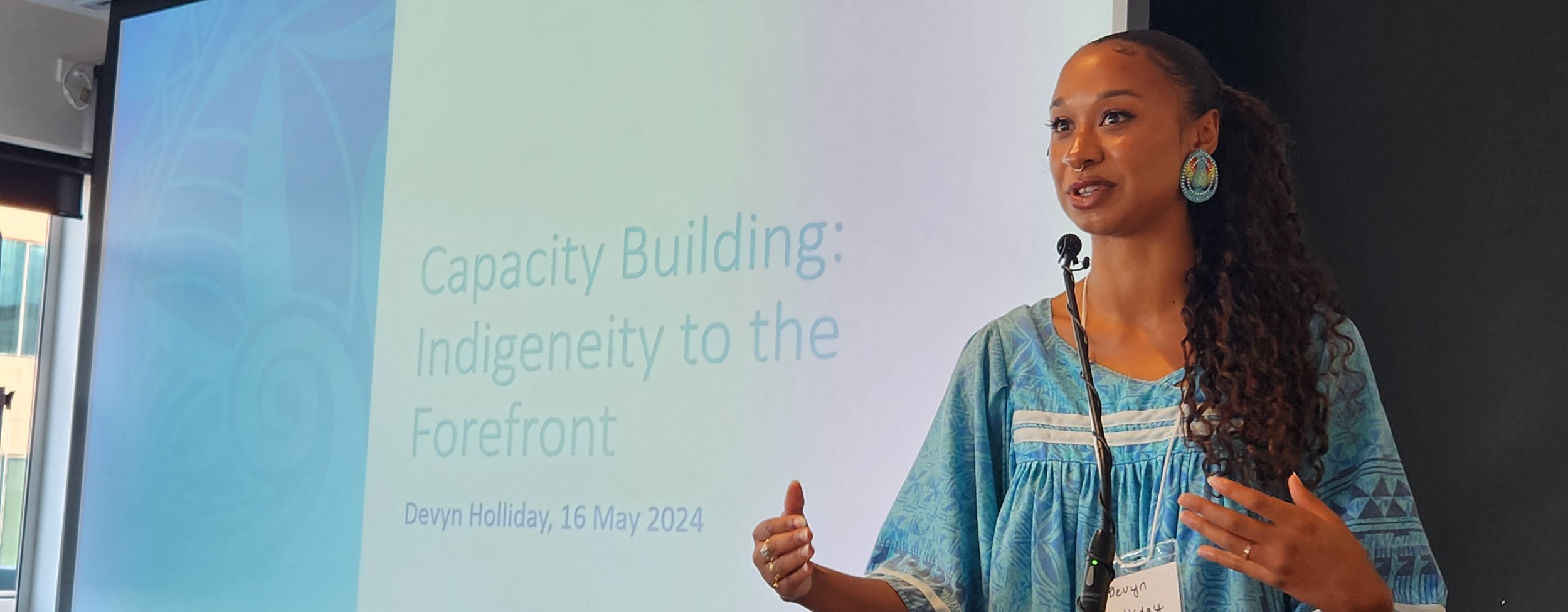
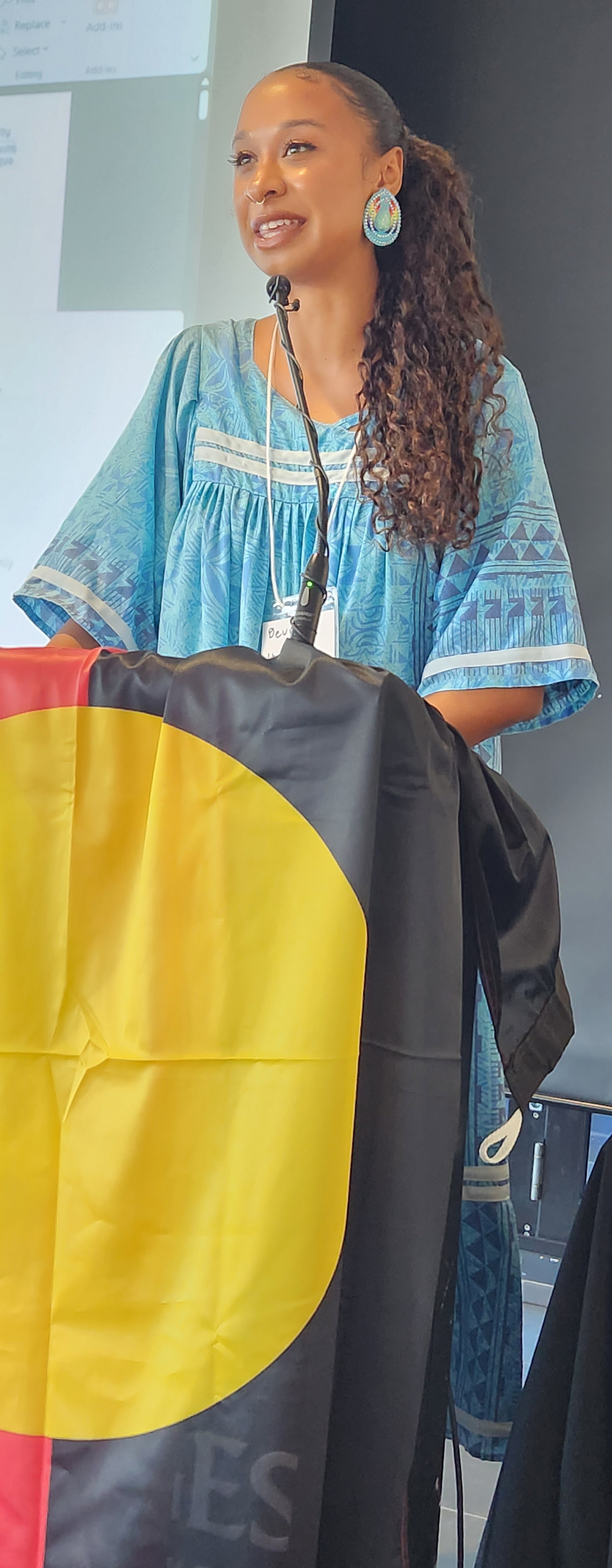







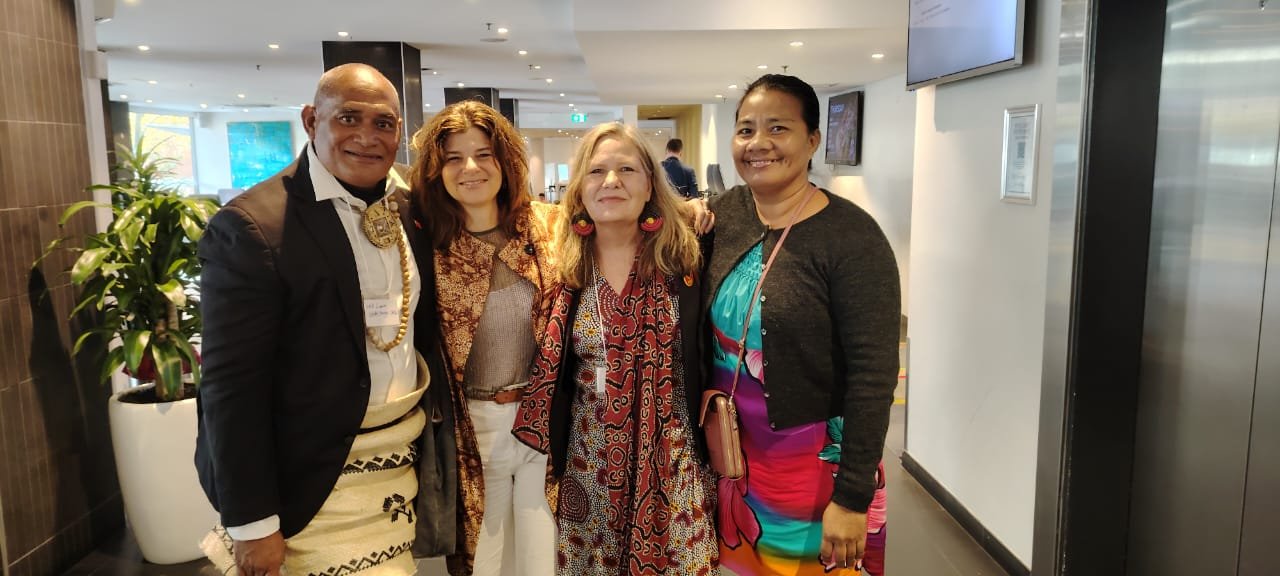
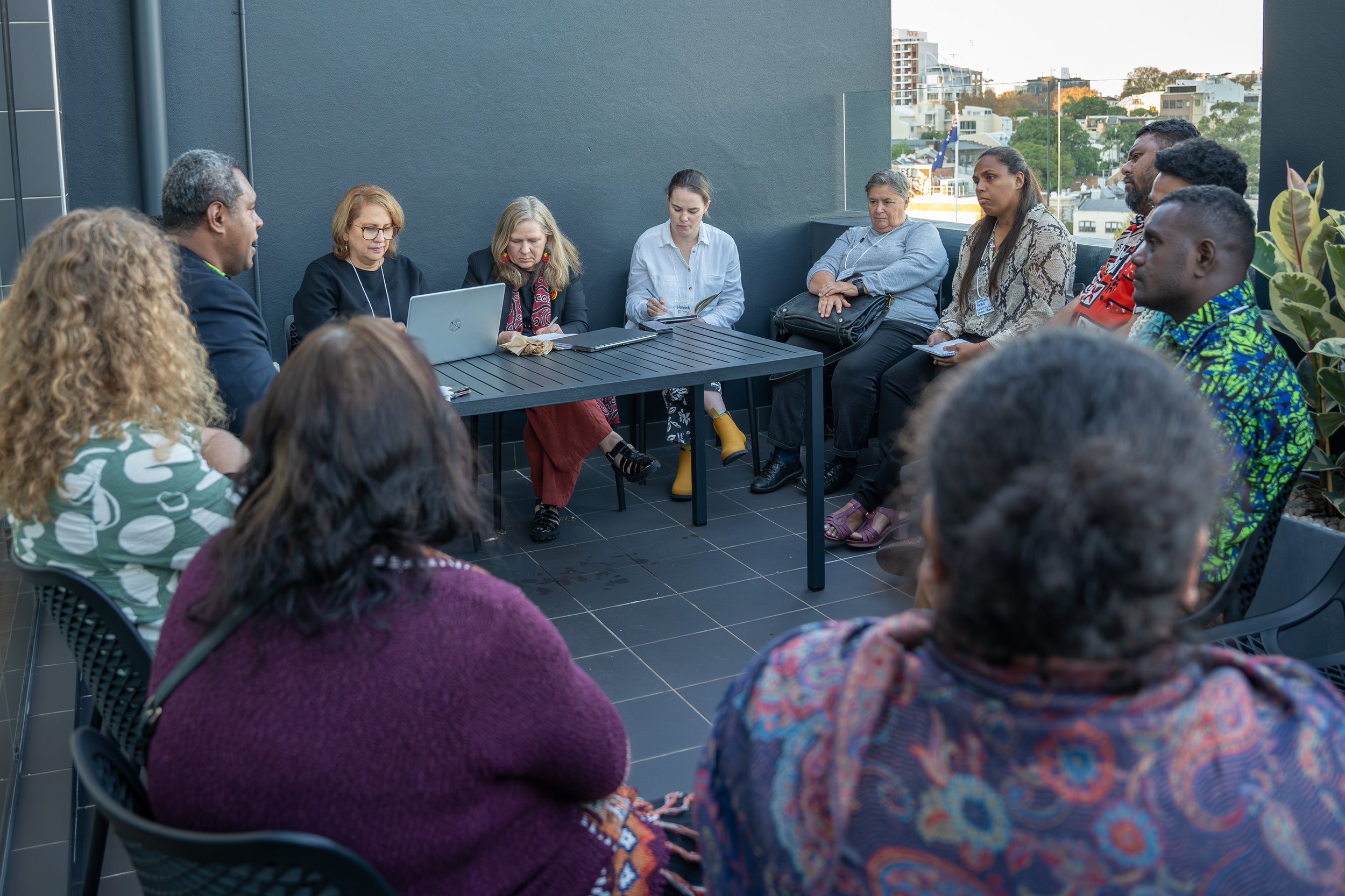

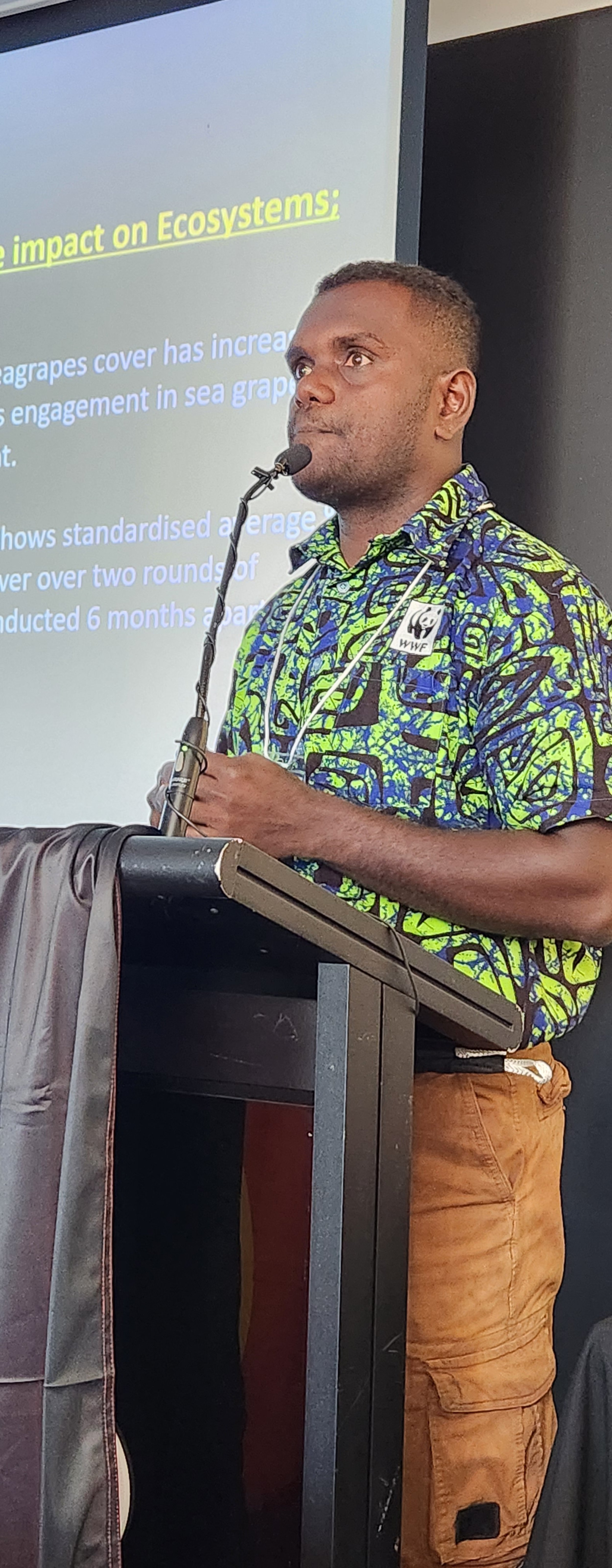

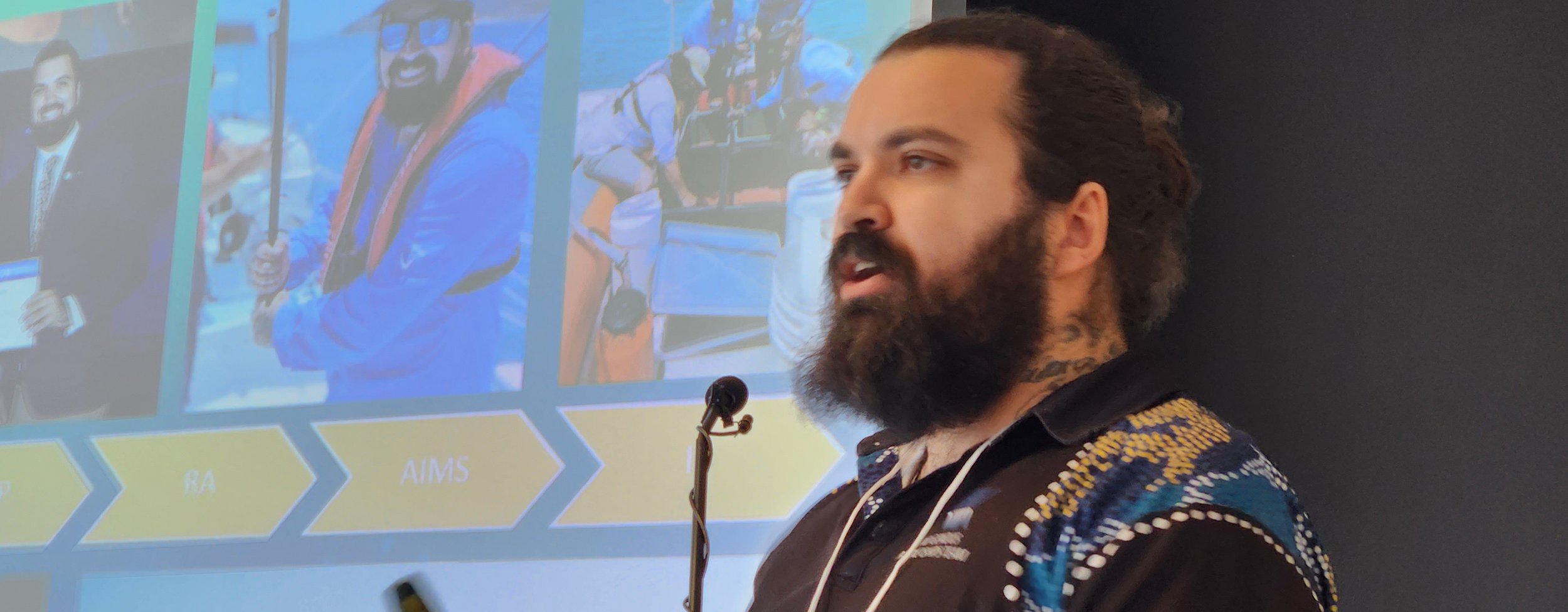

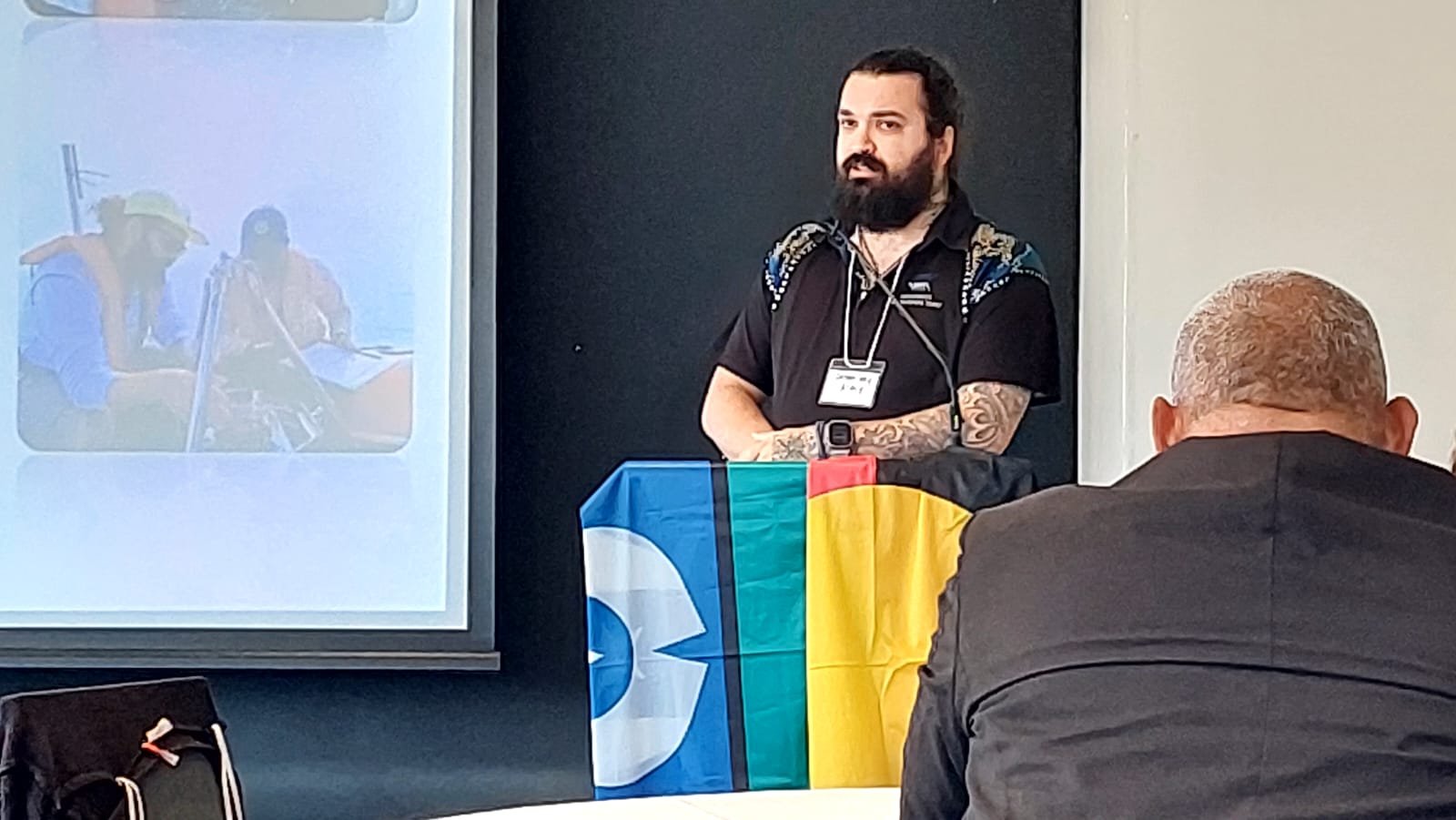








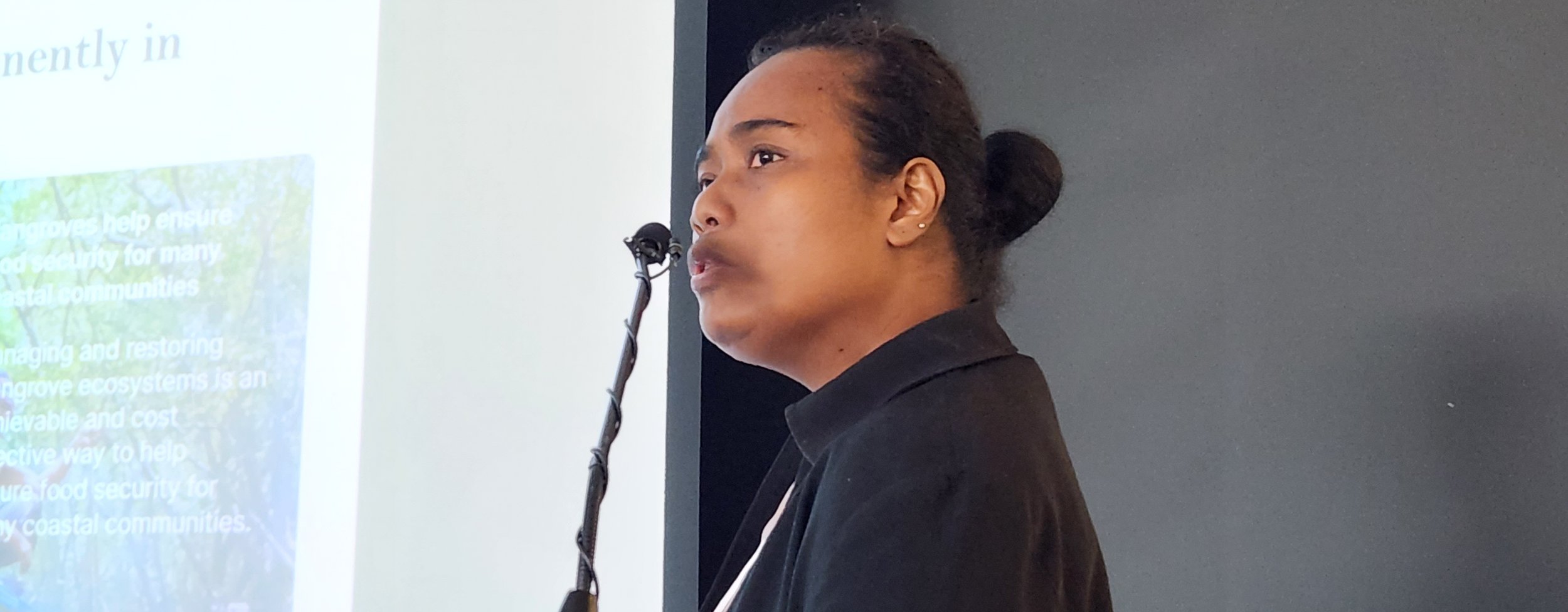










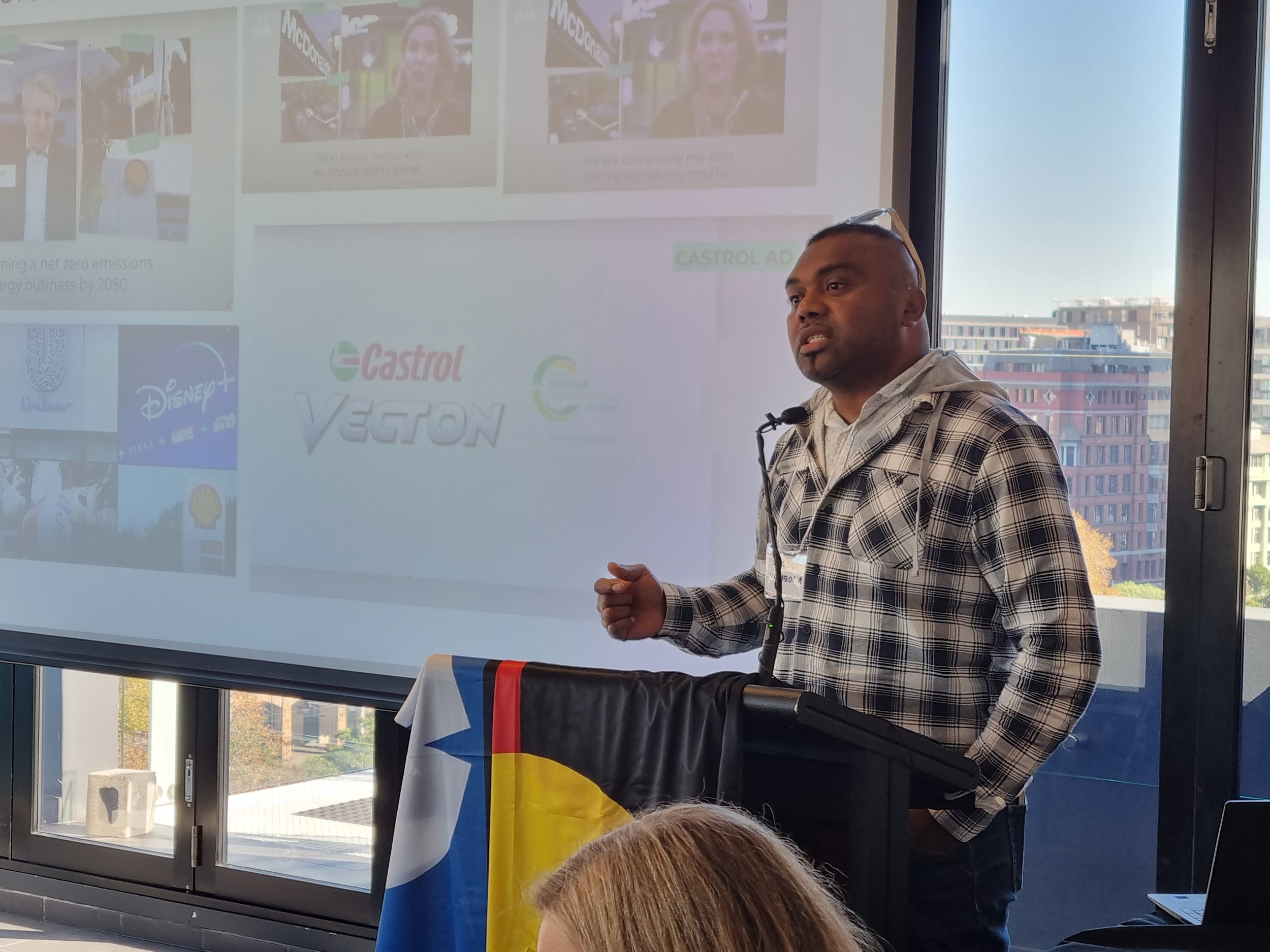

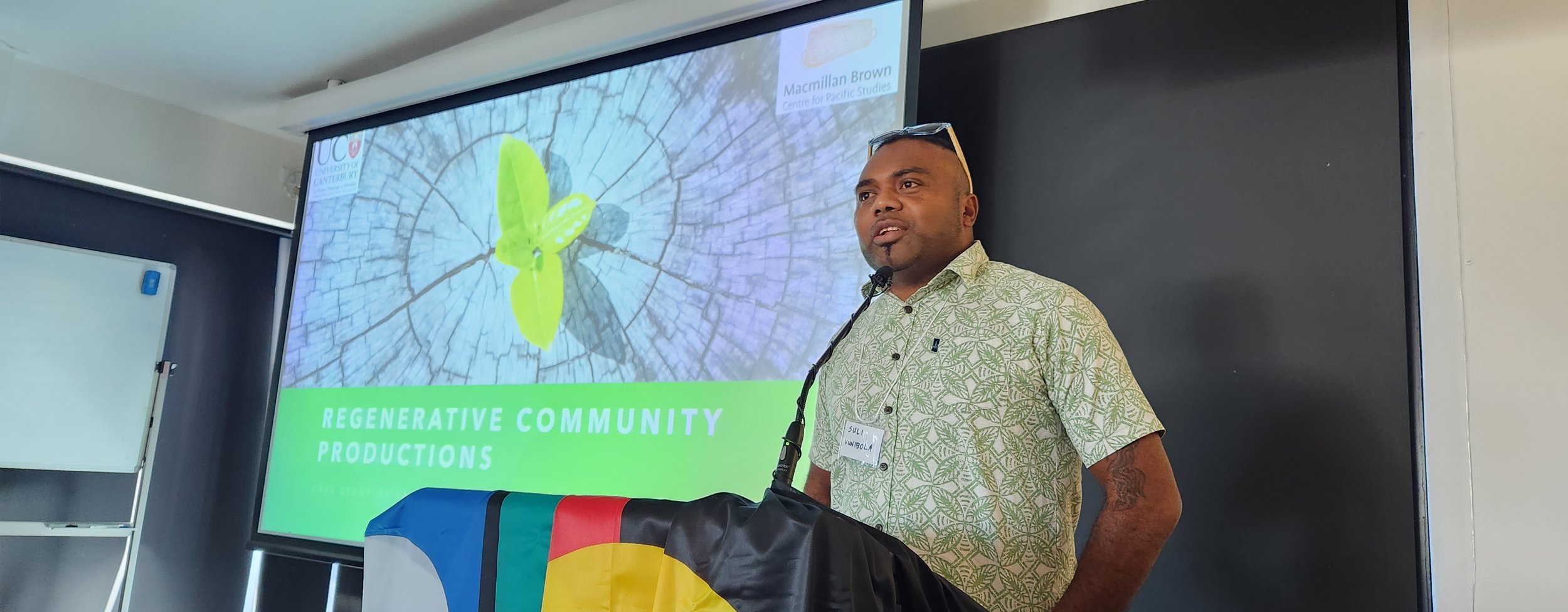
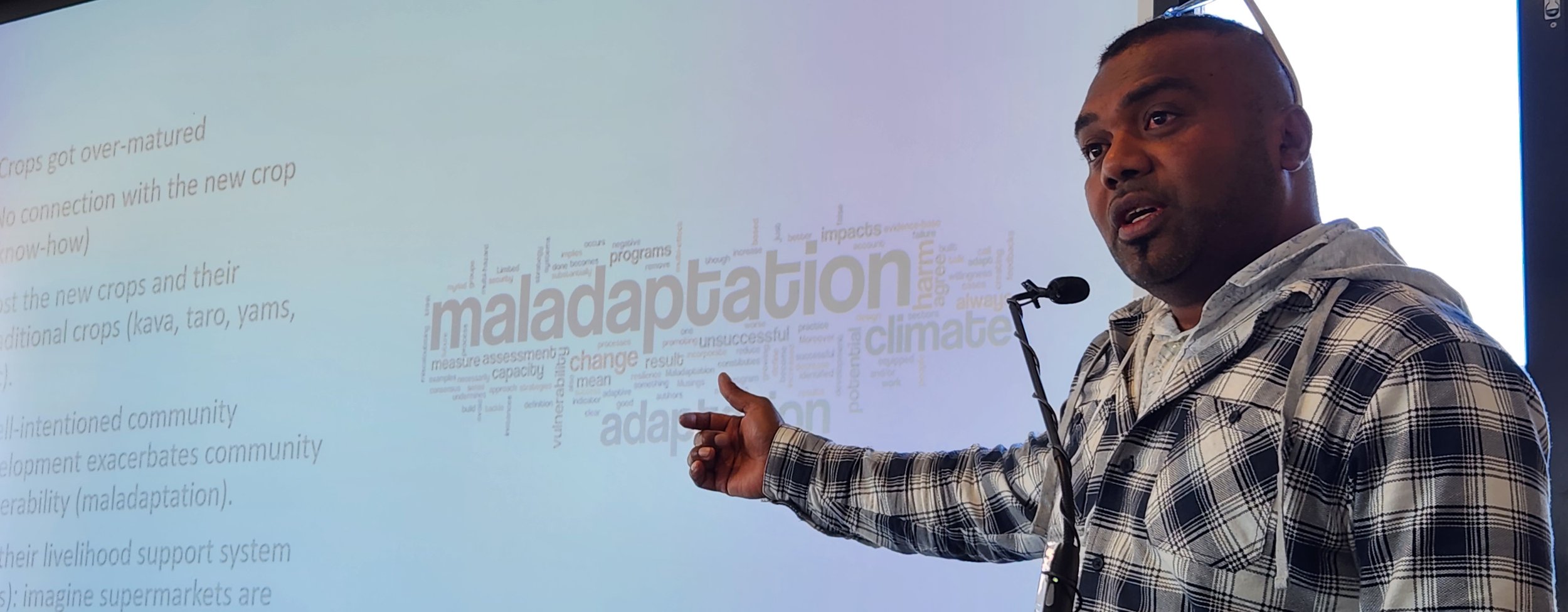






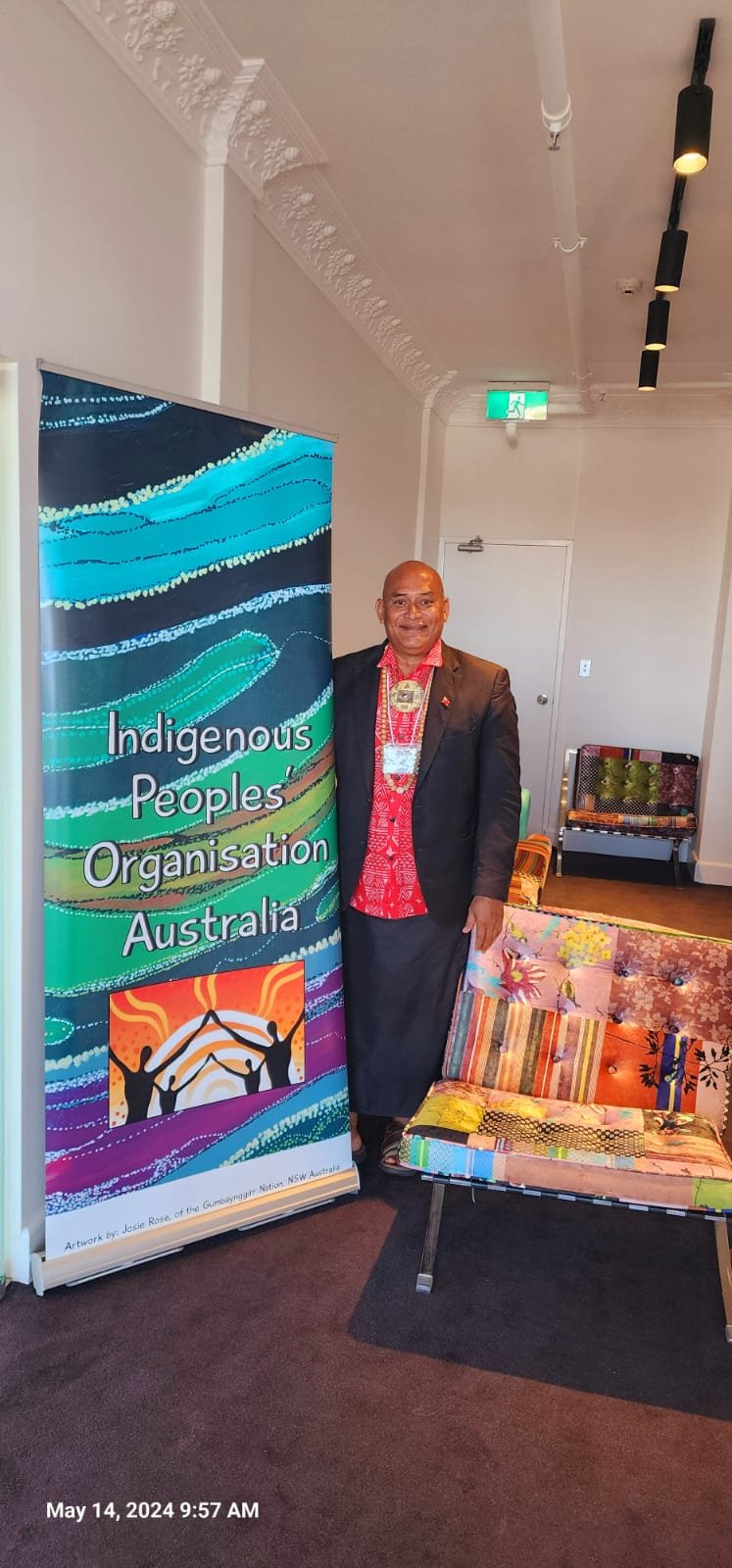


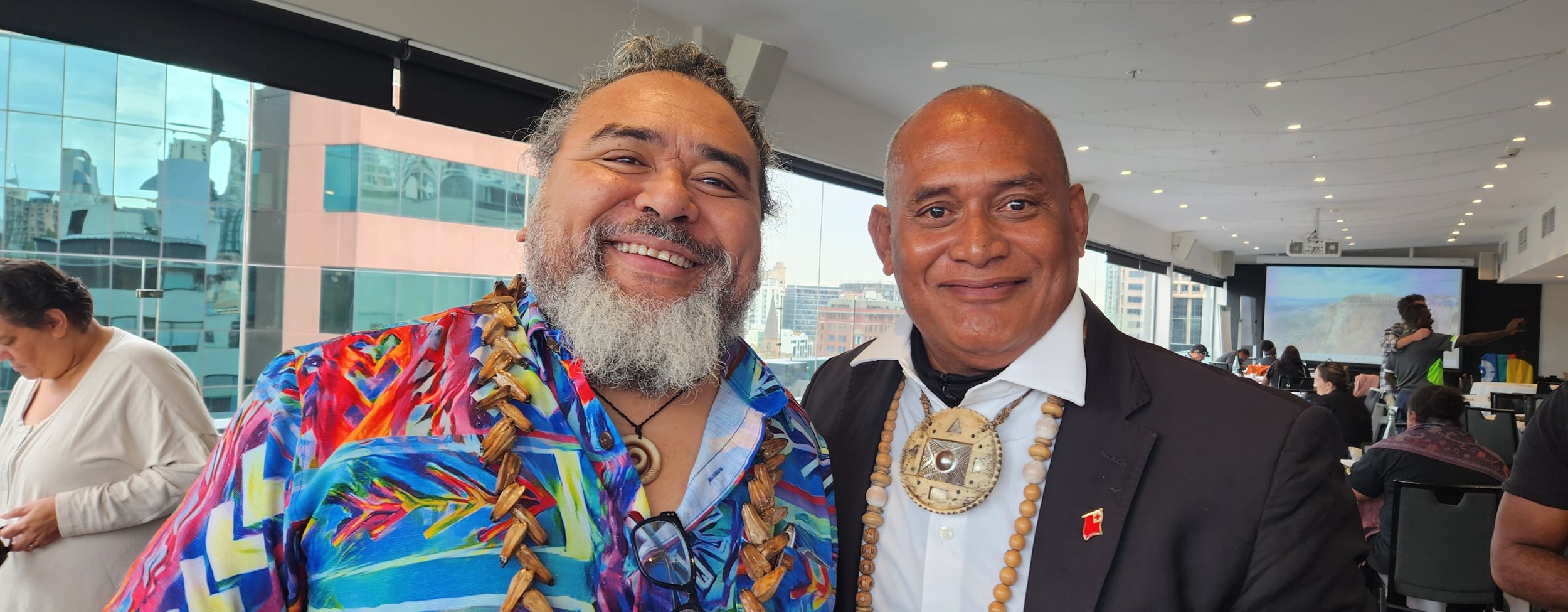

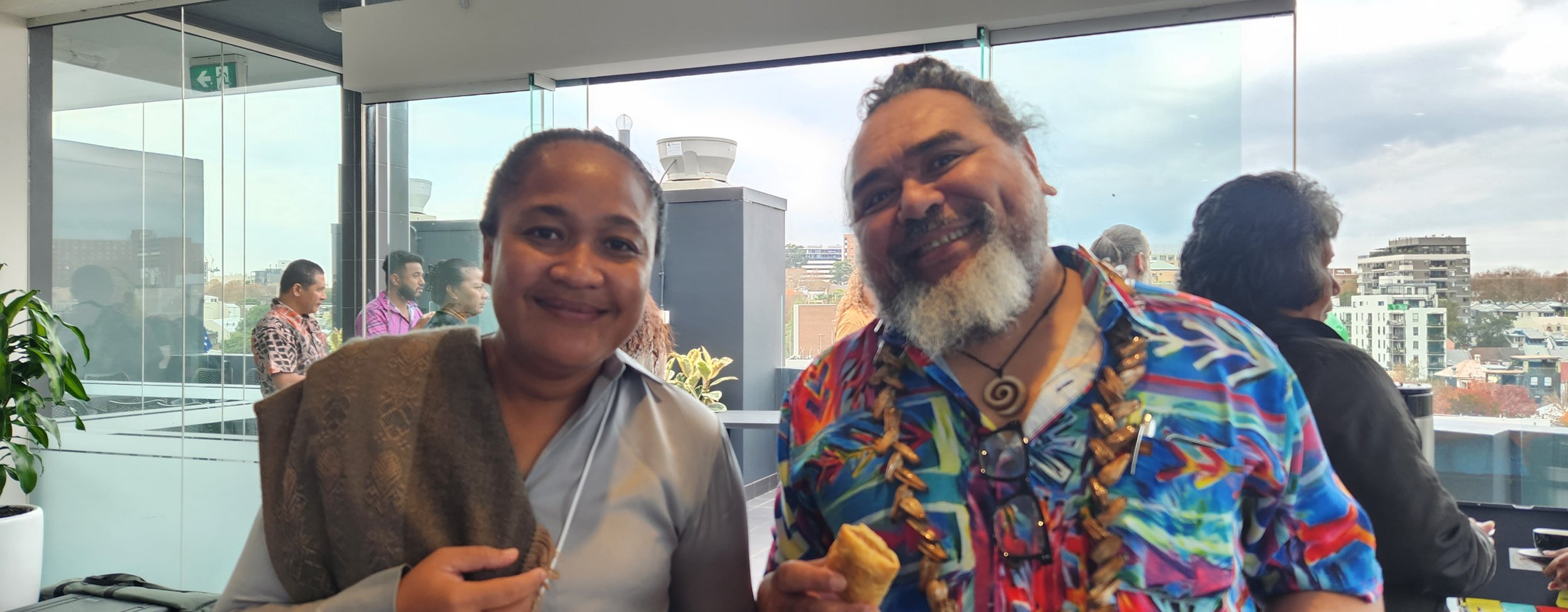

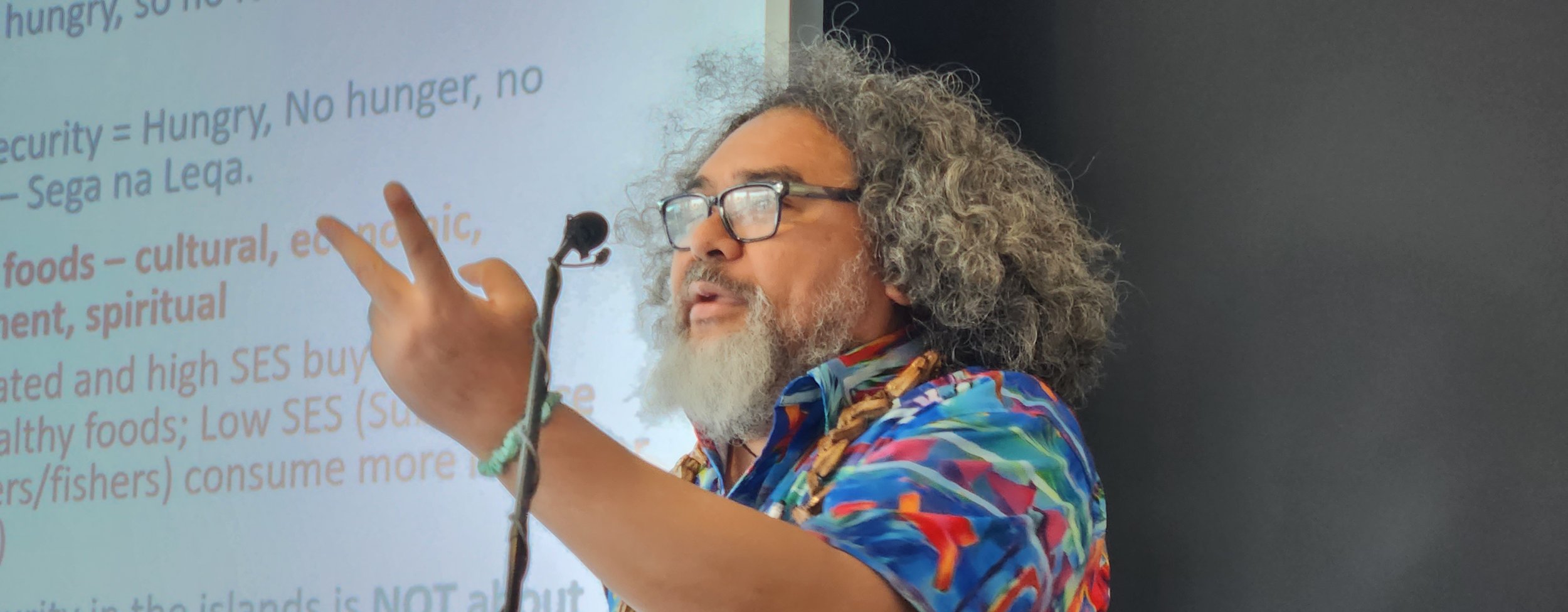



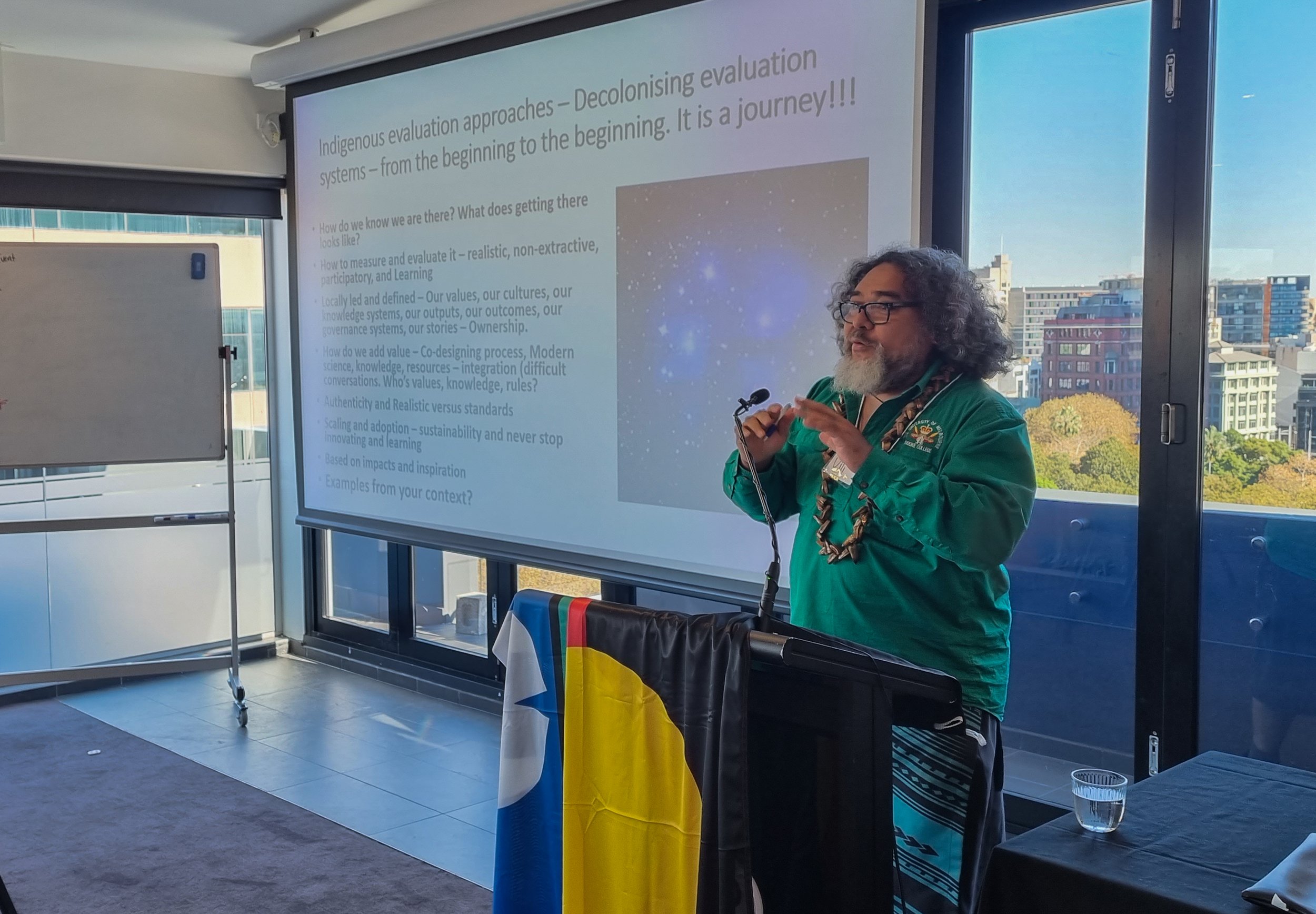
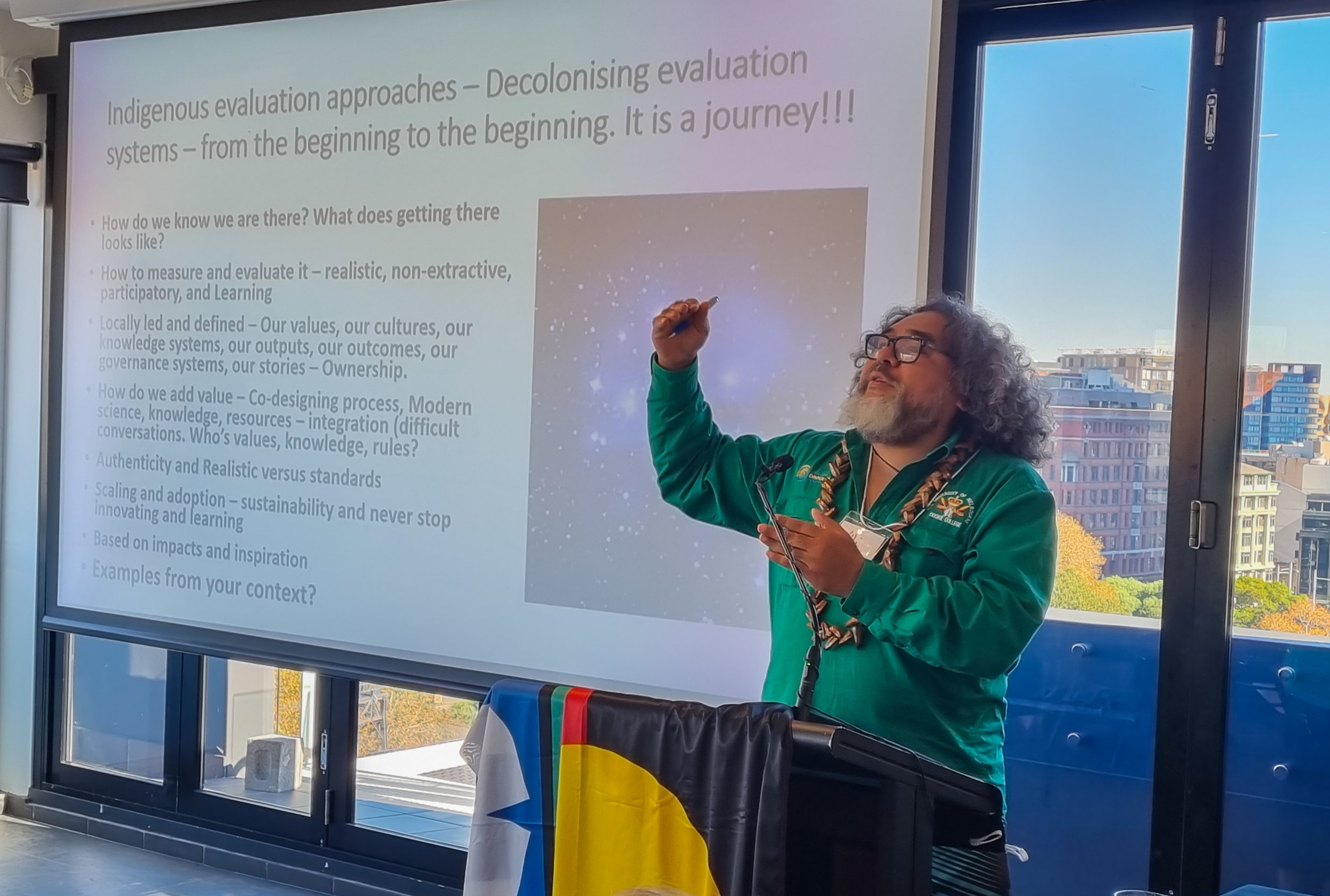
Climate Projects
The Climate Projects facilitate First Nations responses to climate change and aims to empower communities in Australia and the Pacific to develop place-based initiatives. Business Cases are being developed to respond to the needs of marginalised Indigenous Communities to address the impact of climate change.
The cases will be used to assist communities to secure funding for place-based solutions related to climate mitigation, adaptation, and capacity building, and to advocate and lobby for their implementation.
-

Tonga Community Meeting
Tonga faces a major risk from climate change, as the low-lying islands are threatened by rising sea levels and severe conditions. Additionally, there are concerns about economic sustainability. It is a challenging to balance economic growth with cultural preservation, especially since Tonga depends heavily on agriculture, fisheries, and remittances.
The pressing challenge is to find ways to develop these sectors sustainably while preserving cultural integrity.
-
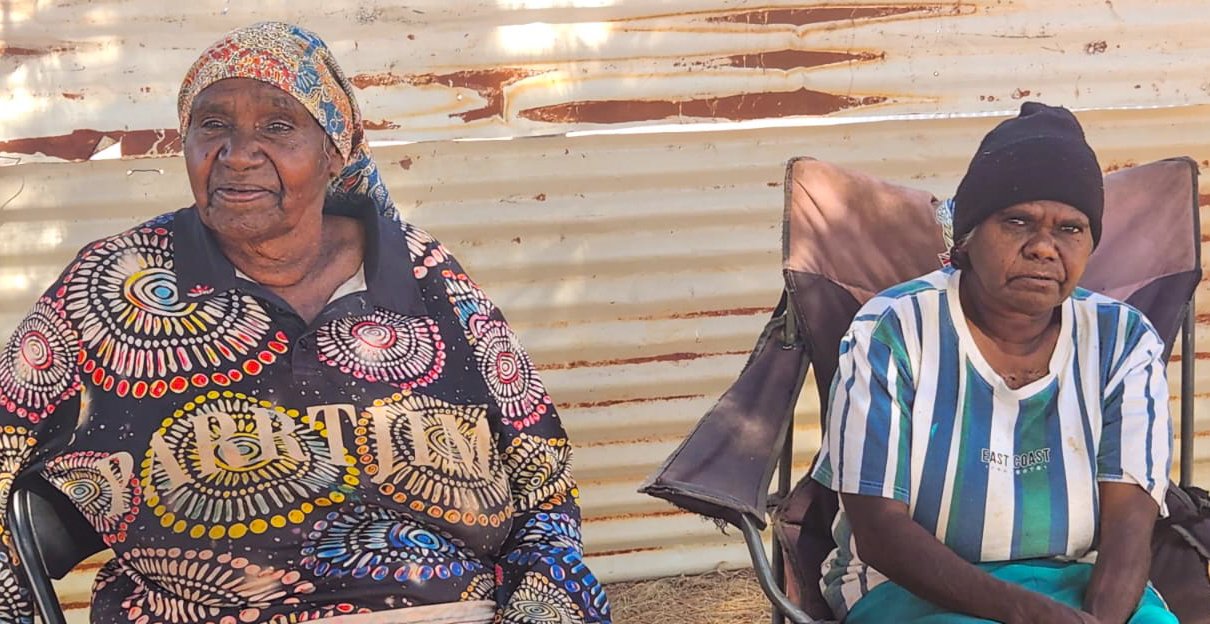
Soapy Bore Community Meeting
The community is in dire need of access to safe and reliable water supplies. Access to water is essential for this Aboriginal community for reasons of cultural and spiritual significance and as source of drinking water. There are various times in the year that the community need to boil their water prior to drinking due to water contamination.
The community is seeking a lasting sustainable solution to the water crisis. The rising temperatures in summer can be around 45 degrees. Electricity outages also impact on the pumping of bore water.
-

Torres Strait Community Meeting
The ecosystem of the Torres Strait is delicate and intricately connected to the livelihoods of Indigenous peoples. Climate change impacts, such as coral bleaching and ocean acidification, threaten marine biodiversity.
The health of fish stocks, which are central to the diet and economy of Torres Strait Islanders, is being jeopardized. Species that are culturally significant, including traditional food sources, are declining due to changing marine environments, affecting food security and cultural practices.
Local Communities and Indigenous Peoples Platform
Pacific Regional Gathering
The Pacific Regional Gathering (PRG) was a United Nations mandated activity under the Second Workplan of the Facilitative Working Group (FWG) of the Local Communities and Indigenous Peoples Platform (LCIPP) of the United Nations Framework Convention on Climate Change (UNFCCC).
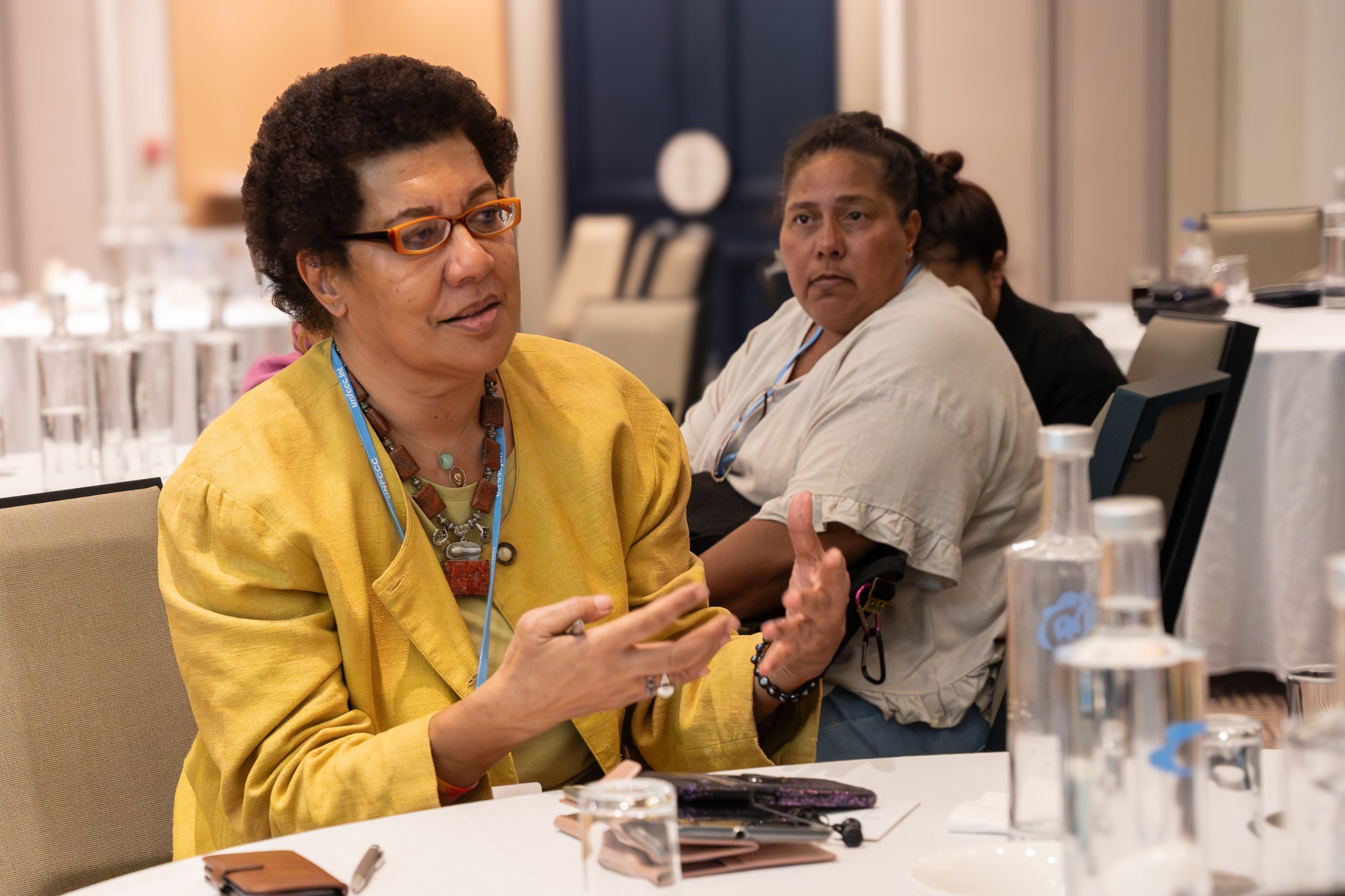

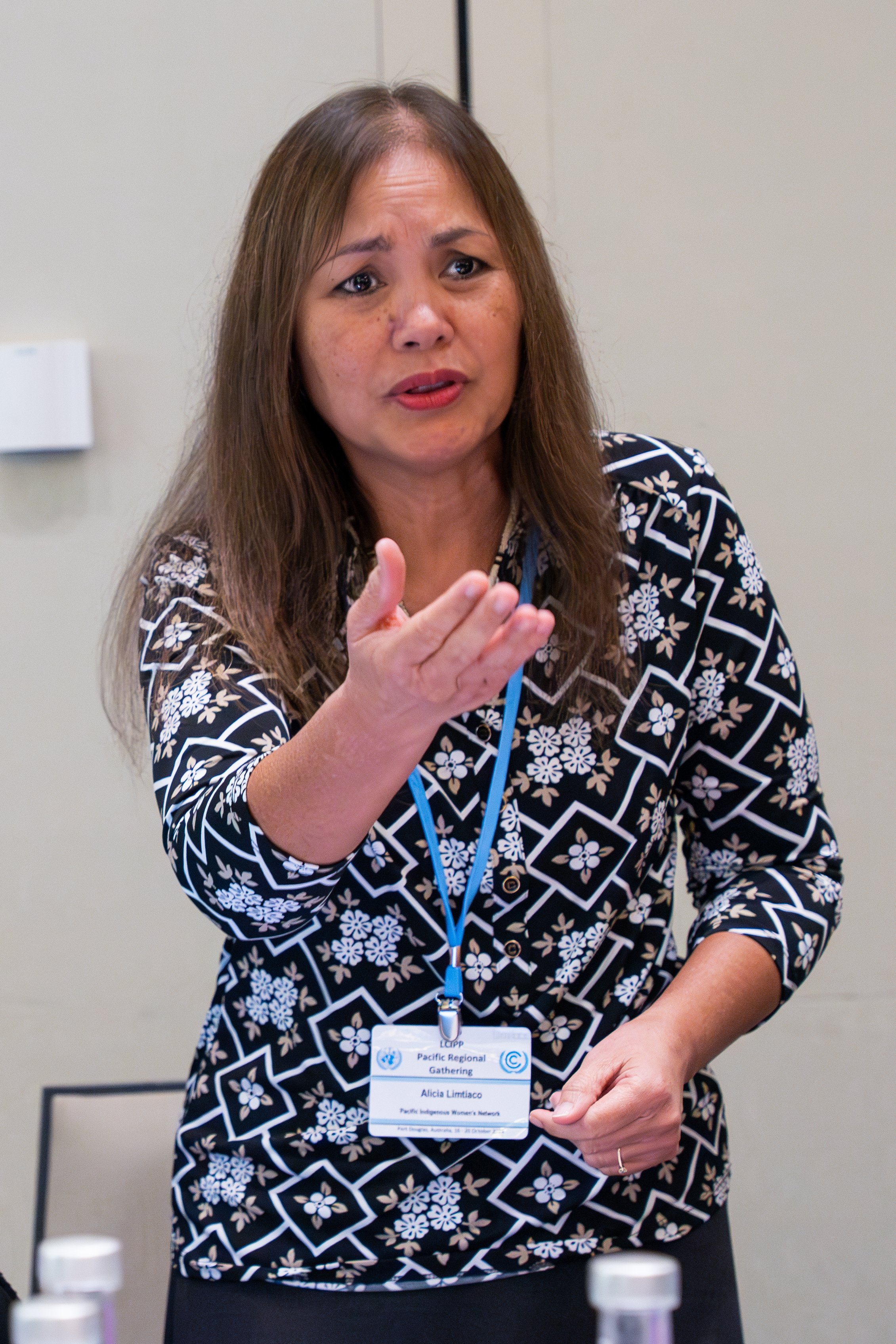








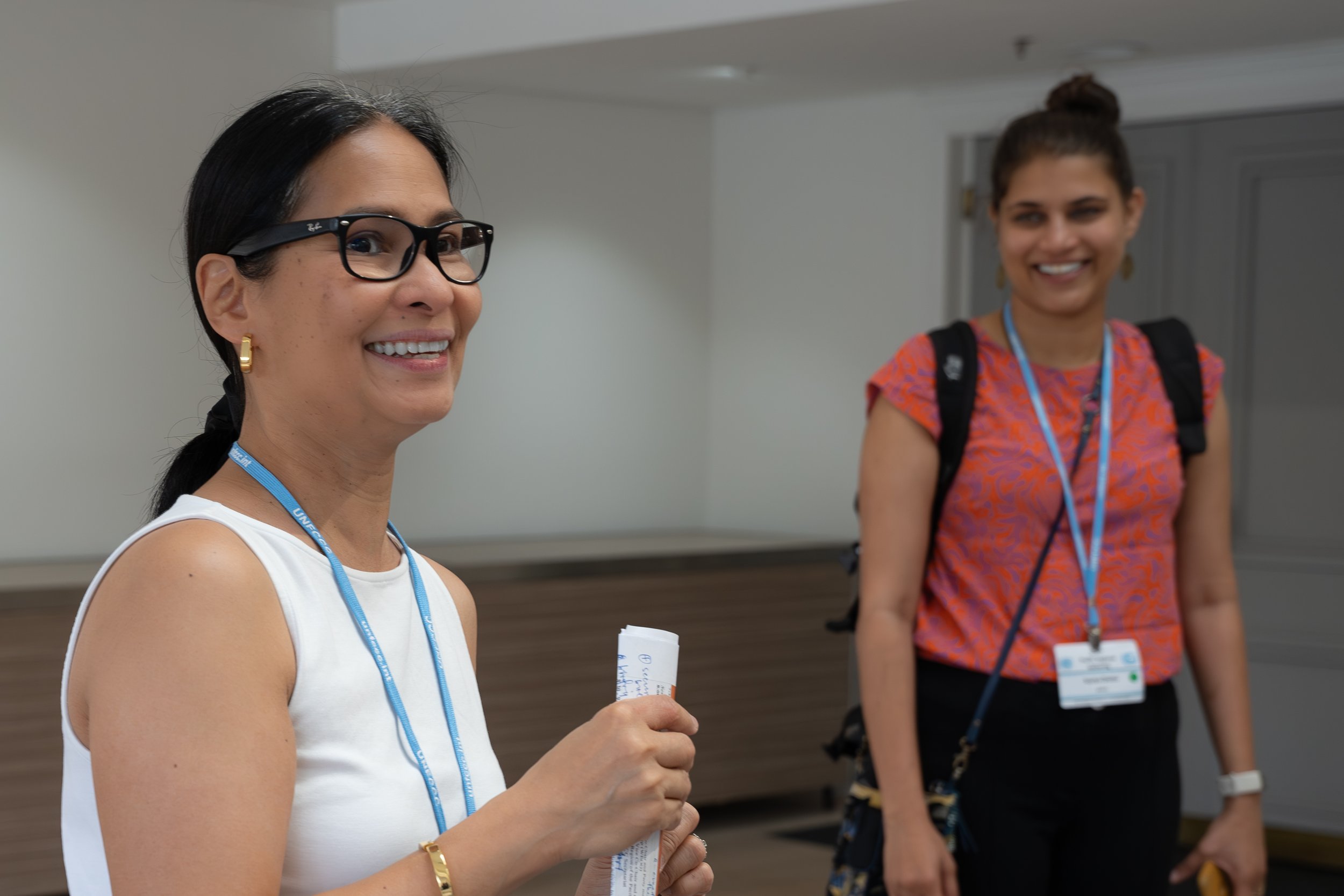














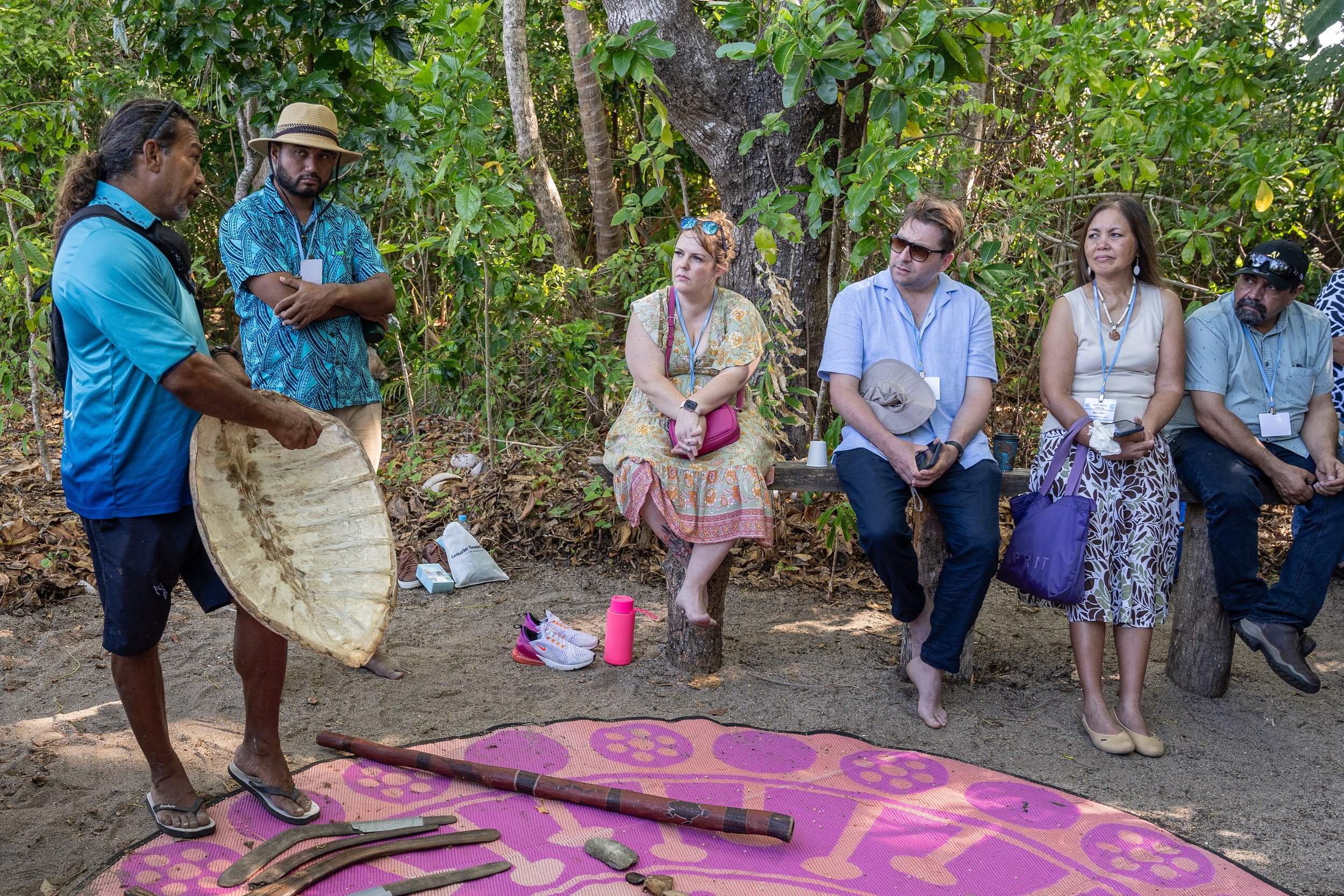


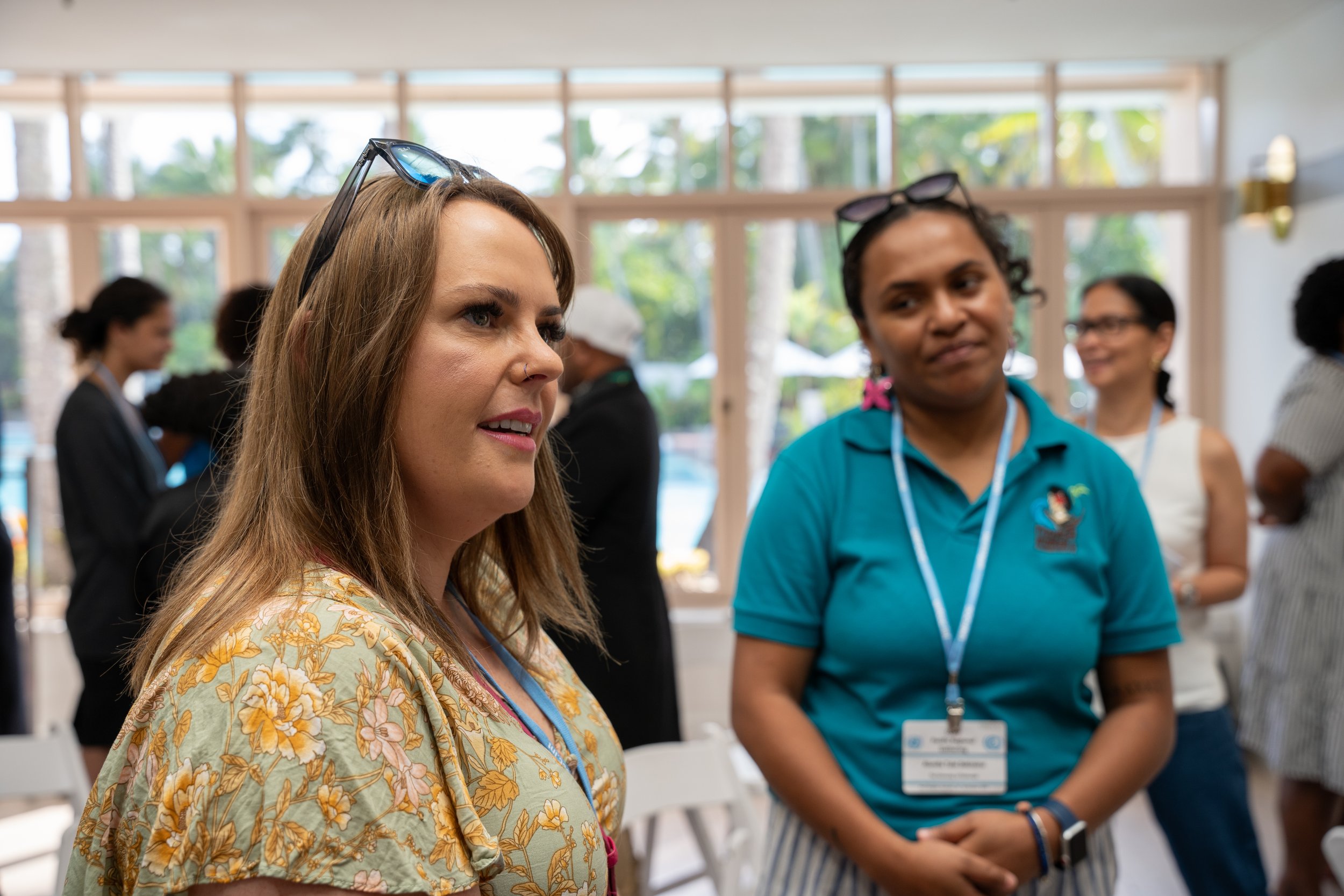
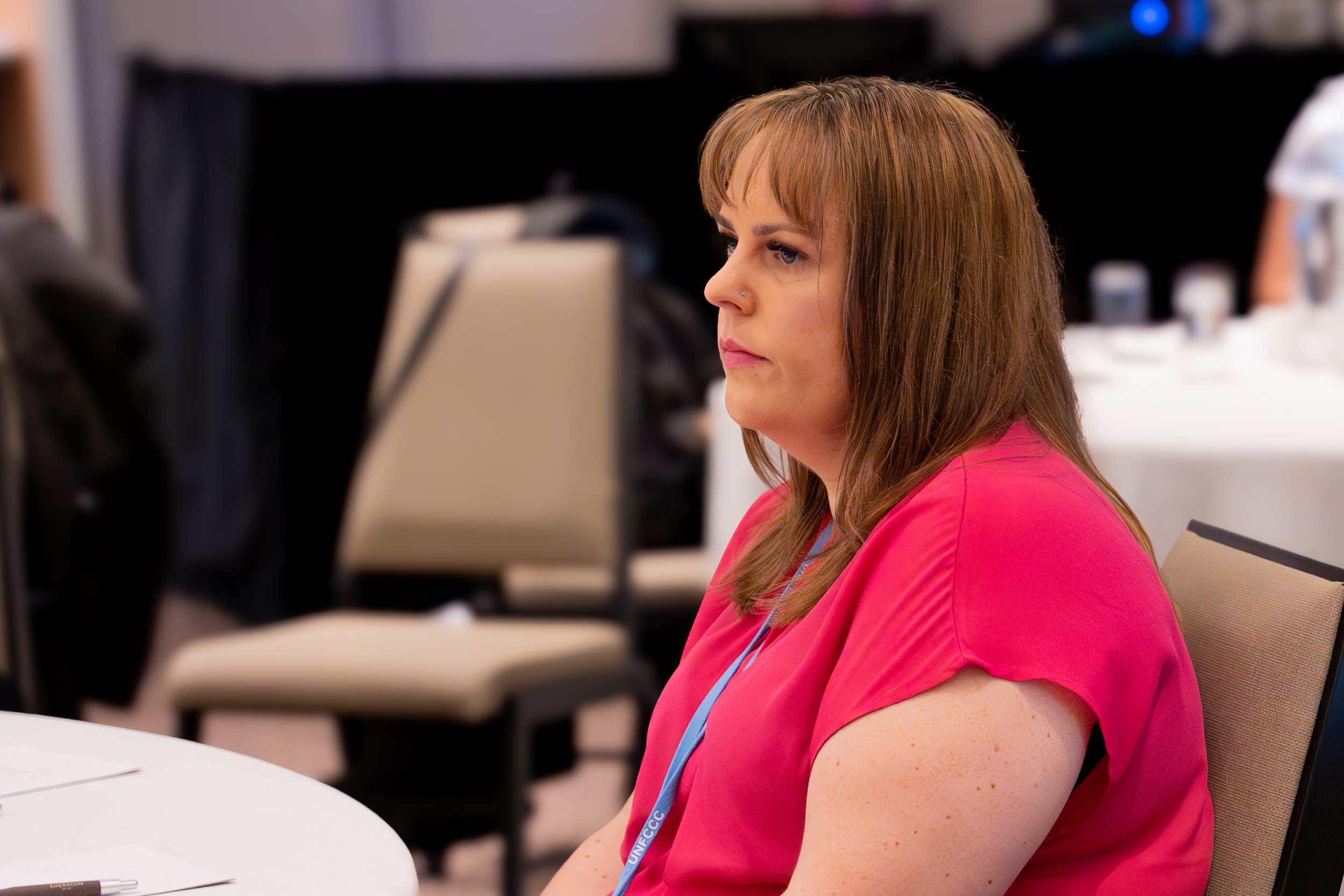
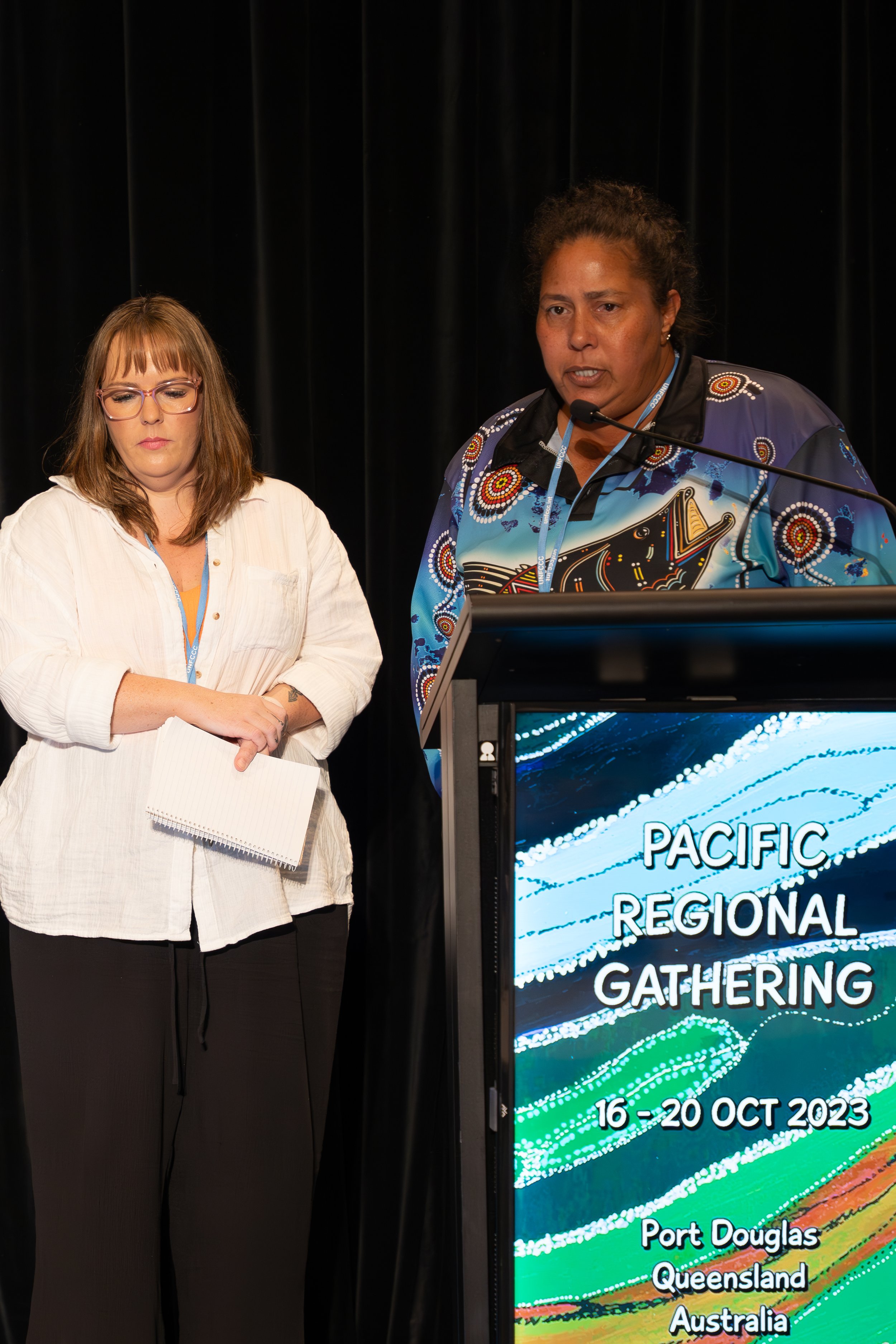









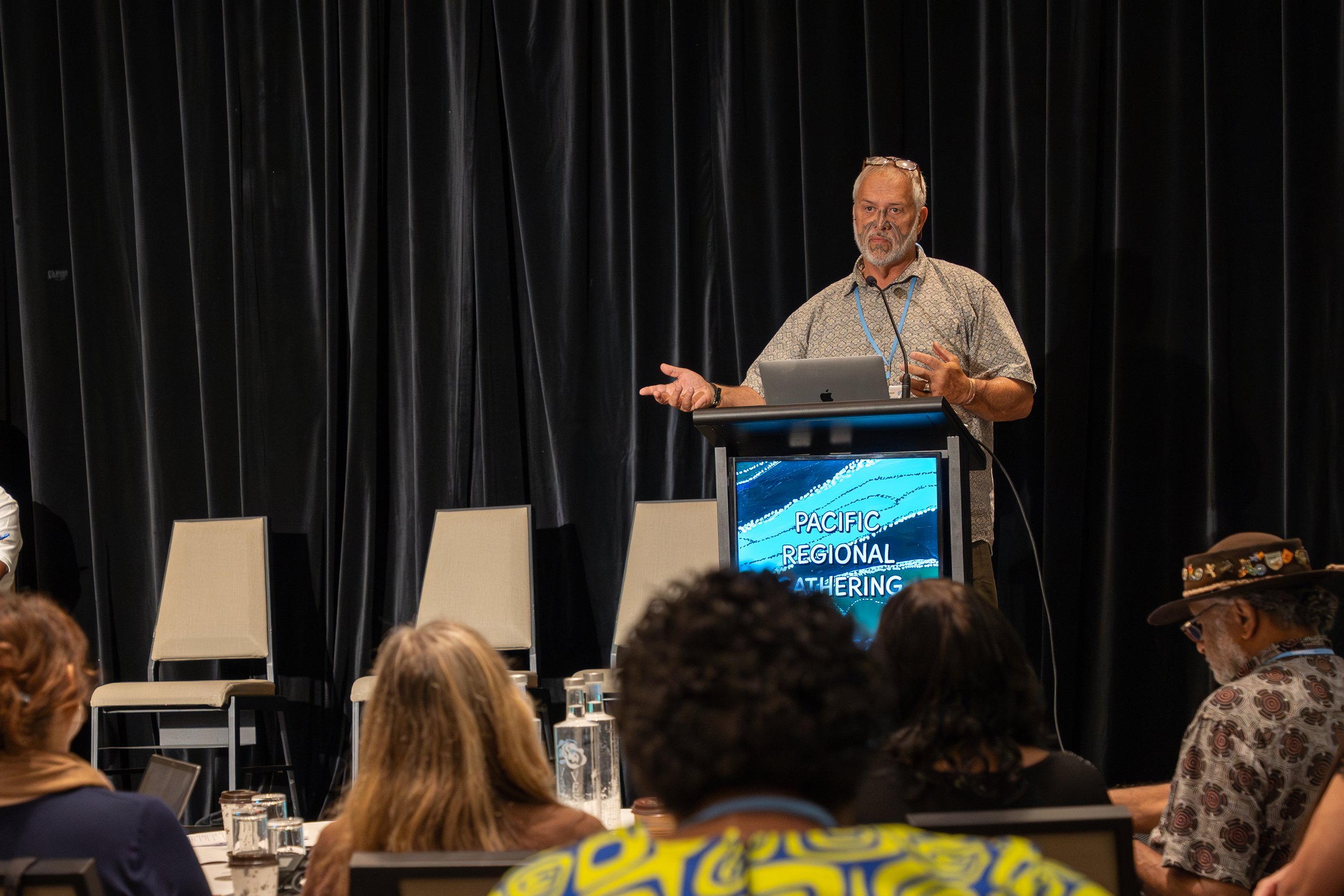
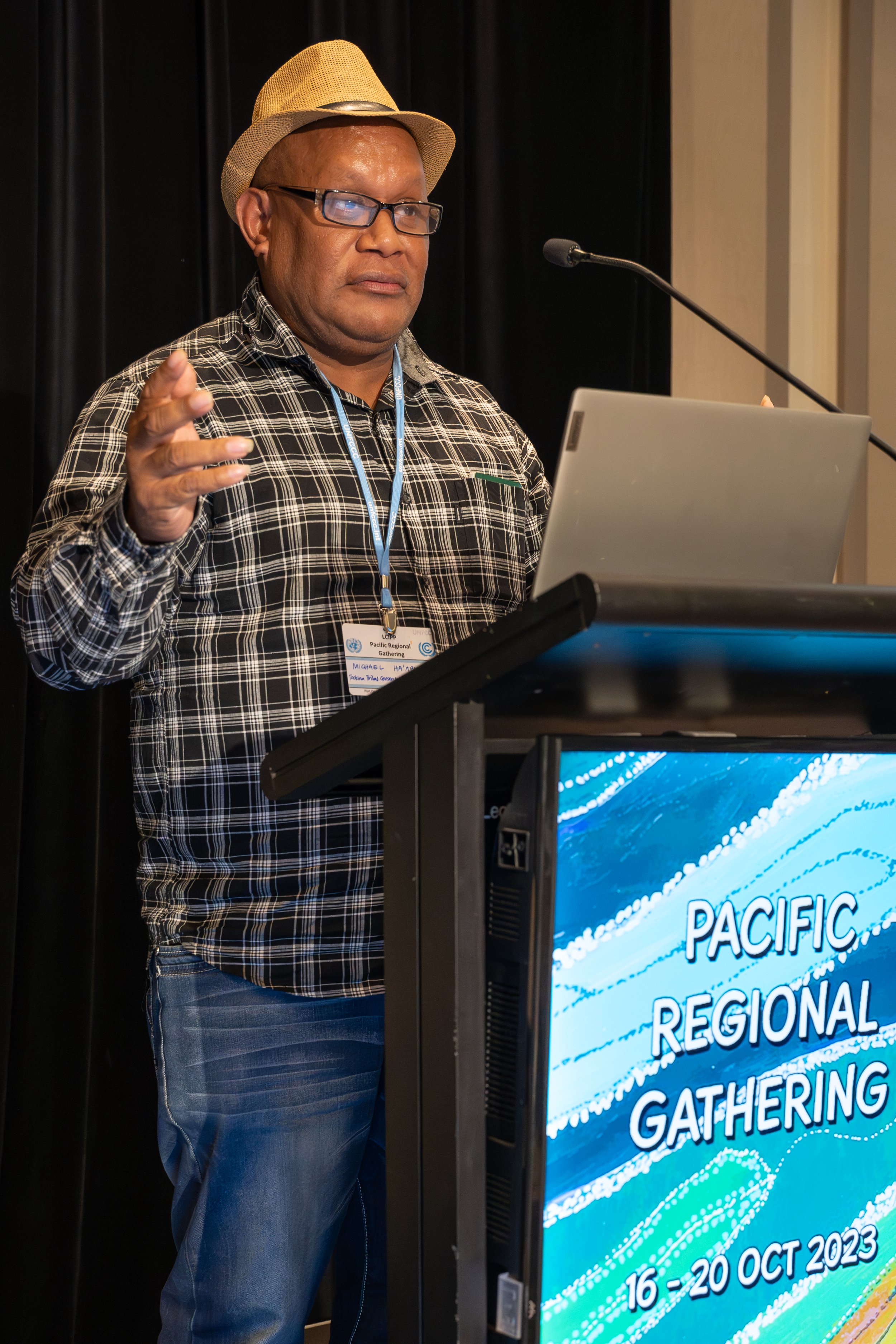











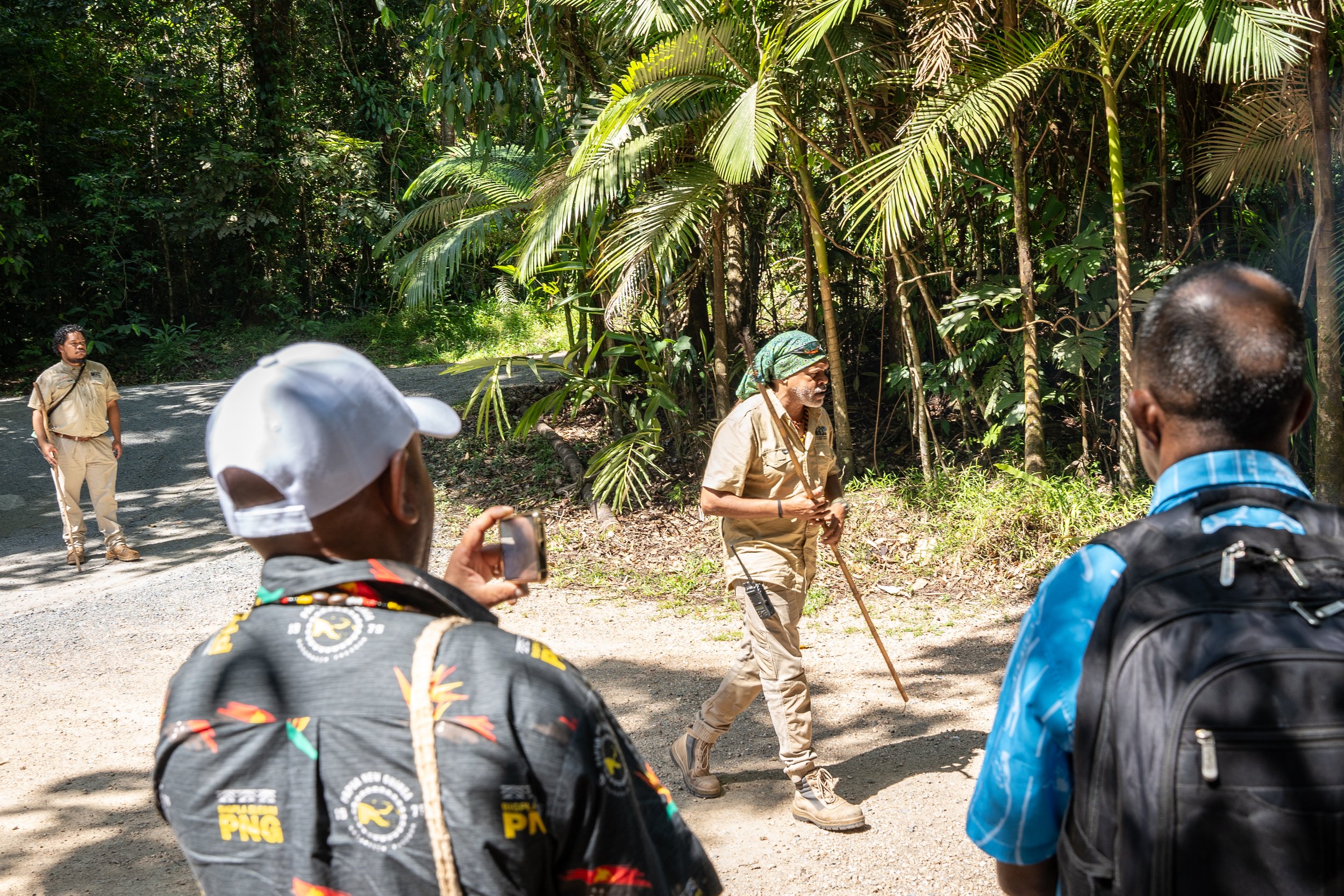

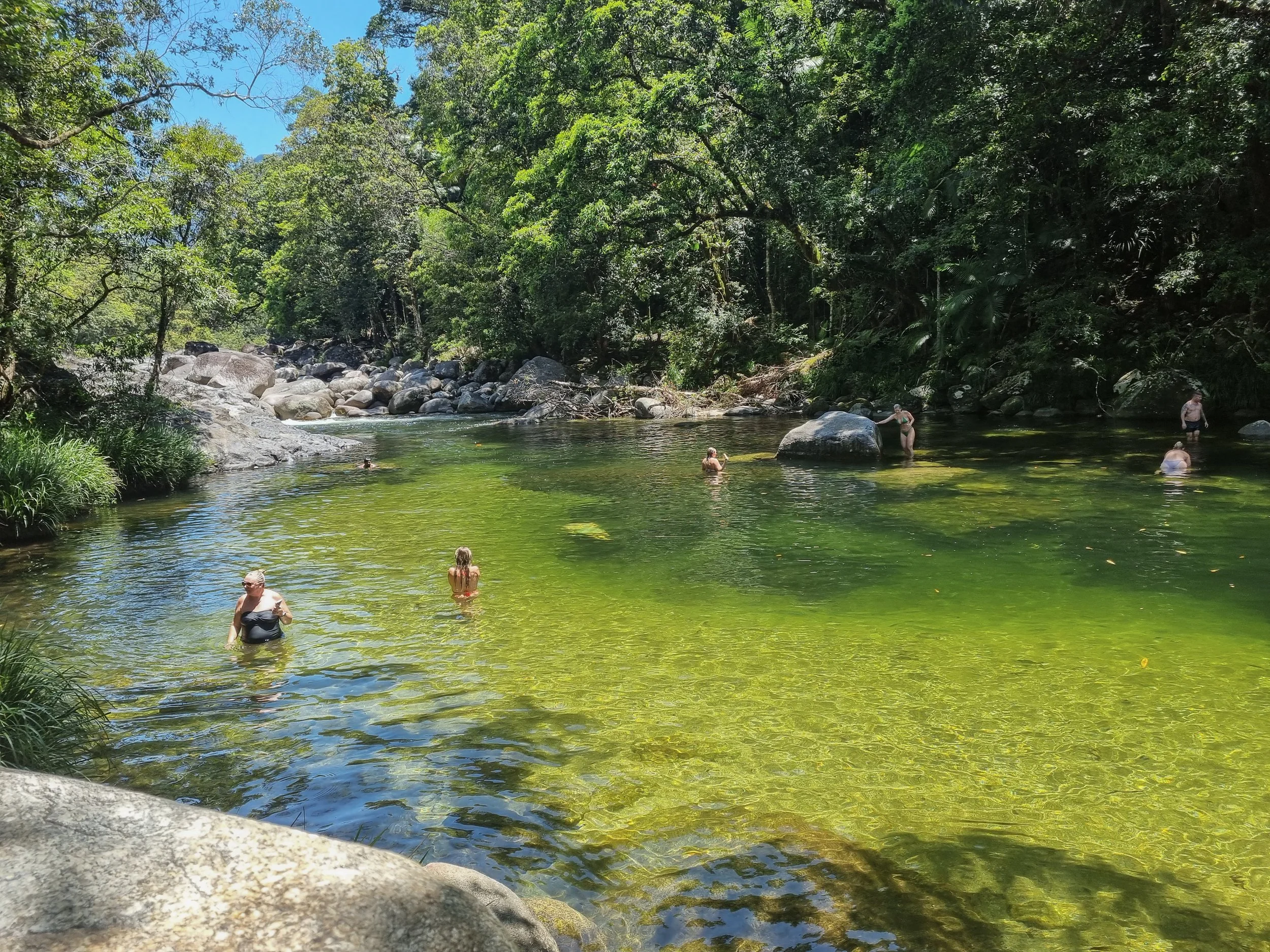
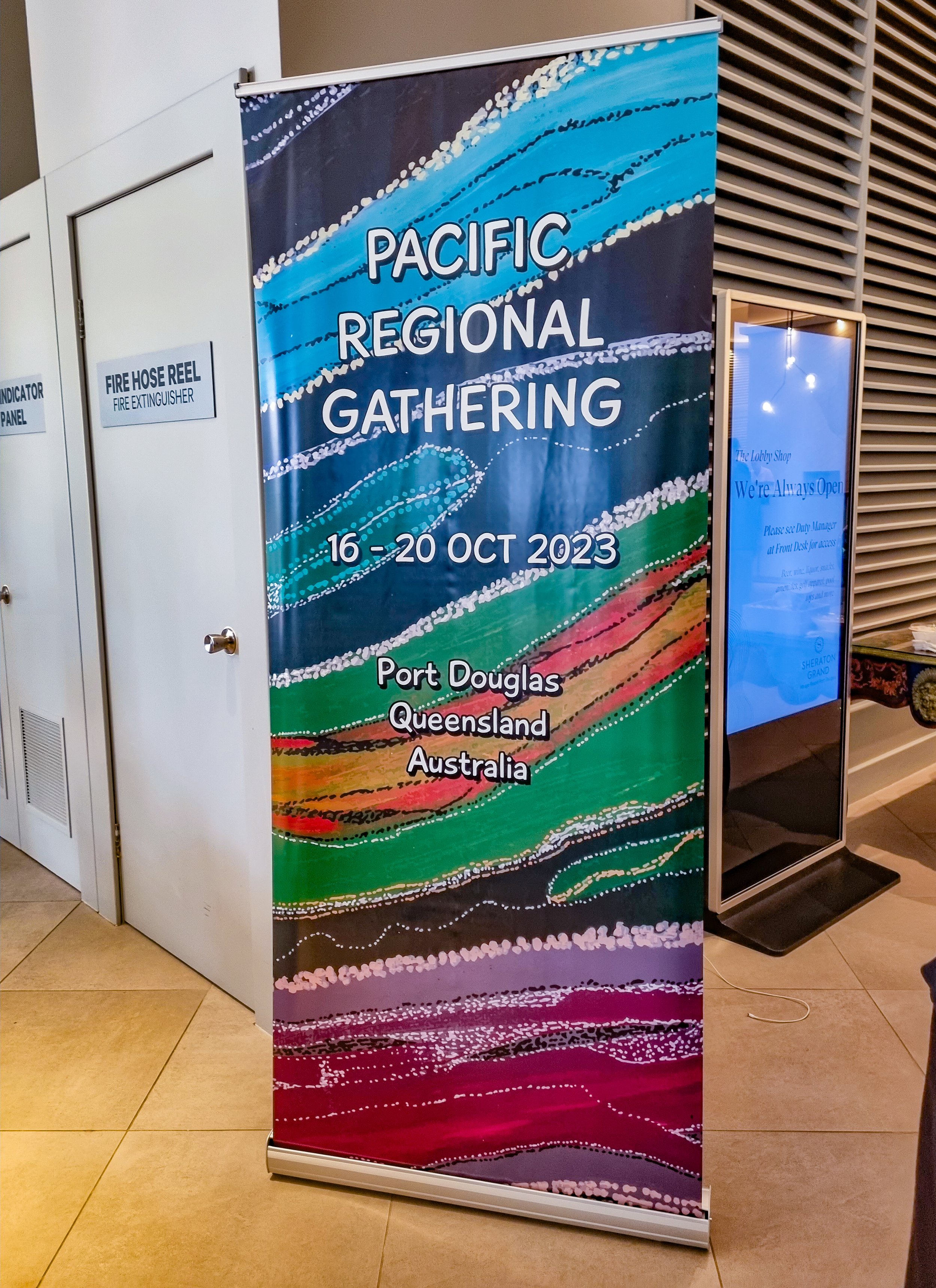
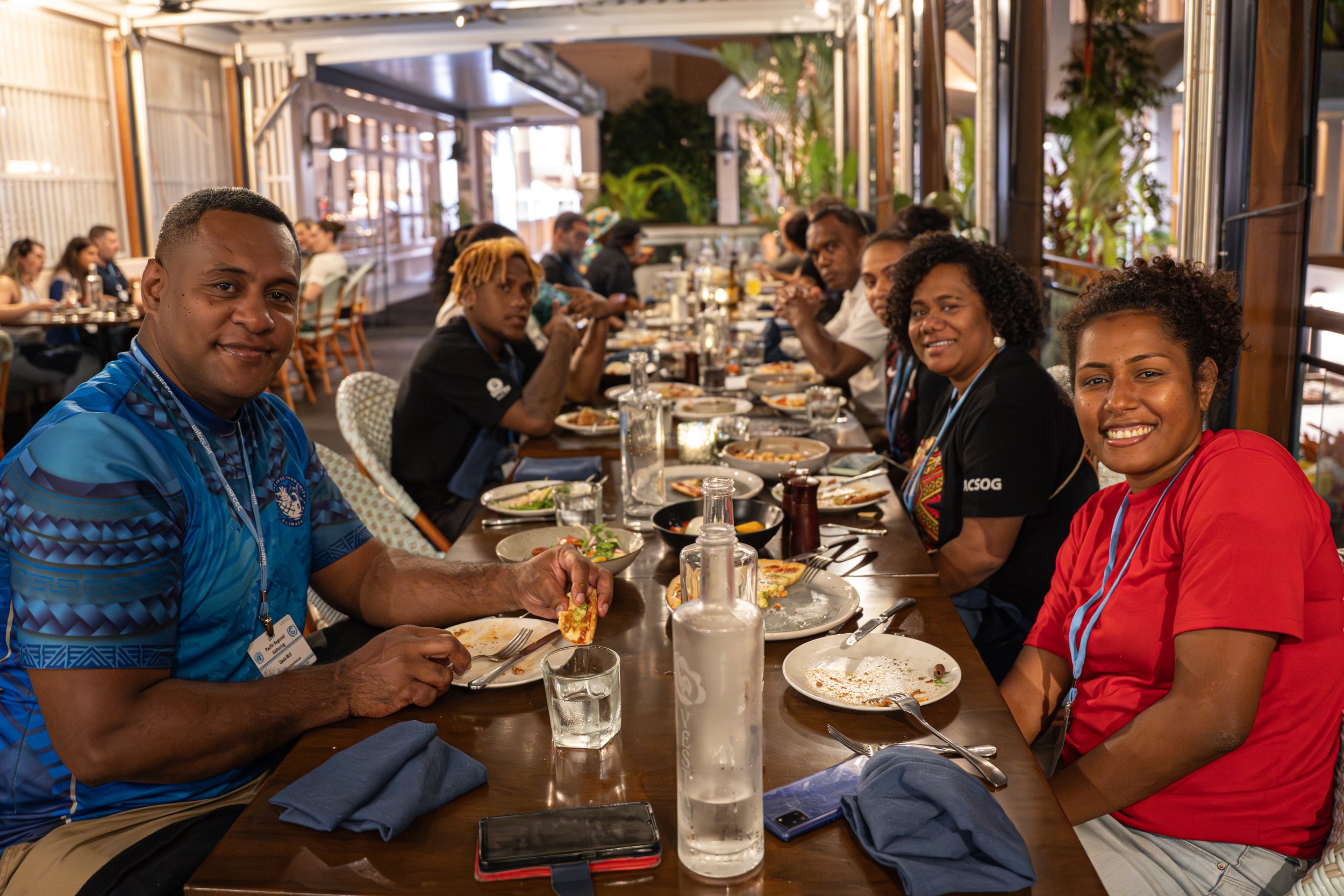
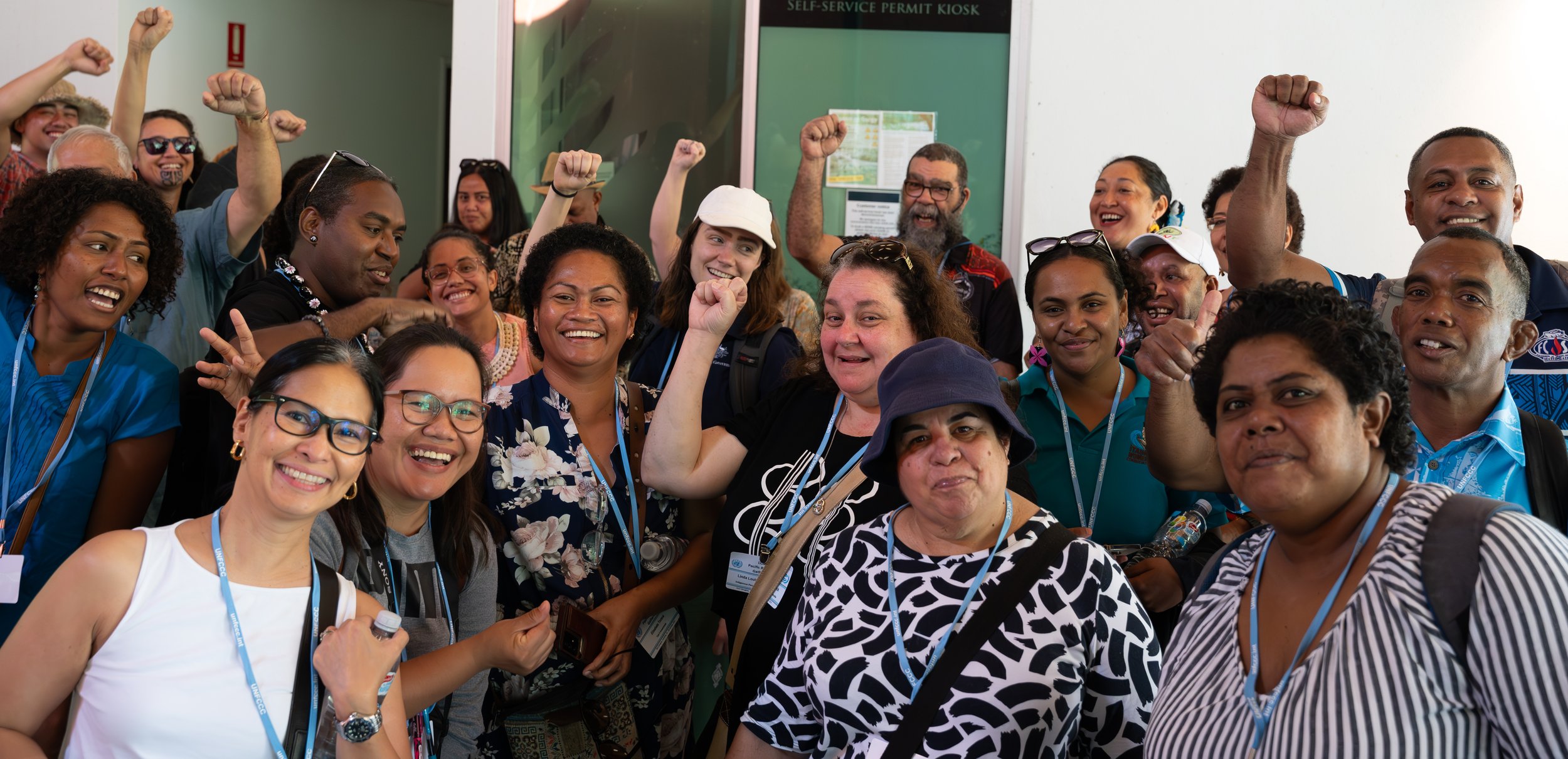






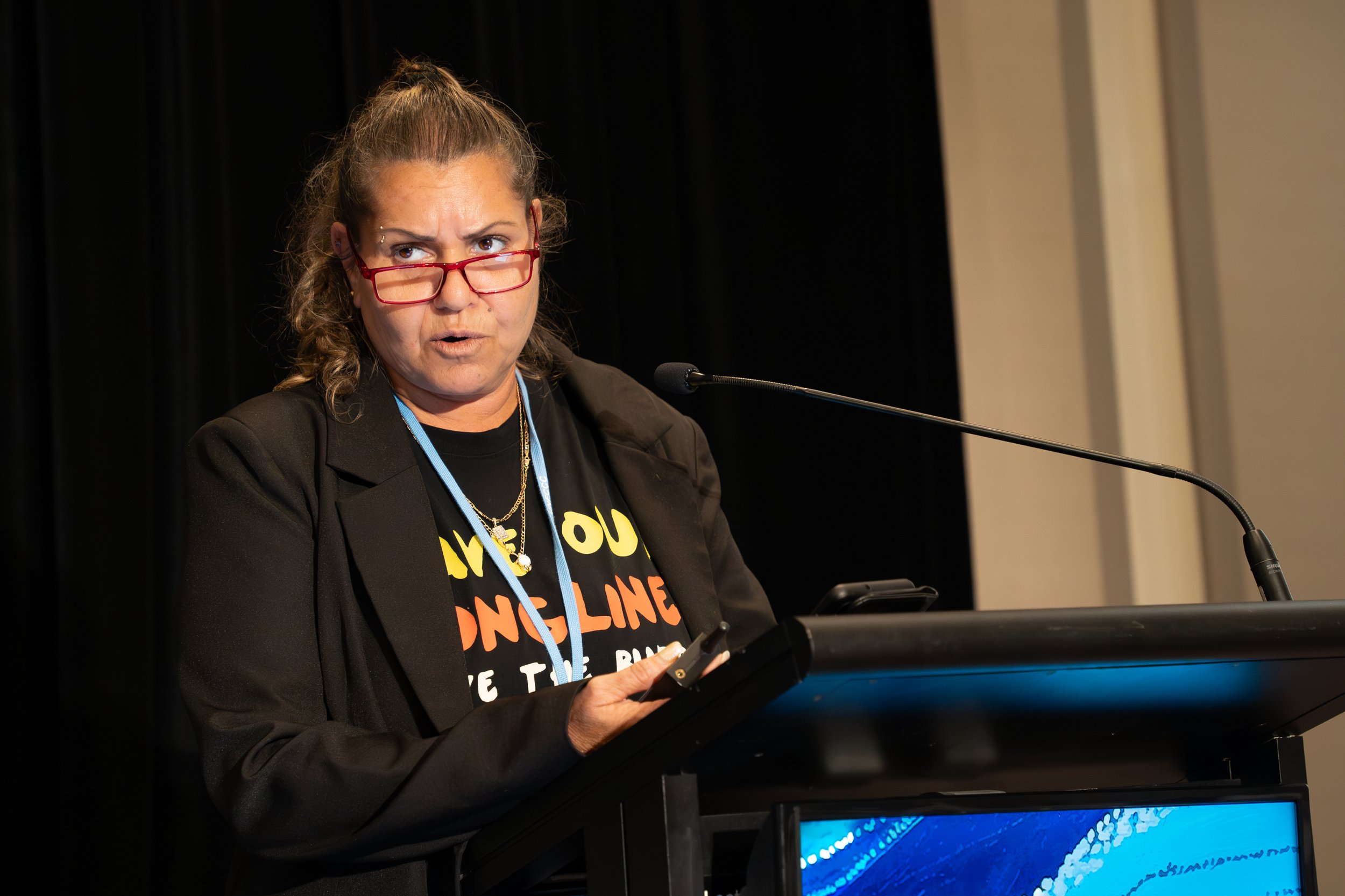
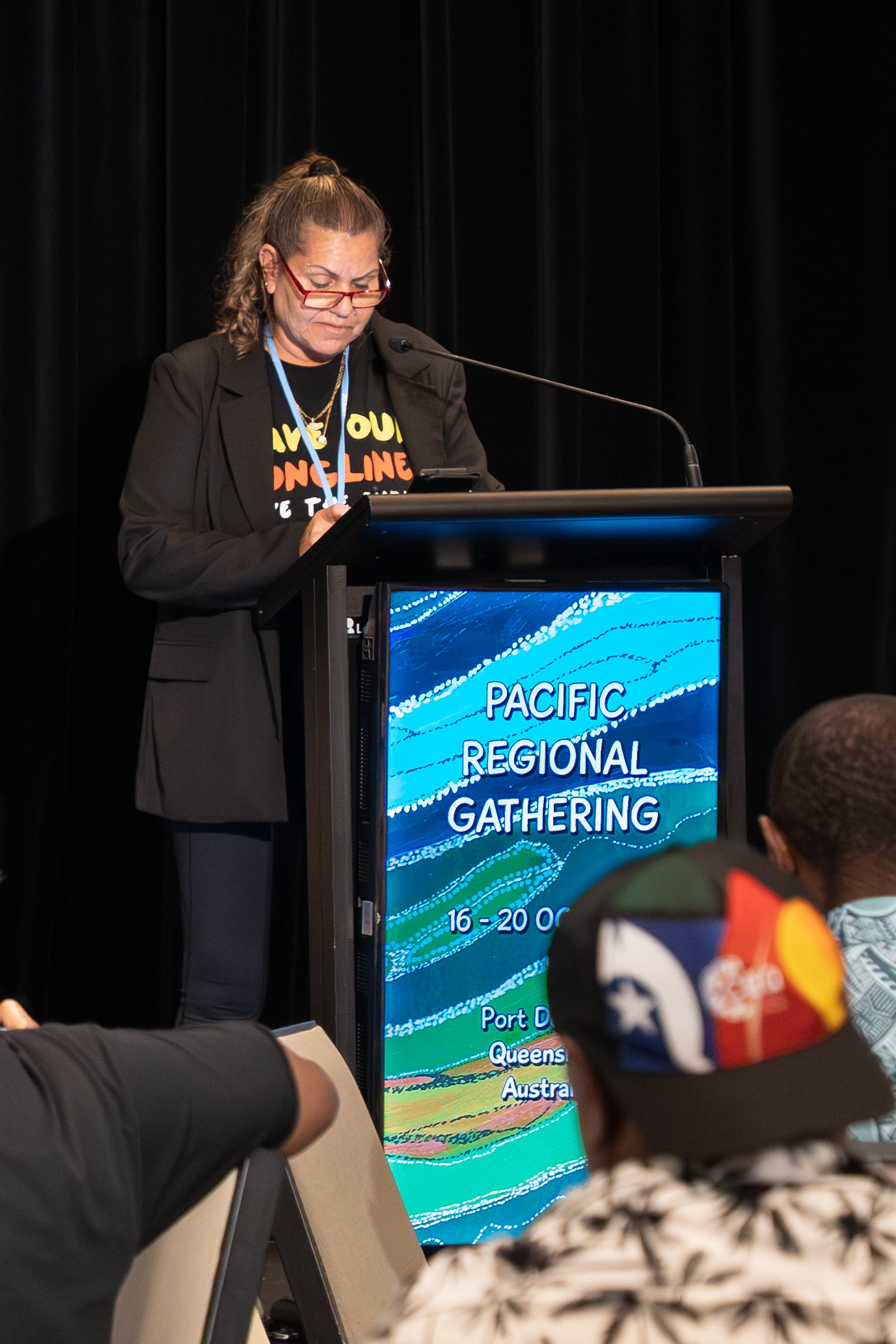





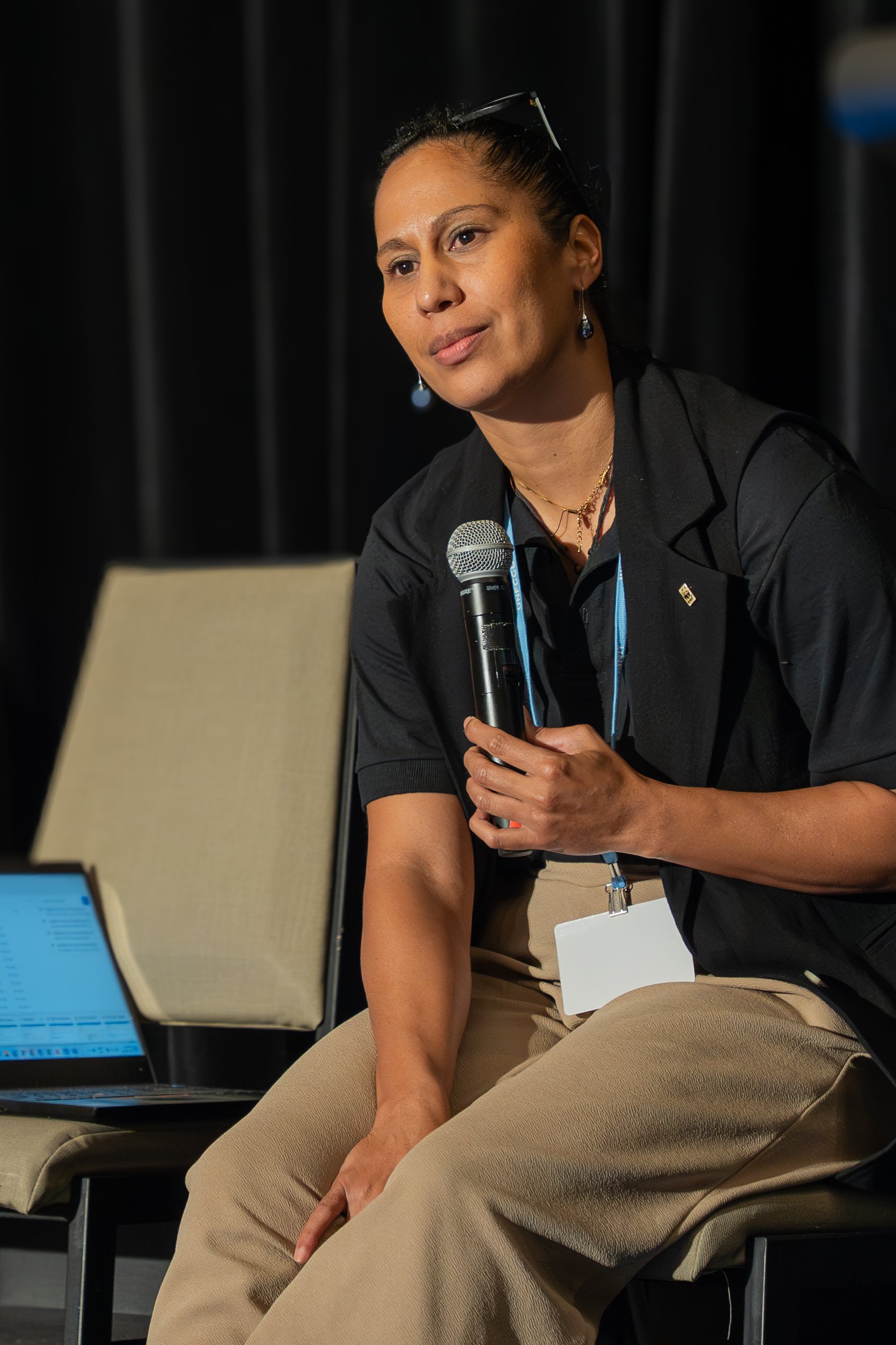





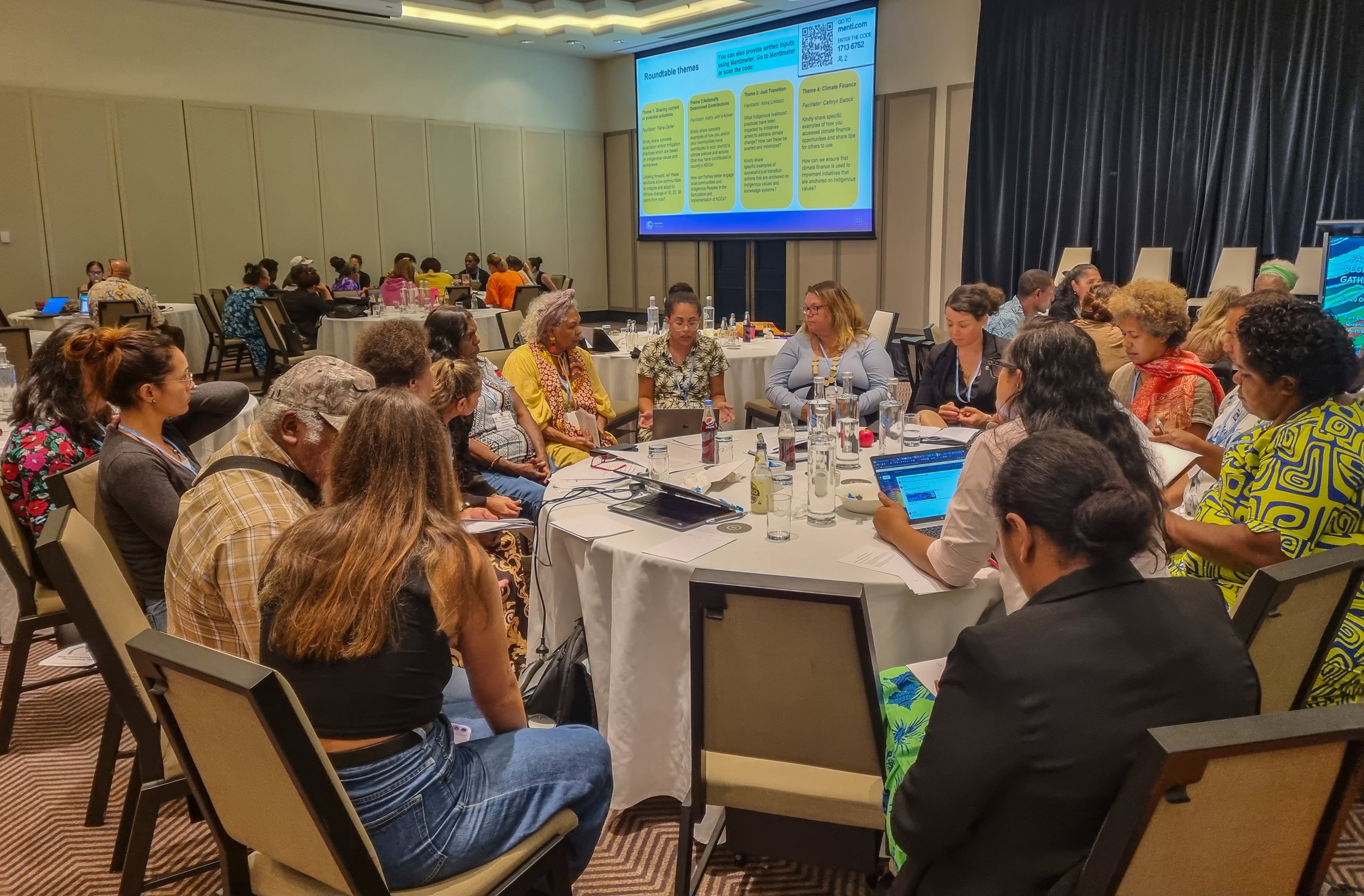


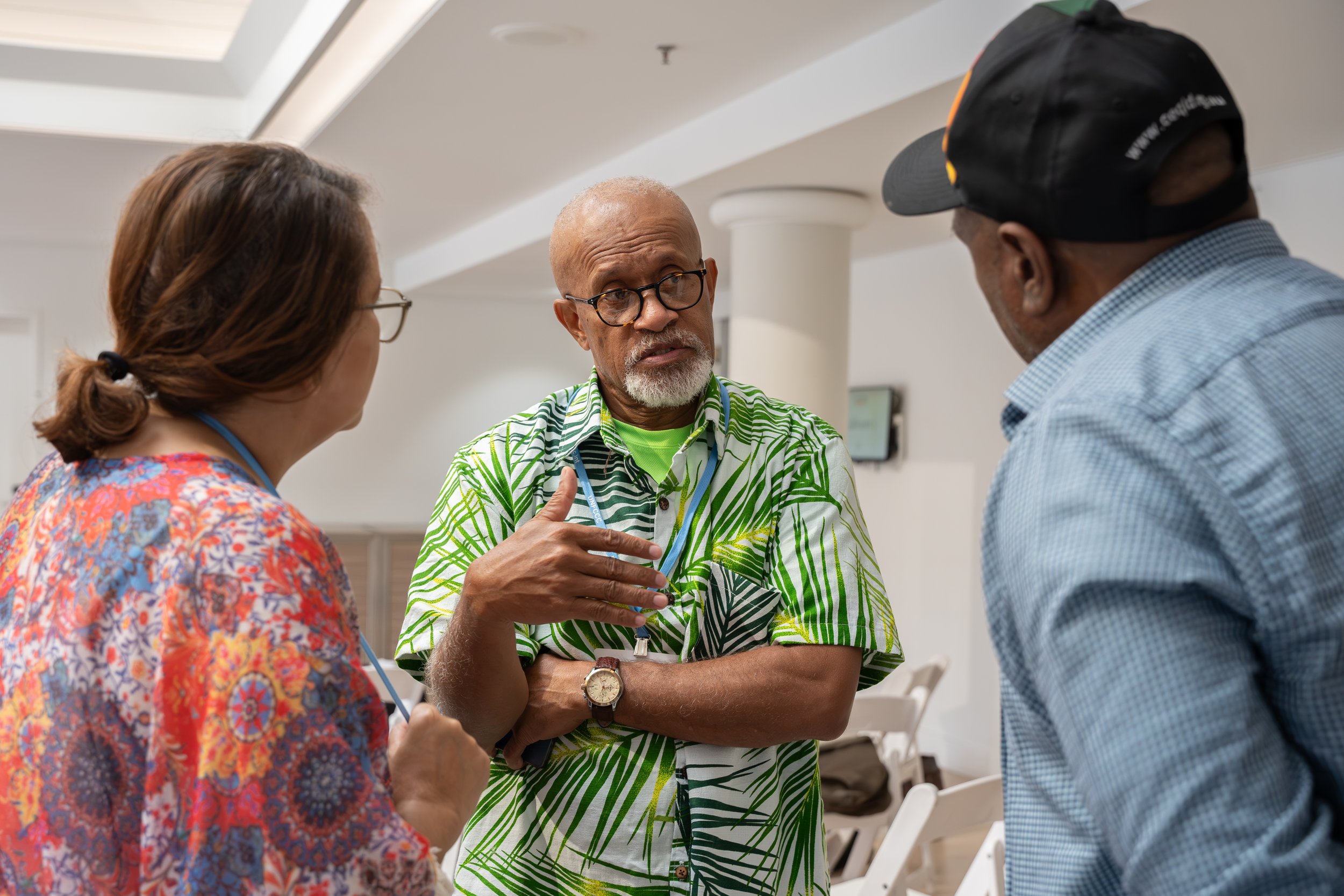



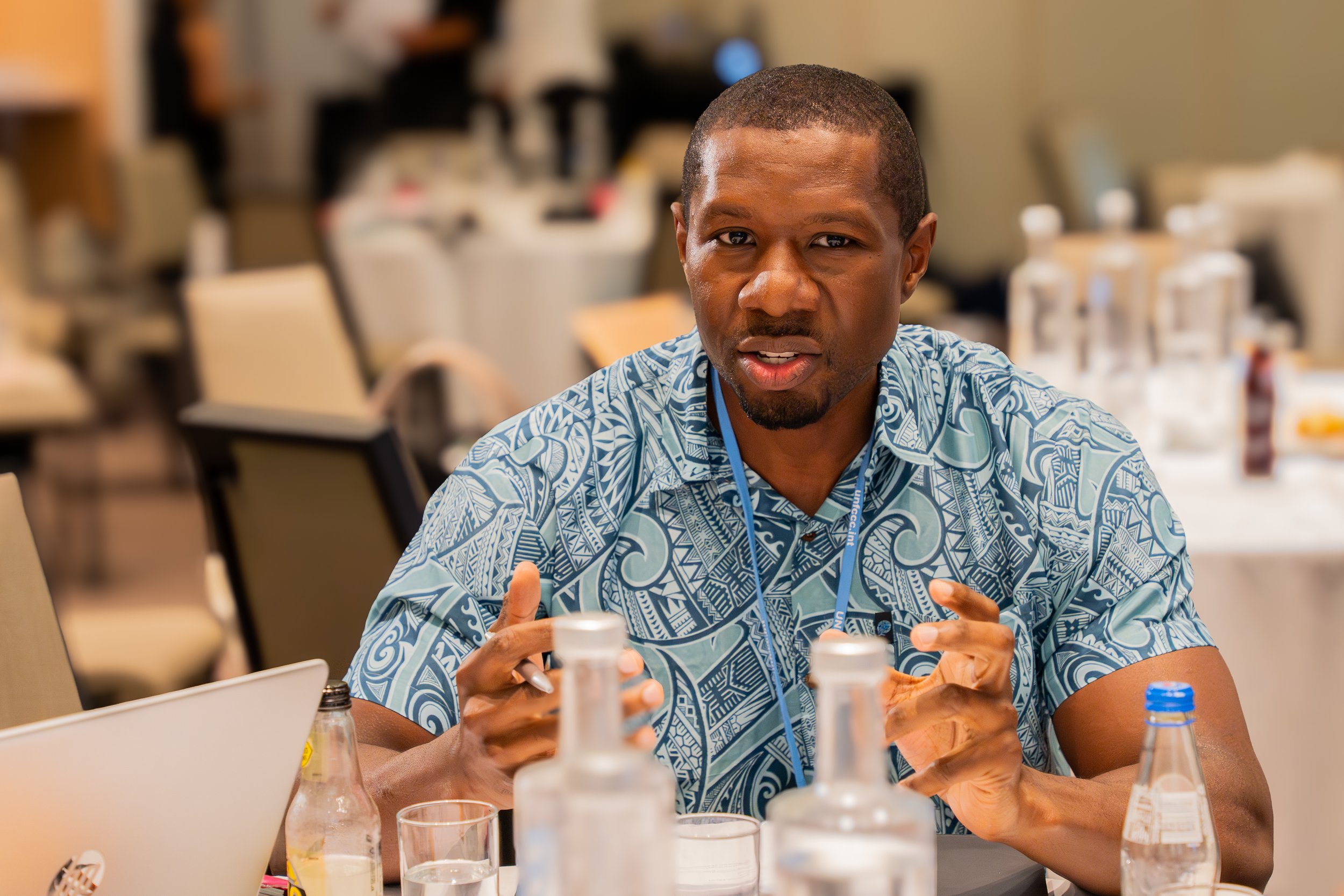

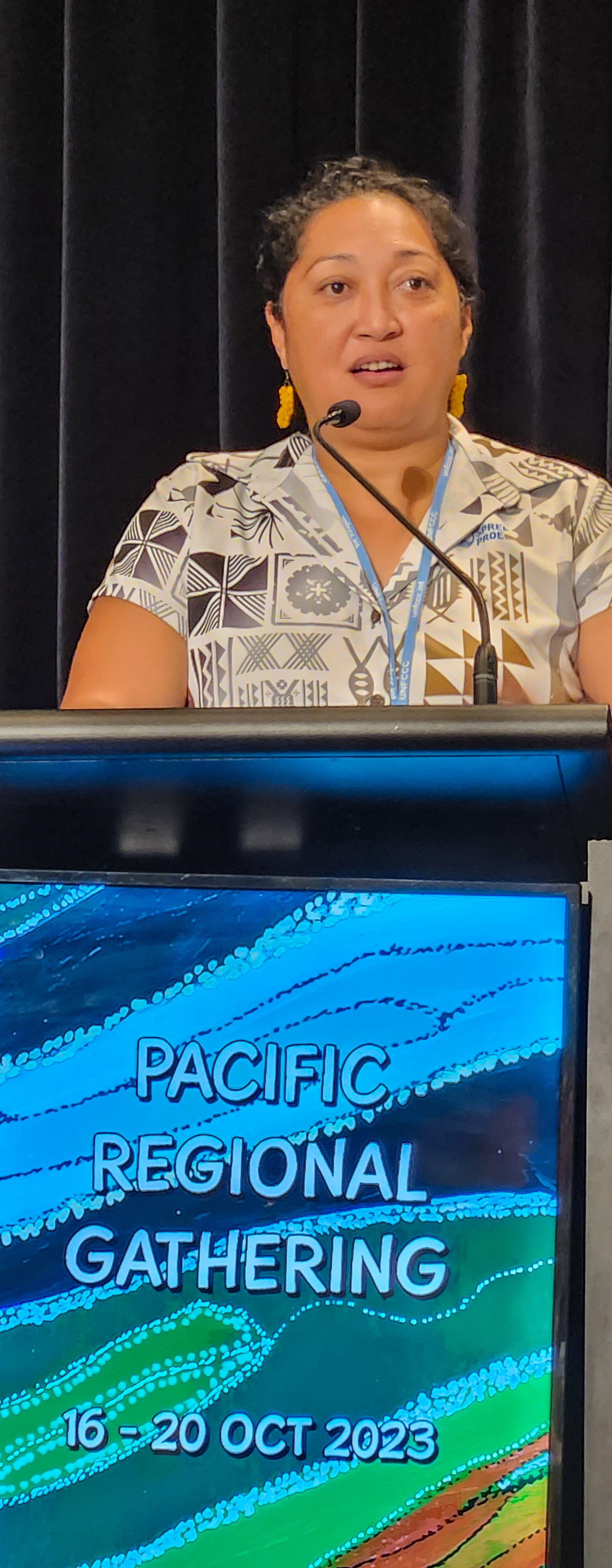


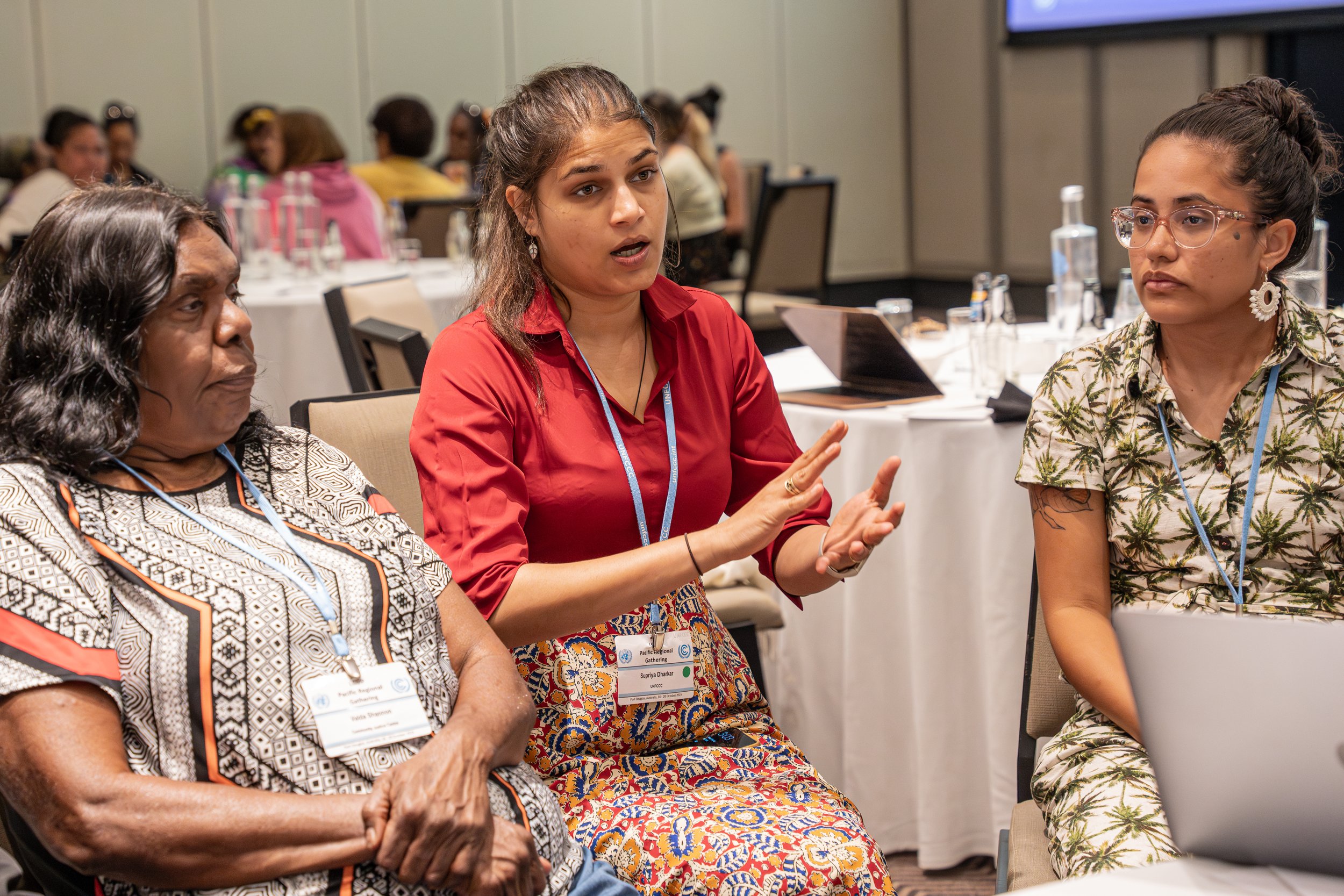



























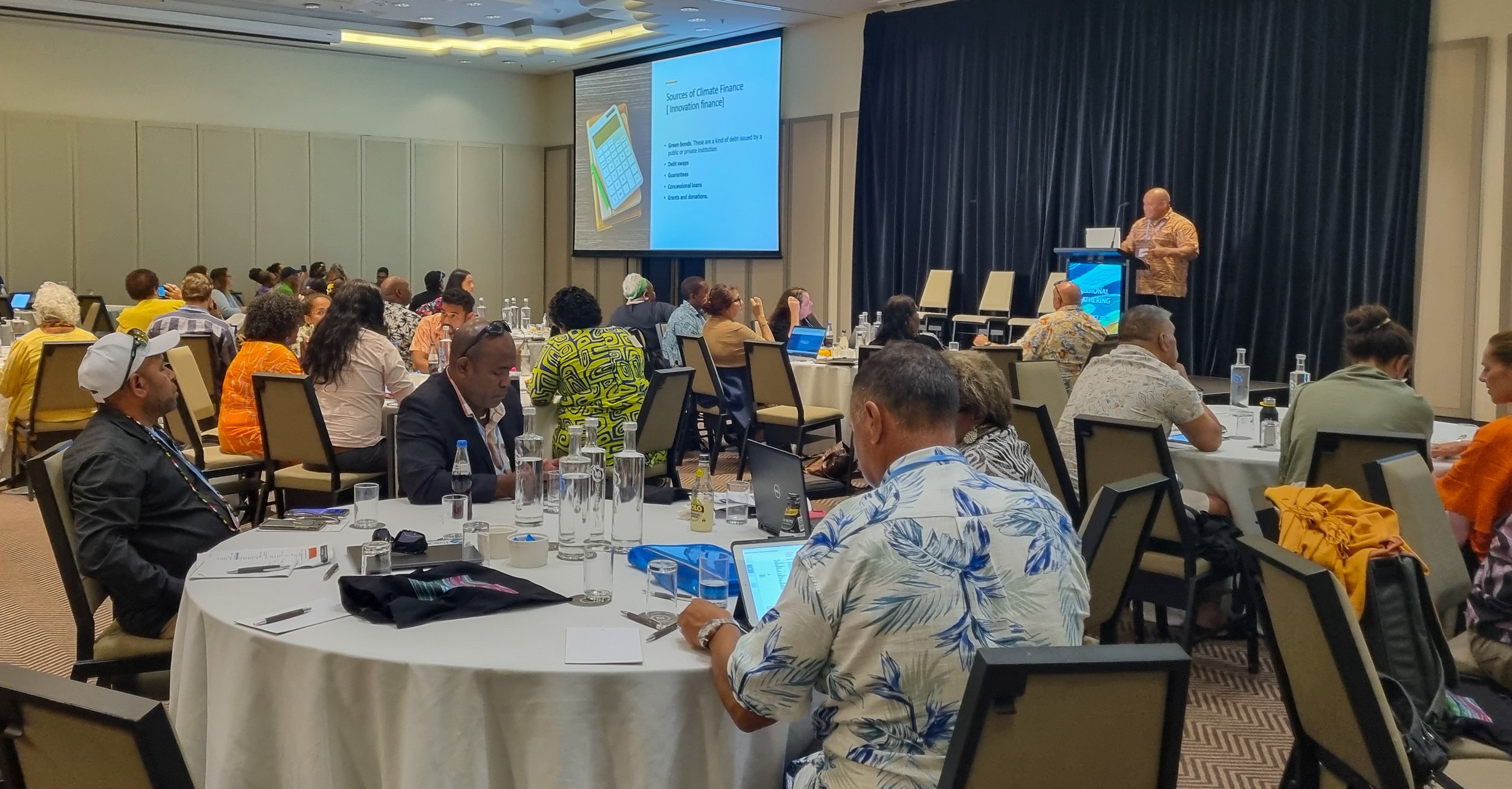




The Pacific Regional Gathering (PRG) was held in Port Douglas, Australia from 16 to 20 October 2023. The FWG Indigenous Pacific Member, Cathryn Eatock, developed a tripartite collaborative relationship with the Department of Climate Change, Energy, Environment and Water (DCCEEW), the LCIPP Secretariat and the Indigenous Peoples’ Organisation-Australia (IPOA) to facilitate the hosting of the Pacific Regional Gathering.
The week-long climate conference had participation from approximately 100 participants from Indigenous communities from the Pacific Region and Australia. The PRG commenced with cultural immersions through two site visits with the local KuKu Yalangi people, who shared the impacts of climate change of the rainforest and coastal regions.
Indigenous Knowledge Holders spoke on the impact.
Pacific Regional Gathering Film
Watch the Pacific Regional Gathering Film below developed in partnership with the Department of Climate Change, Energy, the Environment and Water (DCCEW).

Heal Country, Heal Climate
The IPOA developed the Heal Country Heal Climate Report to inform the 26th United Nations Climate Change Conference of the Parties (COP26) and environmental policies impacting Aboriginal and Torres Strait Islander Peoples. A Heal Country, Heal Climate short film was also developed, in addition to a Webinar Series.




